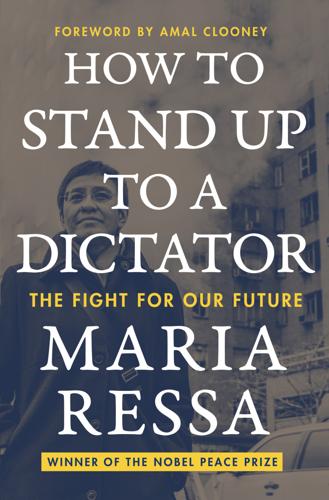
How to Stand Up to a Dictator
by
Maria Ressa
Published 19 Oct 2022
I believe that soldier became a citizen journalist because he wanted to prevent any possible whitewash of those crimes. The Maguindanao massacre was a milestone for our citizen journalism program and proved the tremendous potential of embedding citizen journalists in communities and institutions. And it made me realize that the core of a citizen journalism program in a country such as the Philippines is rooted in an individual battle for integrity: How far will you go to correct what you perceive to be wrong? Or evil? By election day, May 10, 2010, we had nearly ninety thousand registered citizen journalists. Our Facebook page was 400 percent more engaged than a regular news site.15 That was how we hit the targets of our first goal for social change for elections: we seeded empowerment and hope and got out of the way when our citizen journalists answered our call for action.
…
We used a tipping point approach, banking on the cumulative effect of each action we took and using repetition to help our citizens understand that if they saw something bad or good happen, they could take out their phones and record it. Three months before the elections, we held a concert with fifteen bands that was attended by about twenty thousand of our citizen journalists.12 We then hit a tipping point in our citizen journalism program with the Maguindanao massacre. On November 23, 2009, fifty-eight people, including thirty-two journalists, were killed in broad daylight in Maguindanao Province. The murders had been a premeditated act orchestrated by a rival politician and were the Philippines’ worst election-related violence in its history.
…
Our Facebook page was 400 percent more engaged than a regular news site.15 That was how we hit the targets of our first goal for social change for elections: we seeded empowerment and hope and got out of the way when our citizen journalists answered our call for action. There were many times leading up to and after the Maguindanao massacre when citizen journalists blew the whistle on bribery, corruption, election violence, intimidation, and much more. Their actions helped shape the days after, making it more difficult for candidates and their supporters to openly violate the rules of the election code.
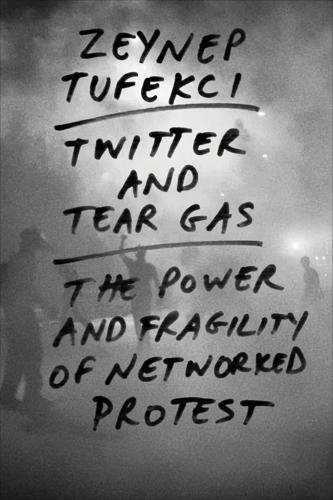
Twitter and Tear Gas: The Power and Fragility of Networked Protest
by
Zeynep Tufekci
Published 14 May 2017
People, trapped in their homes, were not reliable witnesses either. I talked to other journalists, including the team at 140journos, a citizen journalism verification and dissemination platform profiled in chapter 2, whose members had developed some of the most advanced methods I had seen for verification of citizen media in Turkey. They were also stumped.31 There was rarely enough information to do the kind of thorough checking they can do when citizen journalists are reporting from the ground. The round-the-clock curfew had made most of their ordinary methods useless. Unable to verify, they, too, resorted to the “here are some claims, and here are some counterclaims” style of reporting, which did not offer clarity.
…
The experience of the news blackout of the bombing of the Kurdish village of Roboski had exposed many people to the fact that the mass media could block out major news stories. But the public sphere had been transformed. It was now a digitally networked public sphere. People had learned to pull out their phones, not just to see what was up, but also to document and share. The team members at 140journos told me that they had struggled in their first year to find citizen journalists reporting from events, and they would sometimes have to call and try to persuade people to take a picture and tweet it. People used to ask them, why bother? Who is going to see this, and why will it matter? But in the year leading up to Gezi, social media became the place where real news circulated, and many people learned the importance of documentation by ordinary citizens.
…
This is often closest to the everyday meaning of the word “cause,” and closest to philosopher David Hume’s sense of the word as it is used in modern times. Efficient cause is all about the doing and who is performing the actions. We can talk about movement participants’ actions as the “efficient cause”: people who took to the streets, posted about democracy on Facebook, tweeted as citizen journalists breaking censorship, occupied a park in protest, or braved repression are the efficient cause of a movement. Efficient cause focuses on agency. If a car hits a tree and knocks it down, the efficient cause is just that: the car hitting the tree. Because it is closest to everyday usage, this layer of causality needs the least explanation.
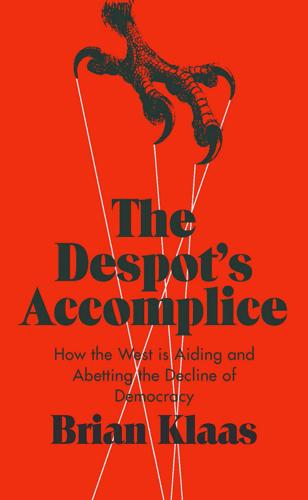
The Despot's Accomplice: How the West Is Aiding and Abetting the Decline of Democracy
by
Brian Klaas
Published 15 Mar 2017
With the new app, it was argued, Iranian “citizen journalists” could directly upload their photos and videos to a server so that abuses could be easily documented and beamed around the world. It was a well-intentioned idea. â•… There were several problems. First, due to sanctions championed by the United States itself, it was illegal for Apple to sell its iPhones in Iran. Second, the App Store—necessary to buy and download apps— therefore didn’t exist in Iran. Third, at the time, the only mobile carrier of iPhones worldwide was AT&T—which didn’t operate in Iran. Even if an Iranian “citizen journalist” had managed to smuggle an iPhone into the country and unlock it for use on alternative data networks, there were none in Iran at the time that would have supported iPhone data transmission.
…
Even if an Iranian “citizen journalist” had managed to smuggle an iPhone into the country and unlock it for use on alternative data networks, there were none in Iran at the time that would have supported iPhone data transmission. So, the app could still be useful, but only if the user had an active Wi-Fi connection. But at that point, the savvy citizen journalist who had smuggled an iPhone into Iran, unlocked the phone, and found an alternative source from which to download it, could just use a laptop or a desktop computer to upload the images.1 135 THE DESPOT’S ACCOMPLICE â•… It was therefore difficult to imagine how the app provided anything of value even to the most determined citizen journalist in Iran’s failed Green Revolution protest movement. Voice of America never publicly disclosed how much it paid the app’s developer, Intridea, to develop the product, but it was almost certainly a sizeable sum.
…
€ € € 256 INDEX Air Force One, 58 Ajax, 22, 38, 230 Alert, Nunavut, 231 Alfonso IX, King of Léon, 30–1 Algeria, 155 Aliyev, Ilham, 82–5 Allende, Salvador, 45–7 amplification effect, 57 Anaconda Copper, 48 Anglo-Iranian Oil Company, 38 Angola, 112–13 Antananarivo, Madagascar, 7, 85, 86 Apple, 20, 83, 135–6, 145, 151 Arab Spring (2011), 2, 10, 12–16, 18, 65, 94, 124–6, 130, 132–3, 163, 168, 218 Argentina, 34–5, 149, 156 Aristide, Jean-Bertrand, 114–15, 117 Aristogeiton, 28 Aristophanes, 29 Aristotle, 29 Armenia, 59–60, 209 Armitage, Richard, 53 Asghabat, Turkmenistan, 25 Ashkelon, Israel, 102 Asian financial crisis (1997), 196 Abbas, Mahmoud, 100 Abbottabad, Pakistan, 53 Abdullah bin Abdulaziz, King of Saudi Arabia, 172 Abdullah II, King of Jordan, 18, 214 Abidjan, Côte d’Ivoire, 19, 105, 106–7 Abraham, 124 Achilles, 22, 230 Afghanistan, 2, 5, 20, 49, 54, 67, 69, 70, 78, 98, 136–8, 213 1982 arrival of Bin Laden, 78 2001 US-led invasion, 70, 71, 84, 98 2009 presidential election, 70–1 2014 presidential election, 71; power-sharing agreement, 75–6; USAID announces women’s empowerment project, 136–8, 145 Afifi, Omar, 163–4, 247 African-Americans, 176, 207, 250 Ahmadinejad, Mahmoud, 168 Ahmed, Mohammed, 123–4, 126, 130, 224 AIDS (acquired immune deficiency syndrome), 116, 207 257 INDEX al-Assad, Bashar, 120 AT&T, 135 Athena, 22 Athens, 20, 27–30, 31, 156 Australia, 29–30, 112, 153, 156 Azerbaijan, 20, 82–5, 90, 209, 211, 238 Ba’ath party, 63, 72, 77, 124, 128 Badawi, Raif, 16 Baghdad, Iraq, 72 Bahrain, 59, 155, 209, 225 Bangkok, Thailand, 198, 200, 202, 203, 223 Bangladesh, 106 Bardo Museum attack (2015), 131 Barraket Essahel affair (1991), 123, 126, 224 Basra, Iraq, 72, 73 beheadings, 11, 12, 16, 19 Beijing Consensus, 206–7 Belarus, 3, 19, 60–7, 154, 192–5, 205–6, 212, 218, 222 1991 dissolution of Soviet Union; independence, 192–3 1994 presidential election; Lukashenko comes to power, 193–4 1996 Commonwealth with Russia established, 194 2002 proposal for re-integration with Russia, 194 2004 US passes Belarus Democracy Act, 63, 194; referendum on Lukashenko’s third term; Western sanctions, 63 2006 presidential election, 61; EU asset ban on Lukashenko, 63 2010 presidential election, 61–2, 65; Statkevich impris- 258 oned for organizing protest, 61–2, 222 2015 economic crisis, 64; release of political prisoners, 65, 222; presidential election, 64–5; pressured by Russia to host military base, 65, 195 2016 EU suspends sanctions, 65, 67, 195 Belarus Democracy Act (2004), 63, 194 Belgian Congo (1908–60), 42 Belgium, 43–4, 90, 220 Ben Ali, Zine El Abidine, 13, 123–33, 155 benign dictatorship, 215, 220 Benin, 23, 27, 156 Berlin Wall, 35, 201 Bermudo II “the Gouty”, King of Léon, 30, 231 Bever, James, 101 Bhumibol Adulyadej, King of Thailand, 165 Biamby, Philippe, 117 Bible, 179 Big Brother, 180 Bin Laden, Osama, 18, 50, 52–3, 78 Binti Salan Mustapa, Sumiati, 12 Biya, Paul, 121 Black Hawk Down incident (1993), 116 Black Sea Economic Cooperation (BSEC), 211 blackballing, 29 Blagoy, Ivan, 208 Blair, Anthony “Tony”, 6, 92 Blueberry Hill (Fats Domino), 207 Boehner, John, 181 Bohemian Rhapsody (Queen), 121 Boko Haram, 177 Bolivia, 143, 154 INDEX Bolšteins, Ludvigs, 147 Bono (Paul Hewson), 92 Boston University, 111 Botswana, 149 Bourguiba, Habib, 126 BP (British Petroleum), 38 Bradley effect, 176, 250 Brazil, 56, 149, 152, 156 Bremer, Lewis Paul, 72 Brexit, 1 bribery, 170–1 British Broadcasting Corporation (BBC), 94 Brunei, 155, 229 bubonic plague, 6 BudgIT, 171 Buenos Aires, Argentina, 34 Bulgaria, 149 Burkina Faso, 177–8 Burundi, 95 Bush, George Herbert Walker, 115, 121, 190 Bush, George Walker, 54–7, 63, 69, 99, 100, 101, 190, 194, 201 Bush, Sarah, 59 Cairo, Egypt, 9–10, 13, 163–4, 218 California, United States, 26, 188, 209 Cambodia, 59 Cameroon, 121 Canada, 94, 112, 143, 153, 155, 156, 230–1 Caravana de la Muerte, 47 Carnegie Endowment for International Peace, 52, 73 Carothers, Thomas, 52, 73, 141, 144, 189 Carter Center, 89, 238 Carter, James Earl “Jimmy”, 116, 120, 238 Caspian Sea, 84 Castro, Fidel, 49 Castro, Raul, 49 caudillos, 33 Cédras, Raoul, 115–20 censorship, 161–3, 165 Central Intelligence Agency (CIA), 20, 39–49, 59, 98, 201, 207, 208 Chan-ocha, Prayuth, 164, 203 Charles I, King of England, Scotland and Ireland, 31 Chemonics, 58, 138 Chicago, Illinois, 182 Chile, 27, 36, 38, 45–8, 153, 220, 225 Chiluba, Frederick, 190 China, 4, 23–7, 105–6, 109, 168– 70, 176, 190, 191–2, 196–212, 215–16, 218, 221, 223, 229 1958 launch of Great Leap Forward, 24 1990 Deng Xiaoping’s “24-Character Strategy”, 206 1992 propaganda-industry tax introduced, 209 2003 SARS outbreak, 25–6 2013 endorsement of Azerbaijani election, 211; monitoring of Malagasy election, 211 2014 Umbrella Movement protests in Hong Kong, 168–9, 176, 221; rail deal with Thailand, 203 2016 Lunar New Year celebrations, 208; Mong Kok riots, 169 China Central Television (CCTV), 207–9 Chow, Holden, 169 Christianity, 105, 179 Churchill, Winston, 22, 190, 215 259 INDEX Ciftci, Bilgin, 20, 161–3, 165, 176 citizen journalism, 135 citizen participation, 27 Citizens United v. Federal Election Commission, 185, 188 City on a Hill, 10, 35, 179, 188, 189 Cleisthenes, 28 climate change, 209 Clinton, Hillary, 5–6, 112, 178, 190 Clinton, William “Bill”, 52, 92, 102, 112, 115–16, 184, 190 Cobra Gold, 201 Cold War, 1, 20, 35–6, 37–50, 55, 66, 75, 81, 93, 149, 150, 200–1, 204, 221 Colombia, 27, 33, 171, 189 Commonwealth of Independent States Observation Mission (CISEMO), 211 Communist Party of China, 208 of Moldova, 195 of Thailand, 199 Community College of Denver, 209 Confucius Institutes, 209 Congo, 20, 36, 38, 42–4, 47, 48, 95, 121 Congress, US, 32, 33, 35, 184, 194 Connecticut Compromise, 32–3 constitutions, 31–2, 150–1, 190, 197 Contadora Island, Panama, 117 COPPPAL (Conferencia Permanente de Partidos Políticos de América Latina y el Caribe), 211 Corner House, Riga, 147–8, 160, 225 corruption, 73, 82, 99, 107, 139, 260 170–1, 197, 200, 201, 209, 210, 219 Côte d’Ivoire, 3, 19, 104–10, 111, 119 2000 presidential election, 104 2002 outbreak of civil war, 104 2010 presidential election, 104–5; outbreak of violence, 105–6, 119; Gbabgbo offered asylum in the US, 111 2011 UN/French intervention, 106, 108–10; Gbabgbo extradited to ICC, 106, 109, 119 2015 presidential election, 110 Council of Europe, 84 Council of Five Hundred, 29 counterfeit democracies, 3, 6–9, 20, 23, 33–4, 52, 70, 73, 79, 82–90, 158–9, 173, 175, 204, 210, 216–17, 220, 223 Crimea, 64, 65 crisis of democracy, 180 Critias, 29 Croatia, 75 Cuba, 45, 49–50, 176 curse of low expectations, see Madagascar Effect Daily Show, The, 53 Dark Ages, 30, 219 Dayton, Mark, 186–7 DDoS (Distributed Denial-ofService), 168 death squads, 47, 114, 117 Delian League, 29 democracy deficit, 180 democracy promotion industry, 58–60, 138 democracy wars, 67, 69–79, 220 Democratic Party, 35, 58, 84, 92, 124, 142, 182–8 INDEX Democratic Republic of the Congo, see Congo demos, 27, 28 Deng Xiaoping, 206 Denmark, 77, 220 Denver, Colorado, 209 Department for International Development (DFID), 59 Department of Defense, 115 Detention Site Green, Udon Thani, 201 Development Alternatives Inc., 138 Development Assistance Committee (DAC), 58 Devlin, Larry, 43 Diamond, Larry, 171 Dictator’s Learning Curve, The (Dobson), 210 digital communications, 49, 125, 161–75, 207, 208, 221, 223 Dirección de Inteligencia Nacional (DINA), 48 direct democracy, 28–9 disabled rights, 141, 144 disinformation, 207–8 Dobson, Will, 210 “Don’t Forget Me” (GooGoosha), 140 Dubai, 82 Duékoué, Côte d’Ivoire, 105 Dulles, Alan, 41 Durack, Western Australia, 29–30 Duvalier, Jean-Claude “Baby Doc”, 114 Ebola, 184 echo chamber effect, 165 Egypt, 6, 9–10, 13–16, 27, 88, 155, 163–4, 225 1987 US aid payments begin, 14 2001 EU Association Agreement, 155 2008 Afifi exiled to US, 163 2009 Clinton describes Mubaraks as ‘friends of my family’, 6; Obama’s Cairo speech, 9–10, 218 2011 Tahrir Square protests begin, 10, 13, 163–4; Mubarak ousted, 13, 164 2012 Morsi elected president, 14; anti-Morsi demonstrations begin, 164, 247 2013 coup d’état; el-Sisi comes to power, 14–16, 88, 164; Saudi Arabia announces aid package, 15 Eid al-Kabir, 124 Eisenhower, Dwight David, 38, 43 elections campaign finance, 185–8, 238 foreign aid/intervention, 97–110, 143 “free and fair”, 8, 14, 88–90, 102, 159, 193 gerrymandering, 180–5, 188, 251 grade inflation, 88–9, 158, 159 inclusivity, 24, 129–31, 221 observation/monitoring, 8, 65, 81, 83–4, 88–90, 102, 158–9, 173–4, 178, 211, 223 polling, 174–6 respect for, 5, 37–48 rigging of, 22–3, 34, 61, 63–4, 70–1, 83–5, 87, 112, 158–9, 166, 210–11 short-term thinking, 26, 54, 56 turnout, 180, 184 Electoral Integrity Project, 189, 238 Elizabethville, Congo, 43 “emerging democracy”, 88 Emory University, 136 261 INDEX “End of History”, 163, 214 English Civil War (1642–51), 31 Ennahda party, 126–8 Equatorial Guinea, 6, 11, 121, 173, 220 Erdoggan, Recep Tayyip, 20, 161–3, 176 Eritrea, 11, 24 Estonia, 17, 149, 151 Ethiopia, 27 Eton College, Berkshire, 202 European Commission, 150 European Parliament, 84, 180 European Partnership for Democracy (EPD), 58 European Union (EU), 2, 3, 56, 61–3, 65–7, 84, 90, 100, 143, 145, 148–56, 160, 180, 195, 214, 223, 225, 247 1999 European Parliament elections, 180 2004 Eastern Bloc countries accede to Union, 148–9 2005 intervention in Palestinian election campaign, 100 2006 asset ban on Lukashenko government, 63 2008 aid given for Ghanaian election, 143 2009 Eurozone crisis begins, 180, 190 2013 endorsement of Azerbaijani election, 84; endorsement of Malagasy election, 90 2014 Riga designated European Capital of Culture, 148, 225 2015 Riga summit; Juncker slaps Orbán, 150 2016 Belarus sanctions suspended, 65, 67, 195; Zimbabwe sanctions suspended, 247; UK € 262 holds membership referendum, 1 Eurozone crisis, 180, 190 Facebook, 125, 161–3, 165, 168, 172, 223 Falls Church, Virginia, 163 famine, 24 Fatah, 99–102 Fats Domino, 207 Ferjani, Said, 125–33, 142, 156, 221, 224 Fidesz Party, 150–2 financial crisis (2008–9), 185, 206 FixMyStreet, 171 Florida, United States, 117 Forces Nouvelles, 106 Ford, Gerald, 45 Foreign Affairs, 53 foreign aid, 14–15, 47, 49, 52, 57, 89, 90, 92, 93, 95, 100–1 Fourteen Points (1918), 35 France, 2, 33, 44, 55–6, 58, 72, 89, 106, 108–10, 115, 129, 214, 225 “free and fair”, 8, 14, 88–90, 102, 159, 193 free speech, 94, 103, 161–3, 165, 188 free trade zones, 152–60 Freedom House, 139, 140, 189 Friedrich Ebert Foundation, 189 Front Populaire Ivorien, 105 FSB (Federal’naya sluzhba bezopasnosti), 61 Fukuyama, Francis, 74, 163, 214 fungibilty, 95 Gaddafi, Muammar, 24, 76–9, 102, 113, 129 Gambia, The, 121 Gandhi, Jennifer, 136 INDEX Gaza, Palestine, 100–1, 240–1 Gbabgbo, Laurent, 105–10, 111, 119 General Motors, 48 Geneva Convention, 177 Geneva, Switzerland, 140 George III, King of the United Kingdom, 31 Georgia, 143 Geraldton, Western Australia, 30 Germany, 17, 23, 35, 44, 56, 58, 74–5, 103–4, 147–8, 165, 189, 201, 204, 208, 213, 223 Gerry, Elbridge, 181–2 gerrymandering, 180–5, 188, 251 Ghana, 17, 143, 144, 171 Ghani, Rula, 137 globalization, 153 Globe & Mail, 94 golden handcuffs, 111, 119–21, 154 golden parachutes, 19, 116–21 Gollum, 20, 161–3, 165, 176 Google, 164 GooGoosha (Gulnara Karimova), 140, 145 Government Organized NonGovernmental Organizations (GONGOs), 209–10, 212 grade inflation, 88, 99, 158, 159 Great Leap Forward (1958–61), 24 Greece, 20, 21, 22, 27–30, 31, 156, 230 Green Revolution (2009), 135–6, 166–8 gridlock, 184–5, 187 Guardian, 166 gun regulation, 186–7 gunboat diplomacy, 116, 118, 120 Gutiérrez, Luis, 182 Guyana, 171, 220 Guys and Dolls, 40 Hague, William, 77 Haiti, 114–21 Hamas, 99–104, 241 Harmodius, 28 Harvard University, 45 health care, 184–5 Henry IV “the Impotent”, King of Castile and Léon, 30, 231 Herodotus, 29 Higiro, Robert, 94 Hipparchus, 28 Hitler, Adolf, 23, 103–4, 165 HIV (human immunodeficiency virus), 116, 207 Hobart, Tasmania, 153 homosexuality, 12, 20 Hong Kong, 168–70, 176, 221 House of Representatives, 33, 181 human rights, 10, 11, 52, 54, 57, 64, 113, 118, 139, 209, 213 Humphrey, Hubert, 21 Hungary, 150–2, 160, 171 Hussein, Saddam, 63, 72, 73, 79, 124, 156–7 I Paid a Bribe, 170–1 Ibragimbekov, Rustam, 82 Iceland, 88 Iglesias, Julio, 140 “illiberal democracy”, 227 Illinois, United States, 182–3 Iloniaina, Alain, 222–3 imihigo program, 93 Immunization of the Revolution, 127 inclusion, 24, 129–31 India, 56, 98, 152, 156, 170–1, 172, 220 Indonesia, 27, 156, 218 Indyk, Martin, 102 insidious model effect, 46, 48 Inter-Commission Working Group 263 INDEX on International Cooperation, 211 Inter-Services Intelligence (ISI), 52, 53 International Criminal Court (ICC), 106, 109, 118, 119 International Monetary Fund (IMF), 105 International Republican Institute (IRI), 58, 142 Internet, 49, 125, 161–75, 207, 208, 221, 223 iPad, 151 iPhones, 20, 83, 135–6, 145 Iran, 26, 30, 36, 38, 47, 48, 69, 98, 117, 135–6, 145, 208, 232 1951 nationalization of AngloIranian Oil Company, 38 1953 Operation Ajax; Mossadegh ousted, 38–42, 98, 208 1979 Islamic Revolution, 42, 117, 216 2009 intervention in Lebanese election, 98; presidential election; Green Revolution protests, 135–6, 166–8 2010 VOA announces “citizen journalism” iPhone app, 135–6, 145 2015 nuclear deal, 26 Iraq, 2, 5, 20, 49, 63, 67, 72–5, 77, 78, 79, 98, 124, 128, 129, 133, 156–7, 198, 213 1979 Saddam comes to power, 72, 129 1990 invasion of Kuwait, 156 2003 US-led invasion, 63, 72–3, 77, 84, 98, 156, 201, 234; de-Ba’athification campaign, 72, 77, 124, 128 2006 formation of al-Maliki government, 73 264 2015 IS execute election officials, 74 Ireland, 90, 217 Islam, 11, 12, 16, 99, 105, 123–6, 129, 131, 177, 218 Islamic State (IS), 74, 78, 131 Islamism, 99, 123–6, 129, 131, 177 Israel, 14, 99–104 Italy, 98, 192 Jackson, Peter, 162 Jammeh,Yahya, 121 Japan, 17, 24, 35, 56, 58, 74–5, 89, 112, 154, 156, 164, 204, 206, 217, 218, 220 al-Jazeera, 76 Jeddah, Saudi Arabia, 172 Joan of Portugal, Queen consort of Castile, 231 Jobs, Steve, 151 Johnson, Boris, 202 Jordan, 18, 60, 155 Juncker, Jean-Claude, 150 Kabila, Joseph, 121 Kabul, Afghanistan, 70 Kagame, Paul, 6, 91–6 Kagan, Robert, 217–18 Kakul Military Academy, 53 Kallel, Abdallah, 124 Kant, Immanuel, 118 Karbala, Iraq, 201 Karegeya, Patrick, 94 Karimov, Islam, 139–40, 142, 154 Karimova, Gulnara, 139–40, 145 Karnataka, India, 170 Karoui, Nébil, 131 Karzai, Hamid, 70 Katanga, Congo, 43–4 Keane, John, 30 INDEX Kennedy, John Fitzgerald, 11, 35–6, 55, 190, 192 Kenya, 220 KGB (Komitet Gosudarstvennoy Bezopasnosti), 3, 61–2, 147–8, 194, 225 Khan, Rana Sanaullah, 52 Khomeini, Ruhollah, 167 Kim Jong-un, 136, 181 Kingdom of Ebla, 28 Kipling, Rudyard, 69 Kissinger, Henry, 44–7, 214 knee-jerk reactions, 26, 55 Koch Brothers, 185–6 Konrad Adenauer Foundation, 58, 189 Kounalakis, Eleni, 151 kratos, 27 Kununurra, Western Australia, 30 Kuwait, 156, 229 Kyrgyzstan, 185 2011 NATO-led intervention, 76–7; death of Gaddafi, 76–7, 113 2013 Political Isolation Law, 77, 128 LINE, 164–5 Literary Digest, 174 lobbying, 186–7 local-level democracy, 3, 18, 169–73 locusts, 6–7 London, England, 132–3 long-term thinking, 4, 46, 48, 51–67, 138, 141, 234 Lord of the Rings (Tolkien), 20, 161–3, 165, 176 “Luck Be a Lady Tonight”, 40 Lukashenko, Alexander, 61–7, 154, 193–5, 206, 222 Lumumba, Patrice, 42–4 Lumumbashi, Congo, 43 Lake, Anthony, 117 Landon, Alf, 174 Langouste (Ramakavélo), 87 Laos, 200 Latin Earmuffs, 182 Latvia, 147–50, 151–2, 154, 160, 225 League of Democracies, 152–60, 212 Lebanon, 98 Léon, 30–1, 231 Léopoldville, Congo, 43 Levy, Phil, 157 Libya, 2, 5, 20, 24, 49, 67, 69, 76–9, 102, 113, 128, 129, 133, 156, 213 1969 coup d’état; Gaddafi comes to power, 78, 113, 129 2008 Rice makes visit, 76 MacCann, William, 34 Madagascar, 3, 6–9, 17, 20, 59, 85–91, 96, 200, 220, 222–3, 234–5 1991 Panorama Convention, 87 1992 presidential election, 87 1993 population census, 89 2006 presidential election, 85–6 2009 coup d’état; Rajoelina comes to power, 6, 90 2012 Rajoelina announces capture of bandits’ sorcerer, 7 2013 general election, 8, 89–90, 211, 222–3 Madagascar Effect, 6–8, 17, 81, 96, 159, 204, 234–5 Madison, James, 31–2 Malaysia, 153, 218 al-Maliki, Nouri, 73–4 Mao Zedong, 23, 24 265 INDEX marketplace of ideas, 24, 219 Mauritius, 220 May, Theresa, 26 McCain, John, 77 McMahon, Michael, 83 McSpedon, Joe, 49 Megara, 156 Mejora Tu Escuela, 171 El Mercurio, 47 Merkel, Angela, 208 Mesopotamia, 28 Mexico, 27, 149, 155, 156, 171, 172, 178 MI6, 43 Miami, Florida, 117 Miloševicc, Slobodan, 98, 120 Minnesota, United States, 21, 186–7 Minsk, Belarus, 19, 61–2, 66, 192, 193 Mo Ibrahim Foundation, 119 Mobutu, Joseph-Desiré, 43–4 Mogadishu, Somalia, 116 Moghaddam, Ismail Ahmadi, 167 Mohammad Reza Pahlavi, Shah of Iran, 39–42, 117 Moldova, 195–6 Mondale, Walter, 21 Mong Kok riots (2016), 169 Mongolia, 17, 30, 189 Morjane, Kamel, 130 Morocco, 155, 171 Morsi, Mohammed, 14, 15, 164, 247 Moscow, Russia, 210 Mossadegh, Mohammed, 38–42, 43, 232 Mosul, Iraq, 72, 73 al-Moubadara, 130 Mubarak, Hosni, 6, 13, 164 Mugabe, Robert, 112–13, 157–8 Mugenzi, Rene Claudel, 94–5, 189 € 266 Muhirwa, Alice, 93 Muñiz de Urquiza, María, 90 Munyuza, Dan, 94 Musharraf, Pervez, 51–7 Myanmar, 218, 225 Nasiri, Nematollah, 40 Nation, The, 198 National Council for Peace and Order (NCPO), 197 National Democratic Institute (NDI), 58, 92, 142 National Endowment for Democracy (NED), 58, 60, 144, 247 National Rifle Association (NRA), 186–7 Native Americans, 32, 33 Nawabshah, Pakistan, 51 Nazi Germany (1933–45), 23, 44, 74–5, 103–4, 147–8, 165 Nepal, 98 Netherlands, 58, 89, 143 Netherlands Institute for Multiparty Democracy, 58 New Stanford Hospital, Palo Alto, 26 NewYork Times, 71, 93, 185–6 New Zealand, 112, 156, 209 Nicaragua, 24, 98 Nidaa Tounes, 131 Niger, 185 Nigeria, 171, 172 Nixon, Richard, 44–7 Niyazov, Saparmurat, 25 Nobel Prize, 18, 24, 131, 156, 163 non-alignment, 43 non-governmental organizations (NGOs), 58–60, 141–2, 144, 158, 209–10, 212, 238 North Atlantic Treaty Organization (NATO), 45, 55, 77 INDEX North Carolina, United States, 183 North Korea, 4, 11, 136, 138, 144, 173, 176, 181 Norway, 24, 77, 205, 219 nuclear power/weapons, 26, 192 Nunavut, Canada, 153, 230–1 Nunn, Sam, 116 Nuristan, Afghanistan, 70 Nyaklyayew, Uladzimir, 61–2, 65 Nyamwasa, Faustin Kayumba, 94 Obama, Barack, 6, 9–10, 14, 49, 54, 55, 57–8, 76, 96, 111, 183, 204, 205, 218 Obiang, Teodoro, 6, 121 Odysseus, 22, 153 oil, 4, 11, 16, 24, 84, 192, 229 olive oil, 125 Operation Ajax (1953), 38–42, 98, 208 Operation Desert Storm (1991), 156 Operation Enduring Freedom (2001–14), 70 Operation Uphold Democracy (1994–5), 116 Orbán, Viktor, 150–2 Organization for Security and Co-operation in Europe (OSCE), 64 Ortega, Daniel, 98 Orwell, George, 15, 101, 199 Oswald, Lee Harvey, 192 Ouattara, Alassane, 105–10, 119 Oxford University, 198, 202 OxfordGirl, 166 Pakistan, 18, 50–7, 70, 220, 233 Palestine, 99–104, 108, 240–1 Palestine Liberation Organization (PLO), 99 Panama, 117 Panorama Convention (1991), 87 Papua New Guinea, 188 parliaments, 31 partisan engagement, 99–104 Peloponnesian War (431–404 BC), 156 People’s Alliance for Democracy (PAD), 197, 202 Pericles, 29 Persia, 28 Peru, 153 Philadelphia, Pennsylvania, 33 Philippines, 218 Pinochet, Augusto, 47–8, 225 Piromya, Kasit, 204–5 Plateau Dokui, Abidjan, 107 Plato, 29 Poland, 201 Political Isolation Law (2013), 77, 128 polling, 174–6 Pomerantsev, Peter, 210 Pongsudhirak, Thitinan, 165 Port-au-Prince, Haiti, 117 Portugal, 218, 231 Pouraghayi, Saeedah, 167 Powell, Colin, 116, 120 Préval, René, 117 Price, Melissa, 30 Princeton University, 186 prisoner’s dilemma, 200 process engagement, 99–100 propaganda-industry tax, 209 protectionism, 177 proto-democracy, 28 Public Diplomacy of the Public Chamber of Russia Elections, 211 Pul-i-Charki, Kabul, 71 Putin, Vladimir, 63, 64–5, 194–5, 204, 207, 214 267 INDEX al-Qaeda, 18, 50, 52–3, 55, 78, 177, 234 Qatar, 155, 229 Qatif, Saudi Arabia, 11, 16 Queen, 121 racism, 176, 218, 250 Rajoelina, Andry, 6 Ramadan, 126 Ramakavélo, Desiré-Philippe, 86–7 Rao, Bhaskar, 170 Rassemblement des Républicains, 105 Ratchaburi, Thailand, 199 Ravalomanana, Marc, 6 Reagan, Ronald, 35–6, 55 realpolitik, 4, 45, 48, 98, 104 refugees, 208 representative democracy, 30–3 Republican Party, 39, 58, 79, 124, 142, 181, 182–8 Rever, Judi, 94 Riahi, Taghi, 39–40 Rice, Condoleeza, 76, 102 Riga, Latvia, 147–8, 150, 160, 225 rock lobster, 87 Rojanaphruk, Pravit, 198–9, 221, 223–4 Romania, 149, 209 Rome, Ancient (753 BC–476 AD), 21, 30 Romney, Mitt, 112 Roosevelt, Franklin Delano, 39, 174 Roosevelt, Kermit, 38–40, 208 Roosevelt, Theodore “Teddy”, 39 de Rosas, Juan Manuel, 34–5 Roskam, Peter 183 rule of law, 10, 27, 73, 77, 136, 159, 209, 218 Rumsfeld, Donald, 145 Russia Today (RT), 207–9 268 Russian Federation, 24, 27, 60–1, 63–5, 82, 106, 140, 149, 190, 191–6, 204, 205–12, 214, 221, 229 1996 Commonwealth with Belarus established, 194 2002 proposal for re-integration of Belarus, 194 2005 support for Moldovan opposition on Transnistria, 195–6; Russia Today established, 207 2010 Putin sings Fats Domino’s Blueberry Hill, 207 2013 endorsement of Azerbaijani election, 211 2014 annexation of Crimea; intervention in Ukraine, 64, 65; RT reports “genocide” in Ukraine, 207; RT reports CIA behind Ebola outbreak, 207 2015 NED banned, 60; pressure on Belarus to host military base, 65, 195 2016 RT report on rape of “Lisa” in Germany, 208; Putin praised by Trump, 214 Rwanda, 6, 20, 91–6, 120, 185, 189, 215, 216 Rwandan Patriotic Front (RPF), 91 San Diego State University, 209 sanctions, 52, 62–5, 67, 103, 106, 135–6, 145, 156–8, 160, 195, 247, 253 Sandinista National Liberation Front, 98 Sandy Hook massacre (2012), 186 dos Santos, José Eduardo, 112–13 Sarkozy, Nicolas, 108 INDEX SARS (severe acute respiratory syndrome), 25–6 Saudi Arabia, 5–6, 9–12, 15–16, 19–20, 85, 98, 138, 144, 200, 216, 229 1962 slavery abolished, 11 2009 intervention in Lebanese election, 98; children sentenced to prison and lashes for stealing exam papers, 11, 16; Jeddah floods, 172 2010 Indonesian maid mutilated by employer, 11, 12; arms deal with US, 10–12 2011 Qatif protests, 16 2013 aid package to Egypt announced, 15; purchase of US naval craft announced, 16; Badawi sentenced to prison and lashes, 16 Saudi Arabia Effect, 5, 9, 16, 85, 138, 200 Schneider, René, 45 School of the Americas, 115 Seattle, Washington, 77 Secret Intelligence Service (SIS), 43 Sen, Amartya, 24 Senate, US, 32–3, 187 Senegal, 42, 121 September 11 attacks (2001), 18, 52–3, 55, 70 Serbia, 98, 120 Shanghai Cooperation Organization, 211 Sharif, Nawaz, 51–2, 233 Shinawatra, Thaksin, 196, 199, 201, 202, 205 Shinawatra,Yingluck, 198 short-term thinking, 3–4, 26, 46, 48, 51–67, 120, 138, 141, 234 Shushkevich, Stanislav, 192–3 Siberia, 147, 148 Sidick, Koné Abou Bakary, 107–9 Sierra Leone, 88, 171, 209 Singapore, 23, 24, 27, 93, 155, 215, 216, 217, 229 Siripaiboon, Thanakorn, 165 el-Sisi, Abdel Fattah, 15 Skujenieks, Knuts, 148 Skype, 62 slavery, 11, 29, 32 social media, 49–50, 125, 161–70, 173, 176, 199, 207, 208, 223 Socrates, 29 Solon, 28 Somalia, 42, 116 Sophocles, 29 Sopko, John, 137 Sousse attacks (2015), 131 South Africa, 27, 94, 157, 189 South Korea, 17, 27, 112, 152, 156, 218 Soviet Union (1922–91), 1, 22–3, 35–6, 37–50, 61, 64, 82, 121, 147–8, 150, 160, 192–4, 201, 204, 206–7 Spain, 218 Sparta, 28, 29 St John’s College, Oxford, 202 Stalin, Joseph, 23 Stanford University, 171 State Department, 11, 15, 54, 202 state power, 27 Statkevich, Mikalai, 61–2, 65, 222 Stewart, Jon, 53 Sting (Gordon Sumner), 140 Stockholm Syndrome, 199 Sudan, 206 Sukondhapatipak, Werachon 198 Sundaravej, Samak, 197 Super PACs, 185 Supreme Court, US, 185, 188 Sweden, 92, 220 269 INDEX Switzerland, 118, 140, 205 Syria, 78, 120, 131, 198, 208, 217, 224, 225 Szájer, József, 151 Tahrir Square, Cairo, 10, 13, 163–4 Taiwan, 27, 218 Taliban, 18, 52, 56, 71, 138 tame democracy promotion, 59 Taming of Democracy Assistance, The (Bush), 59 Tarakhel Mohammadi, 70–1 Tasmania, Australia, 153 Tasting and Grumbling, 197 Tea Party, 185 terrorism, 11, 16, 18, 19, 20, 26, 52–3, 55, 63, 70, 78, 97, 100, 101, 131, 156, 201, 234 Tetra Tech, 138 Thailand, 3, 19, 27, 154, 164–5, 196–206, 212, 221, 223–4, 253 1973 pro-democracy uprising, 199 1976 student protests, 199 1982 launch of Cobra Gold exercises with US, 201 2003 troops dispatched to Iraq, 201 2006 coup d’état, 196, 197 2008 judicial coup, 196, 197, 202, 253 2010 protests and crackdown, 202 2014 NCPO coup d’état, 164, 196–206, 221; junta gives out free haircuts, 154; rail deal with China, 203; junta releases LINE “values stickers”, 164–5 2015 man arrested for insulting Tongdaeng, 165 270 2016 constitutional referendum, 197, 223 Thirty Tyrants, 29 Thucydides, 28, 29 time horizon, 55 Tobruk, Libya, 77 Togo, 170, 177–8 Tolkien, John Ronald Reuel, 20, 161–3, 165, 176 Tongdaeng, 165 torture, 11, 28, 43, 48, 52, 124–7, 132, 139, 141, 222, 224 Trans-Pacific Partnership, 153 Transnistria, 196 transparency, 26, 82, 170, 174, 212, 218 Tripoli, Libya, 77 Trojan War, 22 Trump, Donald, 1, 20, 25, 79, 178, 180, 187, 188, 204, 205 Tudeh Party, 41, 232 Tunisia, 12–13, 17, 18, 19, 27, 65, 77, 123–33, 142, 143, 144, 155, 156, 209, 218, 221, 224–5 1987 coup d’état; Ben Ali comes to power, 124, 126, 129 1991 Barraket Essahel affair, 123, 126, 224 1995 EU Association Agreement, 155 2010 self-immolation of Bouazizi; protests begin, 12, 126, 224 2011 ousting of Ben Ali, 13, 124–6, 130 2014 assembly rejects bill on political exclusion, 128; law on rehabilitation and recognition of torture victims, 224; presidential election, 130 2015 Bardo Museum and Sousse attacks, 131, 156; National INDEX Dialogue Quartet awarded Nobel Peace Prize, 18, 131 Tunisia’s Call, 131 Turkey, 20, 27, 39, 149, 161–3, 165, 176 Turkmenistan, 11, 25, 26, 138, 144, 154 Twitter, 49, 162, 163, 166, 168, 176, 199, 208 U2, 92 Udon Thani, Thailand, 201 Uganda, 166, 176 Ukraine, 2, 27, 64, 65, 171, 198, 207, 213 Umbrella Movement (2014), 168, 176, 221 United Arab Emirates (UAE), 229 United Kingdom (UK), 1–3, 31, 33, 38, 43–4, 56, 58, 71–2, 92, 94–5, 126, 129, 132–3, 156, 166, 171–2, 180, 189, 202, 214 1707 Acts of Union, 31 1947 Churchill’s statement on democracy, 22, 190, 215 1951 Mossadegh nationalizes Anglo-Iranian Oil Company, 38 1987 Ferjani arrives in exile, 126 1999 European Parliament election, 180 2003 invasion of Iraq, 72–3 2009 OxfordGirl tweets on Iranian Green Revolution, 166; Blair meets with Kagame, 6, 92 2011 intervention in Libya, 77; Kagame appears on BBC radio; threat against Mugenzi, 94–5, 189 2012 launch of FixMyStreet, 171 2016 EU membership referendum, 1 United Nations (UN), 104, 105, 106, 108–10, 118, 130, 132, 140, 152 United States (US) 1787 Constitutional Convention, 31 1812 redrawing of Massachusetts senate election districts, 181–2 1869 Wyoming grants women vote, 33 1870 non-white men receive vote, 33 1913 Seventeenth Amendment enacted, 32 1917 Wilson’s “safe for democracy” speech, 35 1918 Wilson’s Fourteen Points, 35 1920 women receive vote, 33 1924 protections to ensure Native American voting rights, 33 1936 presidential election, 174 1948 CIA intervention in Italian election, 98 1953 Operation Ajax; Mossadegh ousted in Iran, 38–42, 98, 208 1960 plot to assassinate Lumumba with poisoned toothpaste, 43 1961 Foreign Assistance Act, 14–15 1962 Saudi Arabia pressured into abolishing slavery, 11; Cuban Missile Crisis, 50 1963 Kennedy’s Berlin speech, 35; assassination of Kennedy, 192 271 INDEX 1965 protections to ensure minority voting rights, 33 1973 ousting of Allende in Chile, 47 1982 launch of Cobra Gold exercises with Thailand, 201 1987 Reagan’s Berlin speech, 35; aid payments to Egypt begin, 14 1988 Reagan’s “city on a hill” speech, 10, 35, 179, 188, 189 1990 intervention in Nicaraguan election, 98 1991 launch of Operation Desert Storm in Iraq, 156 1992 presidential and House of Representatives elections, 183–4 1993 Clinton assumes office, 115; Battle of Mogadishu, 116 1994 launch of Operation Uphold Democracy in Haiti, 116; Cessna crash at White House, 116; Cédras given “golden parachute”, 116–17 1997 USAID Cambodia claims to have “exceeded expectations”, 59 1999 Pakistan urged to return to democracy, 52, 53 2001 September 11 attacks, 18, 52–3, 55, 70; cooperation with Pakistan begins, 52–3, 55; invasion of Afghanistan, 70, 71, 84, 98 2002 Bush announces new approach for Israel/Palestine conflict, 99 2003 invasion of Iraq, 63, 72–3, 77, 84, 98, 156, 201, 234 272 2004 Belarus Democracy Act, 63, 194 2005 Senate vote on armorpiercing bullet ban, 187; intervention in Palestinian election campaign, 99–104 2006 Musharraf appears on The Daily Show, 53 2008 Afifi arrives in exile, 163, 247; Rice’s visit to Libya, 76 2009 Obama assumes office, 55, 57; Clinton describes Mubaraks as “friends of my family”, 6; Obama’s Cairo speech, 9–10, 218; military helicopter drops ballot boxes in Afghanistan, 70; Kagame receives Clinton Global Citizen award, 92 2010 VOA announces “citizen journalism” app for Iran, 135, 145; Citizens United v.
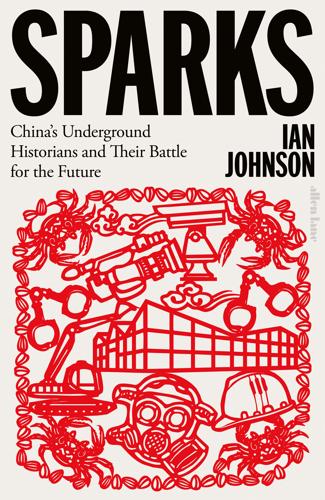
Sparks: China's Underground Historians and Their Battle for the Future
by
Ian Johnson
Published 26 Sep 2023
She took a tiny trishaw for half a mile to an apartment complex that was only twenty years old but aging unnaturally fast, its concrete already cracked and its paint discolored. The building’s appearance suggested that in only a few years it would be torn down, just like the farming villages and towns that it had supplanted. One of the towers was home to a gentle 65-year-old man who was, as Jiang Xue put it, her qianbei, or elder: Zhang Shihe, a pioneering citizen journalist. He was most prominent when he lived in Beijing in the 1990s and 2000s making short video films about the hinterland. He had been driven out of the capital during the 2011 crackdown resulting from the Arab world’s revolt against authoritarian leaders. Nervous that something like that could spread to China, officials began to break up the vibrant scene of independent writers, documentary filmmakers, and artists who had congregated in Beijing during the first 30 years of the reform era.
…
He ran one of China’s first independent bookstores in the 1980s, but the 1989 massacre convinced him that he needed to do something more concrete. In 1993, he left for Beijing to join a growing community of activists hoping to effect change. By the mid-2000s, Zhang made a name for himself as a citizen journalist—a breed of campaigner who used newly emerging digital technologies to record interviews and post them online, thus bypassing traditional forms of censorship. He adopted the online name of Tiger Temple, or laohu miao, which is still how most Chinese know him. Beijing became Zhang’s base for long bike rides into China’s hinterland.
…
His detention also showed that YouTube and Twitter are easily accessed by more Chinese intellectuals than is generally realized. This meant the images could be reposted on Chinese social media. Of course, they could be blocked but they could also be formatted in ways that were harder to censor. Even more influential than Chen was a 36-year-old former lawyer and citizen journalist named Zhang Zhan, who published for two months before being detained. Zhang was a trained lawyer who had been disbarred for handling human rights cases. Like Chen, she had been detained in 2019 for protesting on behalf of Hong Kong’s pro-democracy movement. On February 1, she traveled from her hometown of Shanghai to Wuhan.
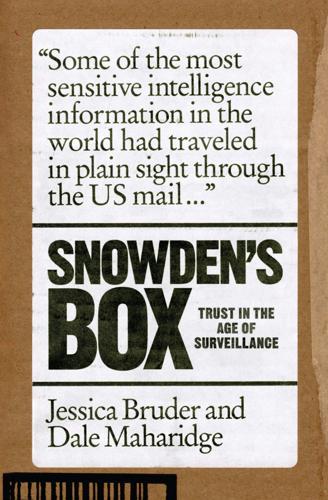
Snowden's Box: Trust in the Age of Surveillance
by
Jessica Bruder
and
Dale Maharidge
Published 29 Mar 2020
If you’re an activist or a citizen journalist, consider building a toolkit that supports your work in the field. At protests or political events, consider stashing your cellphone in a simple Faraday bag that blocks it from sending or receiving signals. (As of this writing, they’re available online for about $11 apiece.) This might seem like the modern-day equivalent of wearing a tinfoil hat, but it’s not — police have tracked cell signals at Occupy Wall Street and other civic demonstrations to identify the people who are participating. Security researchers also urge citizen journalists to back up their footage to a trusted space in the cloud, in case their devices are confiscated.
…
It’s another reason ordinary people should care about mass state surveillance, as Kirsten Johnson, the documentary filmmaker, explained in one of our interviews. “We are all camerapeople now,” Kirsten said explained. “Everybody.” Circumstances can suddenly transform anyone with a smartphone into a citizen journalist. If you film a political demonstration or action by the police, you may end up possessing information that powerful interests would like to suppress. Something similar, after all, happened to Laura Poitras. She began her adult life as a chef. After she started making films with strong political themes, she became a target for government harassment.
…
In other words: this stuff can happen to anyone. Smartphone-wielding citizens were arrested for filming the deaths of Philando Castile, Eric Garner, Freddie Gray, and Alton Sterling. In Ferguson, Missouri, civilians were also detained for filming officers after the fatal police shooting of Michael Brown. “The possibility of citizen journalism is thrilling, but we’re also seeing this pushback around if you are the person who provided the video information; there’s pressure on you from power structures,” Kirsten continued. “For me that’s a very critical part of this next phase of history, the way in which we are addressing how to empower people to use their cameras to speak about abuses of power but also to do it in a way where they are personally protected.”
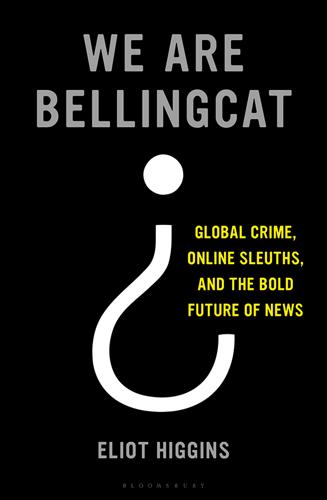
We Are Bellingcat: Global Crime, Online Sleuths, and the Bold Future of News
by
Eliot Higgins
Published 2 Mar 2021
Most of us grew up assuming we would remain peripheral to the issues of the day, that the powers that be could just ignore small people like us. Suddenly, this was not so. It was intoxicating. We needed a name for this project. I sat at my kitchen table, laptop open, cursor blinking. I phoned Peter Jukes, a citizen journalist who had written successfully for stage and screen before reporting on the phone-hacking scandal, which is how I had connected with him. If anyone could invent a clever name, he could. ‘You know that old fable, where the cat is terrorising the mice?’ he said. ‘Never heard of it.’ ‘Okay, so these mice are holding a meeting,’ Peter went on.
…
thread=66587#t66587 18 www.bellingcat.com/news/uk-and-europe/2014/07/24/caught-in-a-lie-compelling-evidence-russia-lied-about-the-buk-linked-to-mh17/ 19 it4sec.org/system/files/15.1.01_abrams.pdf 20 www.rollingstone.com/music/music-news/the-passion-of-kanye-west-71551/#ixzz3Ak9jIIed 21 it4sec.org/system/files/15.1.01_abrams.pdf 22 www.stopfake.org/en/anatomy-of-an-info-war-how-russia-s-propaganda-machine-works-and-how-to-counter-it/ 23 mashable.com/2014/07/23/citizen-journalists-mh17-spies/?europe=true 24 twitter.com/DisinfoPortal/status/1113190404105568257 25 euvsdisinfo.eu/figure-of-the-week-111486-0619/ www.groene.nl/artikel/het-mh17-complot 26 www.bellingcat.com/news/uk-and-europe/2014/07/24/caught-in-a-lie-compelling-evidence-russia-lied-about-the-buk-linked-to-mh17/ 27 ukraineatwar.blogspot.com/2014/07/another-photo-of-mh17-buk-transport.html 28 www.bellingcat.com/news/uk-and-europe/2014/07/28/two-more-key-sightings-of-the-mh17-buk-missile-launcher/ 29 www.bellingcat.com/news/uk-and-europe/2014/07/28/the-buk-that-could-an-open-source-odyssey/ 30 www.bellingcat.com/news/uk-and-europe/2014/07/22/the-latest-open-source-theories-speculation-and-debunks-on-flight-mh17/ www.bellingcat.com/resources/articles/2014/08/06/investigating-the-mh17-crash-site-with-meedans-checkdesk/web.archive.org/web/20140825231735/http://bellingcat.checkdesk.org/en/story/24 31 www.bellingcat.com/news/mena/2014/08/28/russias-version-of-the-navy-seals-may-be-fighting-in-ukraine/ 32 www.bellingcat.com/news/uk-and-europe/2014/09/08/images-show-the-buk-that-downed-flight-mh17-inside-russia-controlled-by-russian-troops/ 33 www.themoscowtimes.com/archive/activist-plans-protest-amid-outrage-over-talk-show-hosts-homophobic-meteor-comments 34 www.bellingcat.com/news/uk-and-europe/2014/10/11/russian-tv-inadvertently-demonstrates-mh17-wasnt-shot-down-by-aircraft-cannon-fire/ 35 www.bellingcat.com/news/2014/11/14/russian-state-television-shares-fake-images-of-mh17-being-attacked/ 36 www.bellingcat.com/news/uk-and-europe/2014/11/08/origin-of-the-separatists-buk-a-bellingcat-investigation/ 37 www.bellingcat.com/resources/case-studies/2015/01/27/examining-the-mh17-launch-smoke-photographs/ 38 www.youtube.com/watch?
…
Political agendas should have nothing to do with our work. And evidence-based citations had to underpin all findings. Lastly, we would never become a closed trade whose selling point was proximity to power. We were an open community of amateurs on a collaborative hunt for evidence. The media critic Jay Rosen anticipated the rise of citizen journalism, predicting years ago that it would gain influence as the institutions clutching the levers of information lost control. ‘The people formerly known as the audience wish to inform media people of our existence, and of a shift in power,’ Rosen wrote in 2006. ‘A highly centralized media system had connected people “up” to big social agencies and centers of power but not “across” to each other.
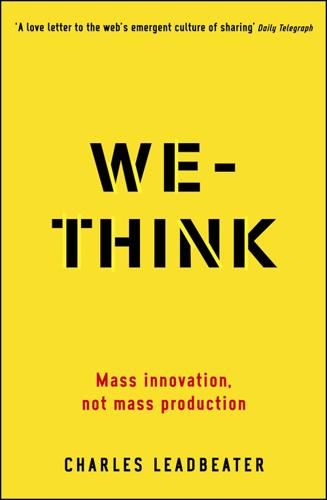
We-Think: Mass Innovation, Not Mass Production
by
Charles Leadbeater
Published 9 Dec 2010
Bush had received preferential treatment during his military service, by showing that the documents the network had relied upon were fakes. The website Slashdot, a meeting-place for nerds and geeks, gets 3 million visitors a day, mainly people who take part in scores of self-moderated discussions.9 OhmyNews in South Korea brings together 55,000 citizen journalists to provide a news service that rivals that of traditional, mainly conservative newspapers and television stations.10 YouTube and Flickr have enabled the widespread sharing of video and photographs and allow people to rate and sort content using tags and collaborative filters. So We-Think is vital to allow us to make the most of the extraordinary opportunities now available to us to create and contribute content.
…
Collaborative filtering and the book reviews and ratings on Amazon, and social tagging tools like Technorati and del.i.cious, through which people help one another find interesting material on the web, fit into this category. Only when all our five conditions come together at scale to provide a deliberate, conscious form of social creativity in which many people contribute and collaborate does Full We-Think emerge. OhmyNews, the South Korean citizen-journalist news service fits in here, as do mass computer games like World of Warcraft and scientific collaborations like the project to unravel the worm’s genome. Full We-Think is the deliberate and organised combination of contributions from a mass of distributed and independent participants. It would be silly to suggest that We-Think can work in every situation and that it is always the best organisational recipe.
…
Sprawling networked organisations can be thrown off balance by events in far-flung economies: British banks can be upended when lots of low-income households do not repay their mortgages in the US Midwest; the biggest oil company in the world can have its reputation tarnished by mistakes at a refinery in Alaska. Leaders in all walks of life operate in a far more open environment, under constant scrutiny from the media, regulators, their employees and now the wider world of citizen journalists, armed with their camera phones and blogs. Closed leadership is too slow for this world because too many decisions have to be passed upwards for approval. Closed leadership is also out of kilter with the increasingly democratic ethos of the times. Authority is now more likely to be questioned and less likely to be meekly followed.
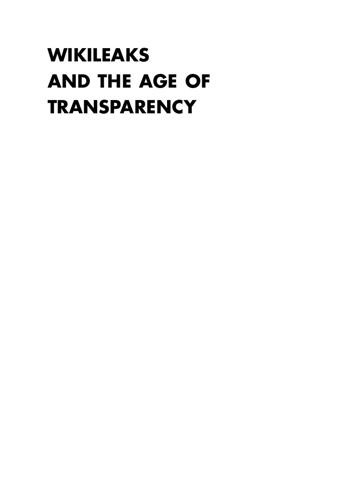
WikiLeaks and the Age of Transparency
by
Micah L. Sifry
Published 19 Feb 2011
Chapter 6 1 President Barack Obama, “Transparency and Open Government,” January 21, 2009, www.whitehouse.gov/the_press_office/Transparency andOpenGovernment. 2 President Barack Obama, “Freedom of Information Act,” January 21, 2009, www.whitehouse.gov/the_press_office/FreedomofInformationAct. 3 William Branigin, “Democrats Take Majority in House; Pelosi Poised to Become Speaker,” The Washington Post, November 8, 2006, www.washingtonpost.com/wp-dyn/content/article/2006/11/07/ AR2006110700473.html. 4 A full list of participants in the Open House Project can be found here: www.theopenhouseproject.com/press/launch. 5 John Wonderlich, “Open House Project Retrospective,” The Open House Project, October 14, 2008, www.theopenhouseproject.com/2008/10/14/ open-house-project-retrospective. It’s also worth noting that press credentialing for citizen journalists and bulk access to congressional floor and committee video were two recommendations that the project made the least progress on. 6 Micah L. Sifry, “Obama as Crowdsourcer; Organizing the Country for Change and Accountability,” techPresident.com, February 8, 2009, http://techpresident.com/blog-entry/obama-crowdsourcer-organizingcountry-change-and-accountability. 7 Clint Hendler, “Obama on Recovery.gov,” Columbia Journalism Review, February 9, 2009, www.cjr.org/the_kicker/obama_on_recoverygov.php. 8 Edward Luce and Tom Braithwaite, “US stimulus tsar to unleash 1m inspector-generals,” The Financial Times, August 20, 2009, www.ft.com/ cms/s/0/e731fd52-8db0-11de-93df-00144feabdc0.html#axzz1 AZfFLMQT. 9 Earl Devaney, “Chairman’s Corner,” Recovery.gov, March 22, 2010, www. recovery.gov/News/chairman/Pages/march222010.aspx. 10 Clay Johnson, “Recovery.gov: Stop with the Data Defense, Start with the Conversation,” March 30, 2010, http://sunlightlabs.com/blog/2010/ recoverygov-stop-data-defense-start-conversation. 11 Earl Devaney, “Chairman’s Corner,” Recovery.gov, October 27, 2010, www.recovery.gov/News/chairman/Pages/2010Oct27.aspx 197 WIKILEAKS AND THE AGE OF TRANSPARENCY 12 13 14 15 16 17 18 19 20 21 22 23 198 Becky Hogge, “Open Data Study,” Open Society Foundations Information Program, May 2010, www.soros.org/initiatives/information/focus/ communication/ar ticles_publications/publications/open-datastudy-20100519.
…
The 600,000 people who had put their hearts, minds, mousepads, and checkbooks together for Howard Dean and, at least for a time, driven a fairly obscure small-state governor to the center of the presidential campaign had just gotten a taste of their own power. “We all felt the muscle flex of this new progressive movement and were stunned by it,” recalled Nicco Mele, Dean’s webmaster.6 Bloggers, the leaders of a new citizen journalism, were seeing their traffic multiply into the hundreds of thousands as readers flocked to sites that were more participatory and transparent than traditional media. People were learning how to ferret out information and force it into public view—and embarrassing all kinds of powerful targets, from Senator Trent Lott and CBS anchor Dan Rather to the Diebold electronic voting machine company, which tried to suppress the leak of embarrassing internal emails and instead saw them spread by activists onto hundreds of servers across the web.7 (Shades of WikiLeaks!)
…
In 2007, he ran the Social Democrats’ online campaign; he backed Ivo Josipovic in his campaign for Croatia’s (largely ceremonial) presidency; and more recently he helped an unknown candidate for mayor of Zagreb come from nowhere to grab forty percent of the vote against the incumbent. He is now looking to start a “serious citizen journalism site” that would offer analytical, behindthe-news reporting, blending citizen contributions with professional moderation. I asked him why he does what he does. “It’s hard to express,” he says. “I just want to see a better country.” But he is muckraking for a harder reason too: “Croatian history is full of ‘unfinished’ stories, and unless we start talking and resolving them we will be forever burdened by our past.”
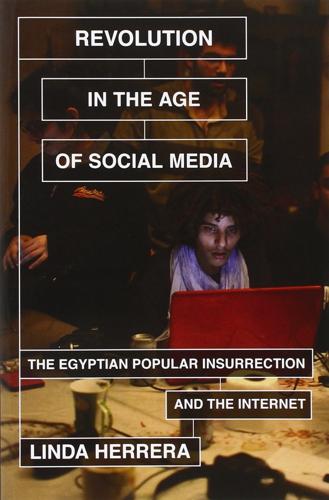
Revolution in the Age of Social Media: The Egyptian Popular Insurrection and the Internet
by
Linda Herrera
Published 14 Apr 2014
Badawy was the first person to post the before and after photos of Khaled, images that were quickly picked up by the Ayman Nour Facebook page and the online newspaper Al-Youm al-Saba`a. Badawi blogged that the police targeted Khaled because he had posted a video of a group of policemen dividing the spoils of a drug bust. Even though Khaled was not known among the community of bloggers and activists in Alexandria, the explanation of him as a brave citizen journalist picked up traction with “youth of the internet” (shabab al-internet). At the hands of seasoned activists, Khaled’s life became a blank slate on which to write a compelling story. The heroic narratives that circulated about Khaled held little resemblance to the actual person. In a richly investigated piece in Jadaliyya called “Saeeds of Revolution: De-Mythologizing Khaled Saeed,” Amro Ali reveals that the image and life of Khaled Said were “distorted almost beyond recognition.”
…
Egypt’s parliamentary and first multi-candidate presidential elections in 2005 served as crucial milestones in the evolution of online opposition politics. Young citizens took it upon themselves to document and publicize the array of fraud and intimidation against candidates and voters. Haitham, a blogger who was nineteen years old at the time, took his first steps toward citizen journalism in 2005. He explains: I was very interested in carrying out an experiment to supervise an election from inside a poll station. I went to a small village outside of Alexandria and started to monitor what was happening. I saw how people would sell their votes and write “yes” for Mubarak just for money.
…
It’s very difficult to judge the true strength of these groups in the current environment. With blogging and internet connectivity on the rise, MEPI entered into the arena of youth cyberjournalism and cyberactivist training. MEPI earmarked resources to support NGOs to train cyberactivists in how to use communication tools and internet platforms for citizen journalism and democracy-promotion activities. Alongside MEPI, the State Department was busy developing what it called “Diplomacy 2.0.” Karen Hughes, the Under Secretary of State for Public Diplomacy and Public Affairs from 2005 to 2007, attempted to bring public diplomacy to the digital age. She established regional media hubs in Brussels, London, and Dubai with the intention of spreading news about US foreign policy in overseas broadcast media.
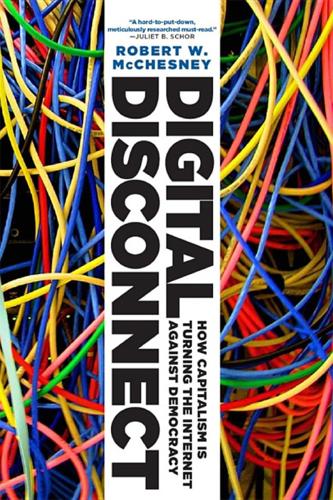
Digital Disconnect: How Capitalism Is Turning the Internet Against Democracy
by
Robert W. McChesney
Published 5 Mar 2013
No child labor, yet, but if there were more page views in it . . .”100 David Watts Barton left the Sacramento Bee in 2007 to work at the Sacramento Press, a hyperlocal digital news operation. In the Columbia Journalism Review, he described the extreme difficulty of producing credible journalism based on volunteer labor. “Editing costs money. Citizen journalists are cheap and they can even be good. But even great journalists need some editing; citizen journalists need a lot of it. . . . Without journalism jobs, we don’t have journalism.”101 Commercial media’s attitude toward journalism labor became apparent in the Journatic brouhaha following a whistleblower’s exposé aired on public radio’s This American Life in the summer of 2012.
…
Digital technology has only greatly accelerated and made permanent trends produced by commercialism that were apparent before the World Wide Web, Craigslist, Google, or Facebook existed. I then look at the various efforts at generating digital journalism by the traditional news media, entrepreneurs, citizen journalists (a colloquial term for unpaid journalists), and nonprofit organizations. Although I find scant evidence that what is occurring online today could plausibly generate a popular journalism sufficient for a free and self-governing society, the notion that the Internet could provide the basis for a radically improved democratic journalism is another matter altogether.
…
See advertising and marketing to children children’s cell phone use, 2 Children’s Online Privacy Protection Act (COPPA), 266–67n151 Chile, 101 China, 10, 31, 32, 43, 125, 126, 163 “Chinese wall” (journalism). See journalistic firewall chipset market, 133 Christianity, 242n83 Christian Science Monitor, 185 “church-state separation” (journalism). See journalistic firewall Cisco, 131, 145, 260n36 “citizen journalists,” 174, 175, 191, 200, 277n101 citizenship news voucher (proposed), 211–14 civil liberties ratings and rankings, 207 class, 14, 25, 27, 29, 32, 203–4, 237n13. See also middle class; poor people; wealthy people; working class classification of documents. See government classification of documents climate change, 282n11 Clinton, Bill, 106 cloud computing, 136, 161, 260n36 Cognitive Surplus (Shirky), 6, 9 Comcast, 77, 110, 113, 124, 131, 137 commercialism and commercialization, 24, 69, 76, 102, 103, 104, 120–29 alienating effect of, 70 commercialization of friendship, 157 international index of, 46 in journalism, 83, 86, 90–91 Michael Sandel on, 45 public antipathy to, 67–68, 75, 102 commercials, television.
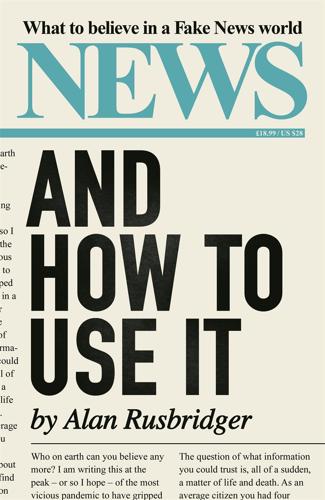
News and How to Use It: What to Believe in a Fake News World
by
Alan Rusbridger
Published 26 Nov 2020
These are agencies that, today, have untold powers to place millions of people under some form of surveillance. We don’t need to re-read George Orwell to see what can happen when things go wrong: there are numerous examples of societies which take pride in their ability to keep a close watch on citizens. Journalists covering the spy agencies in the UK, the US and other democracies do so in hugely different ways. At one end of the spectrum are reporters extremely close to the spy agencies. These are favourites, the trusted ones who can be relied on by the agencies to relay information to their readers and viewers largely unfiltered and unquestioned.
…
Some of the best verifiers in the digital space were not trained as journalists – and some of them give daily tutorials on how they set about sifting evidence from fakery. Take a relatively trivial example. In March 2020, at the height of the Covid-19 pandemic, pictures started circulating on Twitter and elsewhere purporting to show clear water, fish and swans returning to the canals of Venice. Eliot Higgins, a citizen journalist-turned-obsessive military analyst who usually spends his days in close analysis of the weaponry being used by all sides in the Syrian conflict, found himself at home and at a loose end when his job doing data processing at a ladies’ lingerie maker came to an abrupt halt. How, then, to work out if the heartwarming pictures of nature re-asserting itself in the waters of Venice were real?
…
– in Scandinavia and, in the words of the Dutch journalist Bas Mesters, added ‘What now?’ to the usual five Ws of reporting: Who, What, Where, Why and When. Next question: What now? Constructive journalism is one name for this project. It overlaps with ideas variously labelled civic journalism, citizen journalism, community journalism and communitarian journalism. It imagines a huge shift in how news is imagined, conceived, marketed, produced, sold and consumed. So, it’s not going to happen tomorrow. But, like all big and worthwhile ideas, it may have stamina. CRAFT In most walks of life it’s pretty clear what skills are involved.
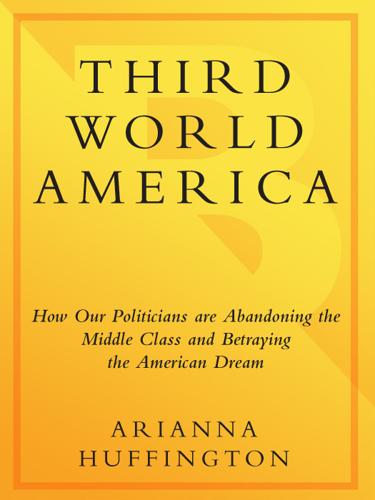
Third World America: How Our Politicians Are Abandoning the Middle Class and Betraying the American Dream
by
Arianna Huffington
Published 7 Sep 2010
Luckily, thanks to the expansion of online news sources, new media platforms such as Twitter and Facebook, and the ever-decreasing size and cost of camera phones and video cameras, the ability to commit acts of journalism is spreading to everyone. As a result, citizen journalism is rapidly emerging as an invaluable part of delivering the news. Nothing demonstrated the power of citizen journalism better than the 2009 uprising in Iran. People tweeting from demonstrations and uploading video of brutal violence taken with their camera phones were able to tell a story, in real time, that a tightly controlled mainstream media was unable to cover with the same speed and depth. Citizen journalism often works best when filling a void—attending an event that traditional journalists are kept from or have overlooked—or by finding the small but evocative story happening right next door.
…
Citizen journalism often works best when filling a void—attending an event that traditional journalists are kept from or have overlooked—or by finding the small but evocative story happening right next door. People are becoming increasingly creative in exploring ways to find these facts and tell these stories. New media and citizen journalists are taking traditional journalism’s ability to bear witness, and spreading it beyond the elite few—thereby making it harder for those elite few to get it as wrong as they’ve gotten it again and again. Our slide into Third World America may not be televised … but it will be blogged, tweeted, posted on Facebook, covered with a camera phone, and uploaded to YouTube.
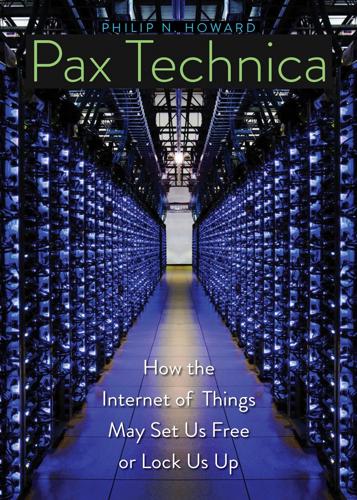
Pax Technica: How the Internet of Things May Set Us Free or Lock Us Up
by
Philip N. Howard
Published 27 Apr 2015
Eventually, Twitter feeds were clogged with advertisements and misinformation, and communities had to move on to other hashtags and develop sophistication in interpreting what was coming over their feeds. Communities rapidly develop their own hashtags and keywords and documentary techniques. The Witness Project encourages people to document the abuses they see, and coaches citizen journalists on how to use care with their work. In Monterrey, some tweeters were “halcons” or falcons, people who watched Twitter traffic at the behest of the gangs, looking for tips about police maneuvers and informants.16 Tweeters competed to break news and correct one another. Social media help people cope during civil strife.
…
The startup Premise, for example, uses mobile apps to collate pricing information for the world’s food staples, from onions to milk.68 The internet of things is going to have a big impact on current events. The job of monitoring a problem, verifying that something can be done, and complying with expectations for solving it is tough, especially in global contexts. Fortunately, there is a growing number of vigilante watchers, citizen journalists, hacktivists, and whistle blowers. In many countries, the government is also the largest employer. And payroll is a big target for corrupt officials. So any system that helps the government pay its employees properly makes the entire economy a little more transparent and efficient. In Afghanistan, when the government started paying its police officers using “mobile money” through mobile phones, many officers were surprised at the size of their paychecks.
…
But tracking technologies improve faster than these thugs’ ability to discover new hiding spots. In some cases, people are able to muster significant information resources toward undermining the credibility of poor leaders, then organize opponents for a coordinated push. These information cascades start as small examples of citizen journalism, efforts to document police abuse, or political jokes. They can grow to topple a dictator. Dirty networks are not always governments, but bad governments are often networked with drug lords, corrupt generals, or holy thugs. Social media can be used against those kinds of political actors too, as a way of undermining their control or as a way of coping during moments of extreme violence.
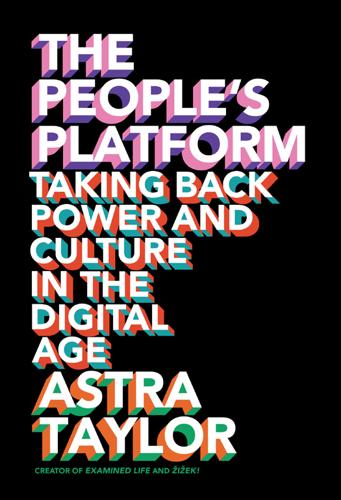
The People's Platform: Taking Back Power and Culture in the Digital Age
by
Astra Taylor
Published 4 Mar 2014
It’s no wonder, then, that people find solace in the idea of an amateur utopia, a public sphere where the unsavory issue of money is sidestepped and pure-hearted citizen journalists work unsullied. Davies dismisses the vision. “The fact is that reporting is difficult—it involves real skills, some of them quite obscure; it needs resources and time; it also, I think, needs to be accountable.” There might be some very good stuff published under the auspices of citizen journalism, Davies acknowledges. “But the dangers are clear.” Idealizing citizen journalists, imagining them as necessarily agenda-less and untainted, is one such danger. But the problem, as Davies knows, goes deeper than the overblown battle of amateurs versus professionals, journalists versus bloggers, print versus digital, old media versus new, or analog immigrants versus digital natives.
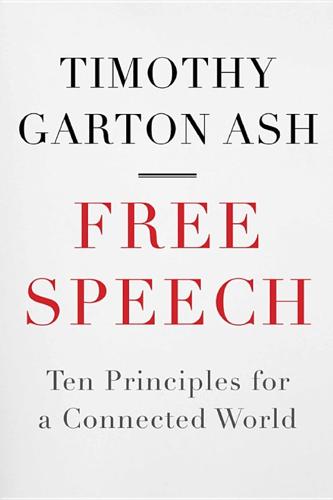
Free Speech: Ten Principles for a Connected World
by
Timothy Garton Ash
Published 23 May 2016
Robert Cottrell, ‘My Life as a Screen Slave’, Financial Times, 15 February 2013 70. fact-checking sites include factcheck.org, fullfact.org, politifact.com and washington-post.com/blogs/fact-checker/. For one account of verification, see Malachy Browne, ‘Storyful: Verifying Citizen Journalism’, Free Speech Debate, http://freespeechdebate.com/en/discuss/verifying-citizen-journalism/ 71. Jefferson 1787 in Boyd, ed. 1950 [1787], http://perma.cc/N4NQ-Q8RG 72. Coleman et al. 2009, 45 73. for an interesting discussion of citizen journalism, see Turi Munthe, ‘Has Demotix Democratised Journalism?’, Free Speech Debate, http://freespeechdebate.com/en/media/has-demotix-changed-the-internet/ 74. Newman et al., eds. 2014, 66 75.
…
Chen Yi then posted a detailed statement of how the RMB 114,550 she had received in contributions had been spent—some RMB 40,000 for her mother’s surgery, the rest to a charity for children with leukaemia. Chen Yi was the one who had initially ‘gone public’, and since the public had given money there was in some sense a public interest in knowing that it had been properly spent. The irony is that it took a clear violation of her privacy to correct the ‘false light’ cast by the original citizen-journalist enquiry.46 Now consider the hounding of an apparatchik called Zhou Jiugeng, the head of the real estate department in the Jiangning district of the city of Nanjing. In December 2008, he warned that developers selling properties at a price below the actual cost would be prosecuted. A day later, a post titled ‘Eight Questions to Property Bureau Chief Zhou’ started a flesh search.
…
The executive, the legislature and the judiciary (in British terms: government, parliament and the courts) all have a part to play, as does the media. But as we saw in chapter 4, in the internet age nobody quite knows where the media begin and end. For example, is WikiLeaks part of the media? Or is it, as the title of a film about it suggested, the fifth estate? What about networks of bloggers, citizen journalists, civil society activists and NGOs? Are they a sixth estate? Where do we fit into this picture the use of information and communications technologies, such as encryption and Tor, to counter the repressive potential of those same technologies? I shall touch only briefly on the roles that can be played by executive, judiciary and legislature, say a few words about the media and then argue that all these constraints will be inadequate without the contribution of two particular kinds of free speech: leaking and whistleblowing.
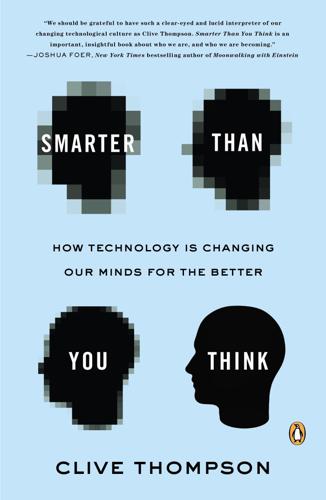
Smarter Than You Think: How Technology Is Changing Our Minds for the Better
by
Clive Thompson
Published 11 Sep 2013
“There is now a constant ‘price tag’ on violent responses from oppressors: Somebody will catch those moments with a simple camera and upload it on YouTube,” as Srdja Popovic, a leader of the Serbian youth group Otpor! (which agitated for the overthrow of Slobodan Miloševic in the late 1990s) told The European. Do sousveillance and citizen journalism supplant traditional journalism? Not really—even the most committed citizen documentarians don’t have the time or resources to do the legwork that journalists, at their best, do. Instead, it’s become clear that citizens and traditional media have a symbiotic relationship. Because citizen journalists are more widespread, they capture things traditional media cannot. But their voices become amplified when they attract the attention of old media, with its audiences in traditional corridors of power.
…
In the early 1990s, I believed that as people migrated online, society’s worst urges might be uncorked: pseudonymity would poison online conversation, gossip and trivia would dominate, and cultural standards would collapse. Certainly some of those predictions have come true, as anyone who’s wandered into an angry political forum knows. But the truth is, while I predicted the bad stuff, I didn’t foresee the good stuff. And what a torrent we have: Wikipedia, a global forest of eloquent bloggers, citizen journalism, political fact-checking—or even the way status-update tools like Twitter have produced a renaissance in witty, aphoristic, haiku-esque expression. If this book accentuates the positive, that’s in part because we’ve been so flooded with apocalyptic warnings of late. We need a new way to talk clearly about the rewards and pleasures of our digital experiences—one that’s rooted in our lived experience and also detangled from the hype of Silicon Valley.
…
Sanger, “A Tunisian-Egyptian Link That Shook Arab History,” The New York Times, February 13, 2011, accessed March 26, 2013, www.nytimes.com/2011/02/14/world/middleeast/14egypt-tunisia-protests.html; Jillian York, “The Arab Digital Vanguard: How a Decade of Blogging Contributed to a Year of Revolution,” Georgetown Journal of International Affairs 13, no. 1 (Winter/Spring 2012): 33–42, accessed March 26, 2013, jilliancyork.com/wp-content/uploads/2012/02/33-42-FORUM-York.pdf. “Most of their marches and protests”: Sahar Khamis and Katherine Vaughn, “Cyberactivism in the Egyptian Revolution: How Civic Engagement and Citizen Journalism Tilted the Balance,” Arab Media & Society 14 (Summer 2011), accessed March 26, 2013, www.arabmediasociety.com/index.php?article=769. “Fear was embodied”: Wael Ghonim, Revolution 2.0: The Power of the People Is Greater Than the People in Power: A Memoir (New York: Houghton Mifflin Harcourt, 2012), Kindle edition.
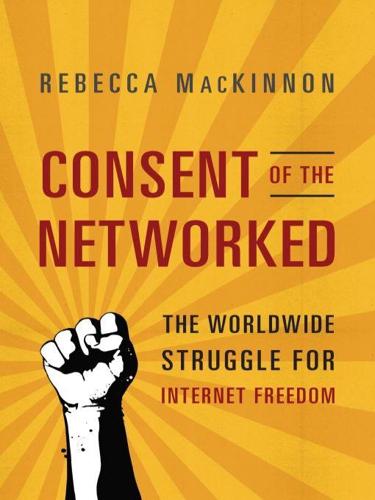
Consent of the Networked: The Worldwide Struggle for Internet Freedom
by
Rebecca MacKinnon
Published 31 Jan 2012
It powers a vast range of sites from Global Voices to the Kenyan citizen media website Ushahidi, to several Arabic blogging community websites. It also powers the blogs of some of China’s most cutting-edge bloggers. One of the WordPress fans who clamored for a photo with Mullenweg at Beijing WordCamp was Zhou Shuguang, a twenty-eight-year-old vegetable seller turned blogger who writes under the pen name Zola. This “citizen journalist” has traveled the country writing about hot topics on the Chinese Internet. In 2006 he catapulted to fame as the “nailhouse blogger” whose on-site reports of a dramatic standoff between a Chongqing couple and local property developers helped break down a national media ban on the incident. In 2007 he was detained and escorted back to his home in Changsha after attempting to cover protests in the Northeast.
…
After I left China in 2001 and moved to Japan as CNN’s Tokyo bureau chief, my fascination with the Internet’s effect on global politics broadened. On a trip to South Korea, I reported on how Roh Moo-hyun won the presidency in December 2002 by a narrow margin thanks to eleventh-hour online and mobile activism by readers of OhMyNews, one of the world’s first online citizen journalism ventures. In January 2003 a friend introduced me to “Where is Raed?” the blog of an Iraqi man in Baghdad writing under the pseudonym Salam Pax. As the United States and its allies prepared to invade, he ranted cynically against Saddam Hussein’s regime, the Bush administration, and almost everyone and everything else.
…
April Media wasted no time in disseminating a viral video showing footage of the indignant Chinese netizens confronting the US ambassador. The video ended with a commentary condemning the United States for interfering in other countries’ affairs, and warning that the United States could turn China into yet another Iraq if the Chinese people were not vigilant. The government had no direct hand in this act of “citizen journalism” or the video; it was a spontaneous product of China’s nationalist commons. The motivations of Rao’s band of young, nationalistic media activists are similar to those of China’s patriotic hackers—often loose alliances of computer whizzes who engage in patriotic hacking missions, and whose relationship to the government is often unclear.
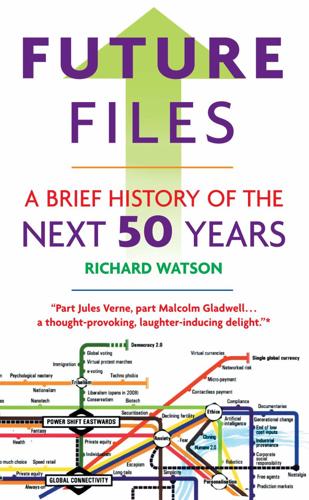
Future Files: A Brief History of the Next 50 Years
by
Richard Watson
Published 1 Jan 2008
According to research by ComScore, Six Apart and Gawker Media, 50 million people visited blog sites in the US in the first quarter of 2005 — about 30% of all US internet users or one-sixth of the entire US population. By the time you read this there will probably be 100 million blogs. What’s more, they aren’t all reading about “social-lights” like Ms Hilton; many of the most popular sites are about politics (sorry, Paris). With this self-publishing or “citizen journalist” trend in full swing, are newspapers old news? Not quite, as they are already using innovation to improve their products. Some of the best new ideas include compact formats for commuters (in the UK, The Times and the Independent were available in a choice of two sizes for a while), kids’ newspapers (four daily newspapers from Play Bac Presse in France) and newspapers written entirely by readers.
…
It’s still unclear at this early stage what a fully blown reader-produced newspaper would look like, but it’s certain that the amateur genie is already out of the bottle. Whether this is good or bad news depends on your point of view. Some claim that this democratization of the media is the best thing that’s happened since Gutenberg, whereas others see nothing but hyperactive half-wits writing on water. For example, citizen journalism gives no weight to expertise. Wikipedia.com — the 17thmost-visited site on the internet — is written by millions of anonymous amateurs. In contrast, Britannica.com — ranked around 5,000 — is written by over 4,000 named experts, including 100 Nobel Prize winners. One of the biggest questions arising from this type of innovation is: who owns openly created content?
…
But while there is a symbiotic relationship developing between mainstream media companies (for example newspapers, radio and Media and Entertainment 107 television networks) and social media (for example bloggers, podcasters, vloggers and online social networks), the relationship is unequal; so-called free content is rarely free. Indeed, much social media content that is not worthless is often stolen from a mainstream media company, which paid to produce it in the first place. Hence the real cost of citizen journalism could be the death of the very sources on which it depends. Who then will hold governments and corporations to account? Famous for fifteen minutes If the cost of creating and distributing digital media content is now very low, in the future it will be practically zero. This means that anyone with an idea (and, hopefully, a rudimentary grasp of spelling) can become a one-person pundit on any topic that interests him or her.
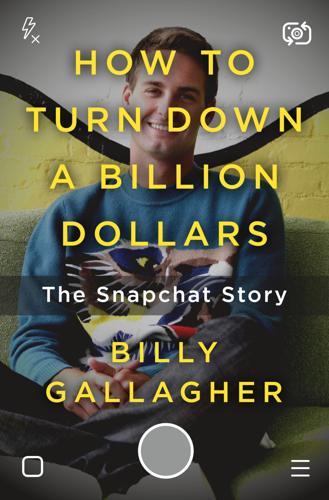
How to Turn Down a Billion Dollars: The Snapchat Story
by
Billy Gallagher
Published 13 Feb 2018
As the tragedy unfolded, Snapchat created a live story open to everyone in the United States. The story brought viewers photos and videos from the scene as well as narrative developments and statements from authorities. It brought users citizen journalism, aggregated and narrated by professionals. Internally, Snapchat calls everything it produces “content,” and Hamby’s crew follows suit, but the intentions of his team are clear: to use the platform to mix high-quality professional journalism with citizen-journalist-produced documentation of breaking news stories. Snapchat has the potential to broadcast stories curated from users on the ground at the core of the action. But it remains to be seen if users want hard-hitting news in the same app that they employ to send videos of themselves vomiting rainbows to each other.
…
In December 2015, a shooter killed fourteen people and injured seventeen more in San Bernadino, California. As the tragedy unfolded, Snapchat created a live story, bringing viewers photos and videos from the scene as well as narrative developments and statements from authorities. This potent format, aggregating the best clips from citizen journalists and adding professional narration, led some to believe that Snapchat could be the next big platform for journalists. But the hype was short-lived, as Snapchat decided to favor more lighthearted content. In January 2016, Republican senator Ted Cruz mocked fellow nominee Donald Trump for skipping the final Republican debate with a geofilter asking, “Where is Ducking Donald?”
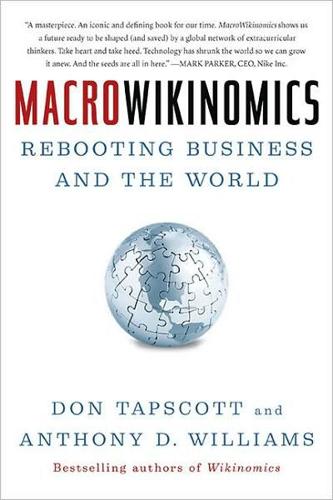
MacroWikinomics: Rebooting Business and the World
by
Don Tapscott
and
Anthony D. Williams
Published 28 Sep 2010
“With Off the Bus we had over twelve thousand citizen journalists acting as the real eyes and ears of the campaigns.” The innovation was popular with readers. During the last election not only was The Huffington Post the most-viewed stand-alone political news site, but HuffPo’s readership doubled in 2008 compared with 2007 and redoubled in 2009.5 The HuffPo also has media monitors keeping watch on TV and radio shows, pointing out moments and outrages worthy of comment. When the so-called Tea Parties were organized across the country in 2009, HuffPo had thousands of citizen journalists sending photographs and stories about what was happening on the ground.
…
But the HuffPo, as it’s called, is not just paving the journalistic cow path, or simply turning atoms into bits. Rather, it represents a new model of content production built on a new species of community. It has a small paid staff of 150, and relies on more than 3,000 contributors2 to produce content on every conceivable topic. It has another 12,000 “citizen journalists” who are its “eyes and ears.” Its readers also produce much of the HuffPo’s content to the tune of over 2 million contributions per month.3 Huffington says her readers’ engagement and insights are essential to HuffPo’s value. Huffington cofounder Jonah Peretti believes that the news model is no longer a passive relationship of news handed down but “a shared enterprise between its producer and its consumer.”4 Huffington’s goals are clear: “We want to be the Internet newspaper, covering everything and catering to every interest,” she says, but “driving this from our distinct editorial viewpoint.”
…
Just as IBM’s participation in the Linux community was a factor in helping the company transition from commodity operating systems to lucrative consulting services, newspapers can exploit the power of collaborative innovation to move from commodity news to exciting new models and services that give readers and other participants a major role in value creation. Imagine the news ecosystem of the future, with thousands and perhaps millions of contributors plugging in at different levels: citizen journalists who upload photos, videos, and eyewitness accounts; feature bloggers who only get paid based on advertising revenue; professional reporters who focus on higher-value activities like investigative journalism; and a new layer of knowledge curators who repurpose or remix all this content into new offerings.
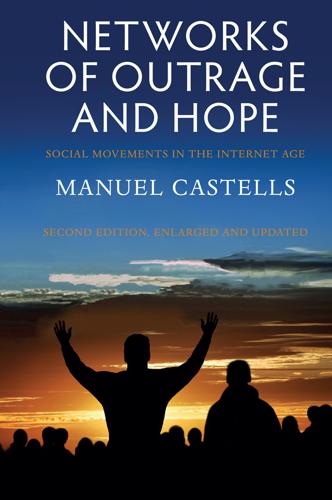
Networks of Outrage and Hope: Social Movements in the Internet Age
by
Manuel Castells
Published 19 Aug 2012
These growing free voices that spread on the Internet in spite of censorship and repression found a powerful ally in satellite television beyond government control, particularly Al Jazeera. There was a symbiotic relationship between mobile phone citizen journalists uploading images and information to YouTube and Al Jazeera using feeds from citizen journalism and then broadcasting them to the population at large (40 percent of Tunisians in urban centers watched Al Jazeera, since official television had been reduced to a primitive propaganda tool). This Al Jazeera–Internet link was essential during the weeks of the revolts, both in Tunisia and in relation to the Arab world.
…
While Western mainstream media lost interest in daily reporting on Egypt once Mubarak was removed from power, Al Jazeera continued to connect the Egyptian protesters to the Egyptian and Arab public opinion. The quality of Al Jazeera reporting, conducted at great risk by its journalists, was supported by the station’s openness to citizen journalism. Many of the feeds and information that it broadcast came from activists on the ground and from ordinary citizens that were recording history-making with their cell phones. By broadcasting live, and by keeping a permanent focus on developments in the public space, professional mainstream media created a certain mantle of protection for the movement against violent repression, as the international supporters of Mubarak first, and of SCAF later tried to avoid embarrassment vis-à-vis global public opinion because of unjustified repressive actions of their protégés.
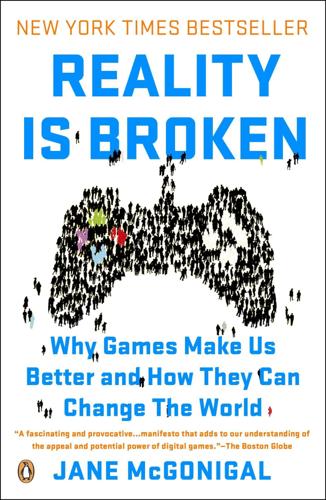
Reality Is Broken: Why Games Make Us Better and How They Can Change the World
by
Jane McGonigal
Published 20 Jan 2011
At least twenty-eight MPs resigned or declared their intention to do so at the end of their term, and by early 2010 criminal proceedings against four MPs investigated by the players were under way. New expense codes are being written, and old codes are being enforced more vigorously. Most concretely, hundreds of MPs were ordered to repay a total of £1.12 million.6 It’s not all the doing of the Guardian’s gamers, of course. But without a doubt, the game played a crucial role. The citizen journalists helped put significant political pressure on the British government by keeping the scandal in the news. The longer the game continued, the more public momentum built to force major policy reform. Investigate Your MP’s Expenses enabled tens of thousands of citizens to participate directly in a new kind of political reform movement.
…
(By comparison, roughly 4.6 percent of visitors to Wikipedia make a contribution to the online encyclopedia.)5 It’s especially breathtaking considering the mind-numbingly tedious nature of the actual accounting work being performed. So what accounted for this unprecedented participation in a citizen journalism project? According to Willison, it all boiled down to rewarding participants in the right way: with the emotional rewards of a good game. “The number one lesson from this project: Make it feel like a game,” Willison said in an interview with the Nieman Journalism Lab. “Any time that you’re trying to get people to give you stuff, to do stuff for you, the most important thing is that people know that what they’re doing is having an effect.
…
It’s the increasingly unsolicited requests we receive on a daily basis to participate in someone else’s group. If you’re not getting participation-spammed yet, you will—and soon. By my own back-of-the-envelope estimate, there are currently more than 200 million public requests for crowd participation on the Internet, across thousands of different networks, ranging from citizen journalism, citizen science, and open government to peer-to-peer advice, social networking, and open innovation. This estimate factors in, for example, more than 1 million public social networks created on Ning, more than 100,000 wikis on Wikia, more than 100,000 crowdsourcing projects on Amazon’s Mechanical Turk, at least 20,000 videos awaiting transcription and translation on DotSUB, as well as myriad smaller clusters of open collaboration, such as the more than 3,300 public “idea spaces” for proposing and developing innovative ideas on IBM Lotus’ IdeaJam and more than 14,000 on Dell’s IdeaStorm.
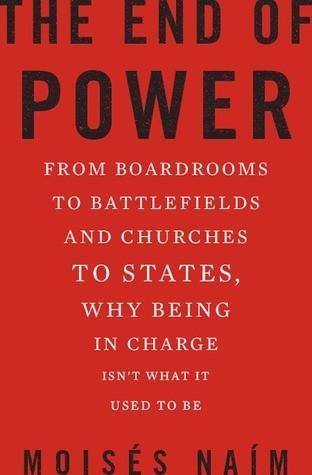
The End of Power: From Boardrooms to Battlefields and Churches to States, Why Being in Charge Isn’t What It Used to Be
by
Moises Naim
Published 5 Mar 2013
Single-issue interest groups now throw up their own candidates rather than participating in the political process at arm’s length. With barriers to participation lower than they have ever been, the field of rivals has grown. An aspiring politician must consider alliances and anticipate attacks from a shape-shifting milieu of parties, activists, funders, opinion makers, citizen journalists, watchdogs, and advocates of all sorts. Empowering Individuals The expanding role for individuals—nonpoliticians, nonprofessionals—may be the most exciting and challenging effect of the political centrifuge. It results from the collapse of the organizational and cultural barriers that separated people in the profession of politics from those outside.
…
Now, not only is that hierarchy under threat but the boundaries of journalism as a profession have fallen, as one after another upstart venture has shown itself able to compete with, if not surpass, established journalistic outlets. The Huffington Post, for example, which used to be derided by mainstream media as a rip-off aggregator, has beefed up its reporting staff and won the Pulitzer Prize for national reporting in 2012. Widespread digital and cellphone cameras and video recorders have catapulted “citizen journalism” to the forefront, with ordinary people competing with paparazzi for celebrity shots (which online brokers then market to the tabloids) or supplying raw evidence of police brutality or early images of a natural disaster. (It should be noted, however, that David Wood, the Pulitzer Prize–winner at The Huffington Post, has decades of reporting experience.)
…
In 2012, for example, the Nieman Journalism Lab profiled three European newspaper companies that are successfully pursuing different strategies to thrive in the digital age: Sanoma, Finland’s largest news company, has pioneered new ways to profitably convert its print subscribers to digital access; Norway’s Schibsted, the world’s eighth-biggest news company, operates in twenty-eight countries and gets more than a third of its revenues from digital offerings, or about three times as much as the average newspaper; Switzerland’s Zeitung Online is experimenting with “hyperlocalism,” winning readers by ignoring stories about President Obama and world affairs in favor of those about the town mayor and canton politics. The rise of small, outsider, and citizen journalism and social networking in the media may prove complementary to some of the existing players. Among the new forces are also independent investigative groups with nonprofit funding such as ProPublica, an “independent, nonprofit newsroom” (to use its own descriptor) whose partnerships with established newspapers in the United States have already begun to win awards (in ProPublica’s case, a 2011 Pulitzer Prize).
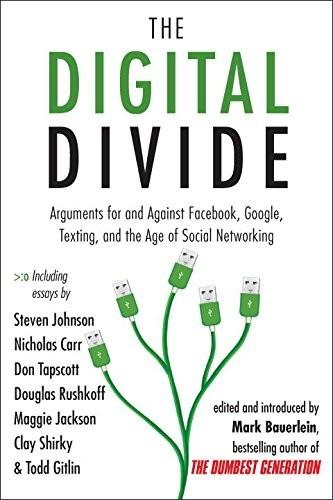
The Digital Divide: Arguments for and Against Facebook, Google, Texting, and the Age of Social Netwo Rking
by
Mark Bauerlein
Published 7 Sep 2011
It suggests that everyone—even the most poorly educated and inarticulate amongst us—can and should use digital media to express and realize themselves. Web 2.0 “empowers” our creativity, it “democratizes” media, it “levels the playing field” between experts and amateurs. The enemy of Web 2.0 is “elitist” traditional media. Empowered by Web 2.0 technology, we can all become citizen journalists, citizen videographers, citizen musicians. Empowered by this technology, we will be able to write in the morning, direct movies in the afternoon, and make music in the evening. Sounds familiar? It’s eerily similar to Marx’s seductive promise about individual self-realization in his German Ideology: Whereas in communist society, where nobody has one exclusive sphere of activity but each can become accomplished in any branch he wishes, society regulates the general production and thus makes it possible for me to do one thing today and another tomorrow, to hunt in the morning, fish in the afternoon, rear cattle in the evening, criticise after dinner, just as I have a mind, without ever becoming hunter, fisherman, shepherd or critic.
…
Lessig has confused what makes democracy possible—certain political, not cultural, mechanisms—with what democracy makes possible: free “expression.” Lessig isn’t the only one singing 2.0’s praises who seems confused about fundamental terms. Jay Rosen, a professor of journalism at New York University, is maybe the most voluble booster of the “citizen journalism” that he believes fulfills the blogosphere’s social promise. Rosen has started a blog-based initiative called Assignment Zero, in which anyone, journalist or not, can file an “investigative” news article. Rosen called this “crowdsourcing” in an interview with The New York Times’s David Carr, who reported the story without expressing the slightest skepticism and without presenting an opposing view to Rosen’s.
…
BusyBody Butler, Judith Byrne, David CAD. See Computer-aided design Calvinism Camera phones Campaign Wiki Carl’s Jr. Carr, David Carr, Nicholas CDDB Cell phones cameras in in Kenya task switching and Centralization Centre for Addiction and Mental Health Chevy.com Chevy Tahoe Chua, Amy Cicierega, Neil Citizendium Citizen journalism Citizen media Civic causes, Net Geners and Civic disengagement Civic engagement Classmates.com Click Health Clinton, Hillary Clocks Cloudmark Club Penguin CNN CNN Pipeline Coates, Tom Cognition Digital Native differences in Internet use and multitasking and Cognitive psychology Cognitive science Cognitive surplus Cohan, Peter Cohen, Leonard Col, Cynthia Collaboration Collective intelligence collegeabc.com Comcast Company of Friends Complex adaptive networks Comprehension Compressed workweeks Computer-aided design (CAD) Computer games.
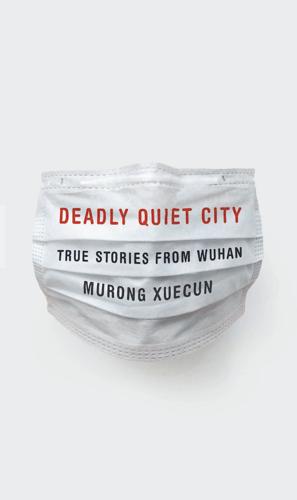
Deadly Quiet City: True Stories From Wuhan
by
Murong Xuecun
Published 7 Mar 2023
His vehicle is broken-down, his clothes are wretched; even his face mask is tattered, as if he’d been wearing it for many days. Feeling sick at heart, Zhang Zhan gives him a brand-new one. ‘These people in the lowest level of society are truly pitiful,’ she sighs. Like Fang Bin, Chen Qiushi, Li Zehua, Fang Fang and others, Zhang Zhan is called a ‘citizen journalist’. This appellation is more complex than the words suggest. Citizen journalist implies true reporting, standing with the people, and at the same time a kind of quiet rebellion. During Wuhan’s lockdown, information too was locked down; people could only watch the government bragging, unable to learn how people were actually coping in Wuhan.
…
Beijing’s censors issue instructions to Chinese media on how to report Li’s death. Chen Qiushi, a lawyer and citizen journalist whose video posts of overwhelmed hospitals and distressed locals attracted millions of views, disappears. On 8 February, newspapers in China begin rewriting the Li Wenliang case, leaving out his interrogation and humiliation by the police. A popular hero is being moulded into a Party hero. On Sunday 9 February, Fang Bin, a businessman turned citizen journalist reporting from the heart of the epidemic, disappears. The next day, the WHO announces that henceforth the official name of the disease will be COVID-19, and SARS-CoV-2 for the virus that causes it.
…
You will hear them tell their own stories. I must admit that gathering the stories was no easy task. In China, searching for the truth can often be a criminal offence. Others went to Wuhan before me, at the most dangerous and difficult time, and we must remember their names: Fang Bin, Chen Qiushi, Li Zehua, Zhang Zhan. These citizen journalists tried everything in their quest for the truth, but all were soon arrested and silenced. While I was in Wuhan, I often thought, ‘what has happened to them could happen to me’ – held in a gloomy dungeon with no sunlight, locked up alone, constantly interrogated and subjected to torture and cruel treatment, then escorted to a court to hear an imposing judge proclaim my crimes.
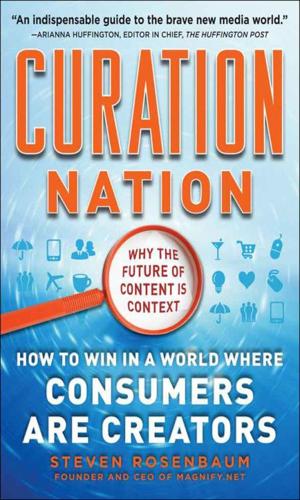
Curation Nation
by
Rosenbaum, Steven
Published 27 Jan 2011
Now this will come to video … A half hour of how-to TV that now costs X hundreds of thousands of dollars to produce can be done quite respectably—and probably with more life and immediacy—for a few thousand dollars. New content producers will pop up all over, just as they did in blogs, and now they can distribute their content freely thanks to BitTorrent. That is where I want to play.” Jarvis sees a future in which citizen journalists and consumer content creators become central figures in the creation and consumption of editorial material. What makes his perspective so rare, and refreshing, is that he had a full-on membership in the ruling media elite. For him to step outside and go from a TimeWarner–Condé Nast creator of MSM (mainstream media) to a blogger, a position of some less authority and power, is a sign of just how intoxicating the promise of personal publishing is.
…
The challenge is to find different ways to monetize links among media through advertising or micropayment or whatever, not subscription for exclusive content. In this environment, good journalism will survive, and even flourish, though most newspapers—except for a handful of the very best papers and magazines in every national market—probably will not. There will be more bottom-up, citizen journalism, which is great.” For Huffington and a whole host of other aggregator and curators, it comes down to where the law says they can link and share content without crossing the line into stealing. Attorney and Web publisher Dan Abrams of Mediaite.com explains, “When we link, we follow the ‘fair use’ ground rules, quoting no more than two paragraphs from another medium and then linking to the original story on the original site.
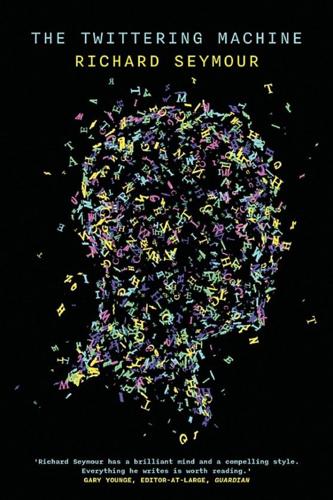
The Twittering Machine
by
Richard Seymour
Published 20 Aug 2019
And the ‘9/11 Truth’ communities were often trying to exercise the kinds of critical reflection that there is generally little opportunity for. But they poked holes where there were none and interpreted those that did exist tendentiously. They were convinced that there was some hidden, forbidden knowledge somewhere, which only citizen journalists could uncover. This conviction that ‘they’ are hiding something from us was the shared ground of all the ‘Truth’ groups. Specific theories, such as that the Pentagon was hit by a missile strike, were secondary speculations. Some of those used to being in power now feel embattled, and are beginning to collapse into the same logic.
…
And new technologies have only been as successful as they have been by positioning themselves as magical solutions. Not just to individual dilemmas, but to the bigger crises and dysfunctions of late capitalism. If mass media is a one-way information monopoly, turn to the feed, the blog, the podcast. If the news fails, turn to citizen journalism for ‘unfiltered’ news. If you’re underemployed, bid for jobs on TaskRabbit. If you’ve got little money but own a car, use it to make some spare money on the side. If you’re undervalued in life, bid for a share in microcelebrity. If politicians let you down, hold them to account on Twitter. If you suffer from a nameless hunger, keep scrolling.
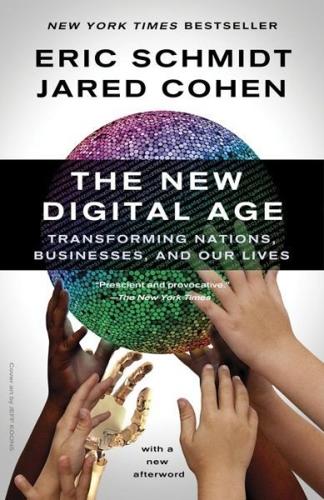
The New Digital Age: Transforming Nations, Businesses, and Our Lives
by
Eric Schmidt
and
Jared Cohen
Published 22 Apr 2013
News organizations will remain an important and integral part of society in a number of ways, but many outlets will not survive in their current form—and those that do survive will have adjusted their goals, methods and organizational structure to meet the changing demands of the new global public. As language barriers break down and cell towers rise, there will be no end to the number of new voices, potential sources, citizen journalists and amateur photographers looking to contribute. This is good: With so many news outlets scaling back their operations, particularly their international footprint, such outside contributors will be needed. The global audience benefits as well, through exposure to a greater range of issues and perspectives.
…
Ideally, the business of journalism will become less extractive and more collaborative; in a story about rising tide levels in Bangkok, instead of just quoting a Thai river-cruise operator, the newspaper would link its article to the man’s own news platform or personal live stream. Of course, the chance for error increases in the inclusion of new, untrained voices—many respected journalists today believe that a full-bodied embrace of citizen journalism is detrimental to the field, and their concerns are not unwarranted. Global connectivity will introduce entirely new contributors to the supply chain. One new subcategory to emerge will be a network of local technical encryption specialists, who deal exclusively in encryption keys. Their value for journalists would not be content or source related but instead would provide the necessary confidentiality mechanisms between parties.
…
Cain, Herman calendar reminders California camera phones Cameron, David Canada Carnegie Mellon Carvin, Andy celebrities, 2.1, 2.2 cell towers censorship, 5.1, 6.1 censorship-circumvention applications Central Asia centralized authority Chalabi, Ahmed charities Charity Navigator, 7.1, nts.1 Chavez, Hugo Chechnya, 3.1, 3.2 Chemical Weapons Convention Cherry, Steven, n Chery Automobiles Chile, 3.1, 6.1 China, 2.1, 3.1, 3.2, 3.3n, 141, 4.1, 6.1, 7.1 censorship in cyber attacks of, itr.1, 3.1, 3.2 “human-flesh search engines” in, 6.1, 6.2 intellectual property in Internet in, 3.1, 4.1 news covered up in shanzhai network in, 1.1 choices cholera Christian Science Monitor, 209 Church of Scientology CIA, 5.1, con.1 circulatory system Cisco citizen journalism citizen participation citizenship Clarke, Richard Clean-Slate Design of Resilient, Adaptive, Secure Hosts (CRASH) Clinton, Bill Clinton, Hillary, itr.1, 4.1 closed-circuit television (CCTV) cloud-based data storage, 2.1, 2.2, 2.3 cloud storage CNN Effect, n Coalition Provisional Authority (CPA) Code War Cohen, Rebecca Colao, Vittorio, 4.1, 4.2, 7.1 Cold War, 3.1, 6.1, 6.2 collaboration collective editing Colombia, 5.1, 7.1 commerce, 2.1, 6.1 commercial opportunities Commonwealth of Independent States (CIS) communications communication technologies advance of cultural breakthroughs and Comodohacker computer modeling, n computer theft computer viruses, in Syria computer worms confirmation bias conflict-related internal migration Congo, 1.1, nts.1 warlords in connectivity, itr.1, itr.2, itr.3, 1.1, 1.2, 1.3, 1.4, 2.1, con.1 and decline of warfare, 6.1, 6.2 education and and end of control exiles and and government maneuverability health and news enhanced by obstacles to reconstruction and, 7.1, 7.2 revolutions and, 4.1, 4.2, 4.3, 4.4, 4.5, 4.6 for states and citizens states’ power enhanced by terrorism aided by and WikiLeaks-like platforms Constantine, Larry, n Constitutional Democratic Rally copper cables copyright, 2.1, 2.2, 3.1 Copyright Act (1987) Copyright Treaty (1996) corporations, coping strategies for privacy and security concerns corruption Côte d’Ivoire counter-radicalization.
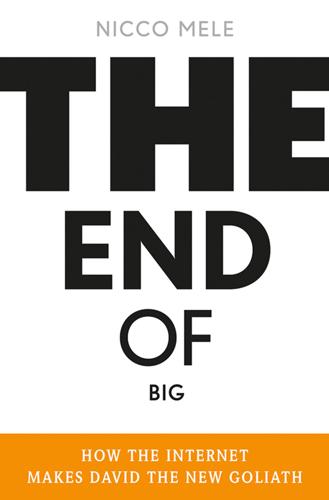
The End of Big: How the Internet Makes David the New Goliath
by
Nicco Mele
Published 14 Apr 2013
The stories were so intense that I had to stop reading them at night. I came away inspired by the heroic work of many reporters who had dug into issues of enormous local, national, and global significance. And I was surprised to discover that the quality and depth of every submission transcended the vast majority of the output of bloggers or citizen journalists. Professionalism in journalism might not be sexy, it might seem old-fashioned, but it does matter. Consider what happened in the small town of Bell, California. The town’s mayor paid himself ever-larger salaries—over $800,000 a year—and engaged in the most crooked, crony capitalism, handing out other oversize salaries to his friends.
…
The institutions of Big News in this country emerged over the course of more than a century, fostering a culture that rewards journalism at its best through institutions like the Goldsmith Prize. Radical connectivity, by contrast, does not come with these values built in. There is no Goldsmith Prize for Investigative Reporting by a Citizen Journalist. There is no “Sources Go Direct” Award for Courage and Honesty. On the contrary, we see an impetus, if anything, to turn journalistic writing into a commodity increasingly devoid of moral content. The Huffington Post, heralded as a successful online news business built on online advertising, uses a system called Blogsmith to manage and monitor publishing.
…
In recent years, the Guardian has offered a free blogging platform to online opinion leaders, hosted chatrooms and discussion boards, and emerged as an early convert to podcasting. The Guardian was also one of the first news organizations in the world to turn its Web site into an open platform for Web developers and aspiring citizen journalists everywhere, launching the guardian.co.uk application programming interface (API), allowing Web developers globally to use a wide range of Guardian content in their apps. Perhaps the Guardian’s most interesting innovations involve crowd-sourced investigative reporting. In 2009, more than 2 million pages of expense reports from members of Parliament in the U.K. were made available to the public.
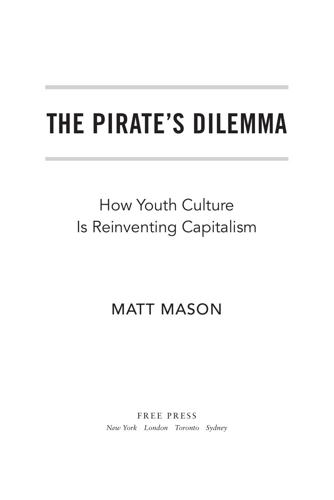
The Pirate's Dilemma: How Youth Culture Is Reinventing Capitalism
by
Matt Mason
In fact, they now have so much power around the world, they are deciding who gets to run the place. Citizens on Patrol Citizen journalists are countering the homogenization of the news media the same way pirate DJs counter bland radio playlists. The online newspaper OhmyNews was established in South Korea in 2000, with a full-time staff of seven people. Today it has a team of thirty-five thousand citizen journalists who provide 80 percent of its content, [FN: Citizen journalists for OhmyNews get paid if their story makes the front page of the site. Readers can also make voluntary payments to reporters.
…
“Forbidden things are always attractive,” subversive Chinese blogger Muzimei [FN: Muzimei is seen as being so radical and outspoken by the Chinese government, his name was once on their list of words banned from the Internet.] later said. “The politicians at the top introduce policies. The people at the bottom find a way around them.” Thanks to advances in technology, people everywhere are running rings around censors and regulators. From citizen journalists to bloggers and those producing and broadcasting their own online content, we are being persuaded away from conventional channels [FN: A survey conducted by Google in the United Kingdom in 2005 found that people spend an average of 164 minutes online every day, compared with just 148 minutes watching television.] by a generation of broadcasters with the pirate mentality.
…
Today there are political blogs left, right, and center, sports blogs, pet blogs, makeup blogs, gadget blogs, shopping blogs, and even blog blogs. [FN: The aforementioned Technorati is the biggest blog blog of them all, reporting on what the rest of the blogosphere is talking about. It saw its readership increase by more than 700 per- cent in 2005.] The mainstream news media are being undermined by bloggers and citizen journalists offering a wider variety of local and niche coverage. But they also are regularly beating the pros at the networks to some of the world's biggest stories. This is happening because journalism doesn't work quite as it should anymore. As bloggers dig deeper and wider, the mainstream news networks are becoming increasingly shallow.
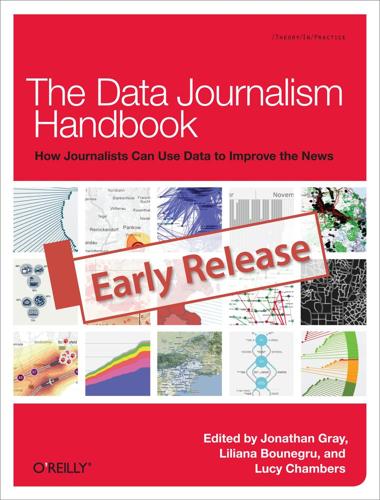
The Data Journalism Handbook
by
Jonathan Gray
,
Lucy Chambers
and
Liliana Bounegru
Published 9 May 2012
As well as larger media organizations such as the BBC, the Chicago Tribune, the Guardian, the Financial Times, Helsingin Sanomat, La Nación, Wall Street Journal, and the Zeit Online, we learn from smaller initiatives such as California Watch, Hack/HackersBuenos Aires, ProPublica, and a group of local Brazilian citizen-journalists called Friends of Januária. The Opportunity Gap The Opportunity Gap used never-before-released U.S. Department of Education civil rights data and showed that some states, like Florida, have levelled the field and offer rich and poor students roughly equal access to high-level courses, while other states, like Kansas, Maryland, and Oklahoma, offer less opportunity in districts with poorer families.
…
To summarize, stories like these become possible when you use data to produce evidence to test independently allegations being made by sources who may have their own agendas. These stories also are a good example of the necessity for strong public records laws; the reason the government requires hospitals to report this data is so that these kinds of analyses can be done, whether by government, academics, investigators, or even citizen journalists. The subject of these stories is important because it examines whether millions of dollars of public money is being spent properly. — Steve Doig, Walter Cronkite School of Journalism, Arizona State University Care Home Crisis A Financial Times investigation into the private care home industry exposed how some private equity investors turned elderly care into a profit machine and highlighted the deadly human costs of a business model that favored investment returns over good care.
…
The Friends of Januária citizen media project teaches key skills to citizens to turn them into data journalists After taking part in twelve workshops, some of the new citizen reporters from Januária began to demonstrate how this concept of accessing publicly available data in small towns can be put into practice. For example, Soraia Amorim, a 22 year-old citizen journalist, wrote a story about the number of doctors that are on the city payroll according to Federal Government data. However, she found that the official number did not correspond with the situation in the town. To write this piece, Soraia had access to health data, which is available online at the website of the SUS (Sistema Único de Saúde or Unique Health System), a federal program that provides free medical assistance to the Brazilian population.
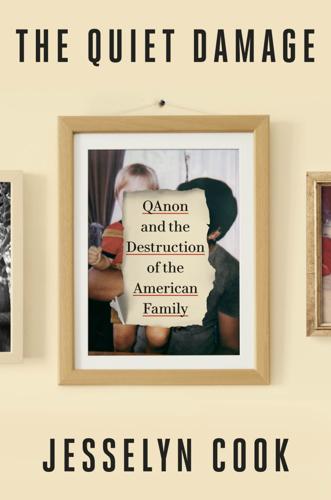
The Quiet Damage: QAnon and the Destruction of the American Family
by
Jesselyn Cook
Published 22 Jul 2024
Rioters had shouted it on the Capitol grounds after gleefully destroying film gear belonging to Associated Press journalists and fashioning a noose out of the cords. It was a message of pitchfork populism and a call to action: Boycott the establishment media in favor of QAnon’s independent online “citizen journalists.” Adam was numb. All alone in rural Tennessee, Emily was surrounded by nothing but farmland with little to no remaining real-world interaction. And after watching her cover her professional Facebook page in QAnon content about child sacrifice, he doubted that she even had many legal clients left.
…
In fact, it wasn’t Doris who found them, but almost the other way around: Each was recommended to her by Facebook or YouTube, which gradually nudged her along from alternative medicine spaces deeper into the fringe. To Dale, some, like Lusignan, appeared to be motivated by a genuine belief in the theories they touted, while others spewed unadulterated, money-grubbing disinformation trumpeted as gallant citizen journalism. In many cases, though, he detected a mix of both: a foundational conviction that some form of malevolence had occurred, and an increasing willingness to hyperbolize, fabricate, and lie as money flowed in. It was those people, the believers-turned-opportunists, who seemed the most compelling—and the most dangerous.
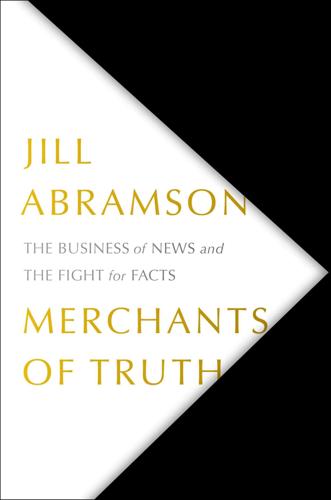
Merchants of Truth: The Business of News and the Fight for Facts
by
Jill Abramson
Published 5 Feb 2019
But in the ensuing five years, Smith, like Peretti, would transform his little company, building Vice on the back of the ascendancy of YouTube. The video site was overflowing with amateur uploads and bootlegged clips, and Smith saw an opportunity to mimic aspects of its alluring, uncut aesthetic while outclassing the citizen journalists with higher quality videos and stories told “from the edge.” To bring along a young audience, the stories would be told from street level, often in rarely shown sites in the Third World, by people with absolutely no training in the news. Could this be the transformational vision that advertisers had been seeking to reach the bullshit-detecting young audiences they so yearned to win over?
…
The Times had been setting the news agenda for so long that its primacy was taken for granted, especially by its journalists, who never dreamed the authority of their institution could be challenged by the new digital competitors, or by bloggers (Keller called them “bloggers in bathrobes”), or by so-called citizen journalists who were witnessing international events like the tsunami in Indonesia and writing about them in real time, or, ultimately, by readers using the new platforms of Google and Facebook. Insulated as it was, the Times convinced itself that although the mechanics of the industry were changing, the fact remained that “it wasn’t a story until it was in the Times.”
…
“Johnny,” 372, 376 Apprentice, The (TV show), 305 Arc (content management system), 267, 414 Arnett, Peter, 60 Ashbrooke, Nancy, 360, 361, 362, 363 Asimov, Eric, 189 Atlantic, 132, 163, 186, 187, 251, 252, 411 Atlantic Media, 343 Auletta, Ken, 399 Aurora, Colo., shooting, 134 Aurthur, Kate, 143 Awlaki, Anwar al-, 55 Ayensu, Nana, 326–27 Baffler, 177 Baltimore Sun, 4 Balz, Dan, 249, 405, 406, 411 Bandito (Post metrics tool), 266–67, 414 Bannon, Stephen K., 22, 287, 289, 306, 378, 387, 389 Trump campaign and, 289, 298 Baquet, Dean, 199, 211, 371, 402, 412, 421 and Abramson’s job offer to Gibson, 220–21 Abramson’s relationship with, 200, 215, 216, 220–21 China princelings story and, 207 Clinton investigation story and, 380–81 as contender for executive editor position, 195, 198, 199–200 in decision to hold off on Trump-Russia story, 383–85 named Times executive editor, 221 native advertising issue and, 215 personality of, 200–201 as Times managing editor, 201, 203 on Times’s mistakes in 2016 coverage, 375–76 use of “lie” in Trump stories approved by, 391 on use of Wikileaks documents, 381–82 White House team increased by, 390 Barbaro, Michael, 370–74, 375 Barboza, David, 205–6, 211 Barboza, Lynn, 206 Barghouty, Phoebe, 362, 363 Baron, Marty, 265, 266, 268, 308, 309, 377, 404, 407, 412 Abramson’s relationship with, 201 as Boston Globe editor, 198, 407 and Catholic pedophiles exposé, 255, 408 as contender for executive editor position, 195, 198, 199, 200 Freedom of the Press Award won by, 421 investigative reporting championed by, 408 named Post executive editor, 255 Post’s Trump investigations pushed by, 407–8 Prakash’s relationship with, 266 Snowden leak and, 260 Barrack, Tom, 316 Barron, Christopher, 345 Barstow, David, 205 Bartosevich, Cat, 332 BBC, Savile scandal at, 214 Becker, Jo, 233, 379 Bee, Samantha, 79 Behar, Joy, 288 Being Digital (Negroponte), 16 Being John Malkovich (film), 50, 51 Bell, Melissa, 241, 248, 249, 266 Post joined by, 237–38 Vox founded by, 239, 248 Bennett, Phil, 229 Bensinger, Ken, 143, 323 Berke, Richard, 201, 372 Berkshire Hathaway, 83 Bernstein, Carl, 225, 408, 409 Bernstein, Joseph, 299 Bethesda Softworks, 166 Bezos, Jeff, 404 building scale as goal of, 412 decline in print circulation seen as inevitable by, 267 as First Amendment defender, 257–58, 420–21 Fox News attacks on, 420 hands-off approach to news coverage adopted by, 418 libertarianism of, 258 national and international coverage expanded by, 263, 264 Post bought by, 1–2, 5, 257–61 Post’s local strategy abandoned by, 406 Post’s technology as focus of, 266, 411–13 and revitalization of news staff, 406, 407 Trump’s attacks on, 418–19, 426 wealth of, 259 Weymouth fired as Post’s editor by, 263 Woodward’s “14 points” memo to, 262–63 Bharat, Krishna, 28 Bianchi, Adam, 333 Biden, Jill, 39 Bieber, Justin, 55 Big Brother, 51 birther movement, 309 Black Lips, 155 Black Lives Matter, 111, 342 Blackpeopleloveus.com, 17, 19 Blaine, Kyle, 314, 315, 317 Blair, Jayson, 3, 67, 78, 79, 184, 385 Blake, Heidi, 345 BlogPOST, 248 blogs, bloggers, 72 growing influence of, 22–23, 94 print reporters’ disdain for, 238 Bloomberg Businessweek, 207, 350 Blue Origin, 258 Boehner, John, 352 “Bored at Work Network,” 18, 32, 37 Boston Globe, 4, 71, 81, 259 Baron as editor of, 198, 407 Catholic pedophilia exposé of, 255, 408 investigative reporting at, 408 Times’s purchase of, 65, 66 Times’s sale of, 219, 259 Boston Marathon bombing, 212 Bourdain, Anthony, 152 Boustany, Nora, 230 Boyd, Gerald, 78, 184, 199 Bradlee, Ben, 82, 84, 228, 262, 265, 268, 408 Bradley, David, 251 Brauchli, Marcus, 238 in exit from Wall Street Journal, 229 fusing of digital and print operations by, 232, 242 Hills’s conflict with, 254–55 increasing isolation of, 251 named Post executive editor, 228–29 Narisetti’s metrics focus defended by, 243 replaced as Post editor, 255 revenue-generating projects pushed by, 250 “Salongate” and, 240–41 Breitbart, Andrew, 21, 22, 290 background of, 283–84 Bannon and, 285, 287 death of, 288 Drudge Report and, 284, 285 Huffington Post cofounded by, 285 mainstream media viewed as enemy by, 285–86 and “making a thing a thing,” 287 on Trump’s entertainment value, 288 Breitbart News, 22, 289–90, 387 Bannon as head of, 289, 306 as epicenter of right-wing media, 290 exponential growth of, 283 fake ACORN videos on, 286–87 as platform for alt-right, 286 psychographics and, 286 in war with BuzzFeed, 306–7 Weinergate story of, 287 Brexit, 279 Brock, Greg, 401 Broder, David, 230, 376 Brown, Campbell, 428 Buchanan, Pat, 50 Buffett, Warren, 83, 88, 97, 257, 430 Bumiller, Elisabeth, 378 Burton, Summer Anne, 119 Bush (GW) administration: deregulation of for-profit schools under, 90–91 in lead-up to Iraq War, 78–79, 92, 95 Business Insider, 182, 312 BuzzBot, 34 BuzzFeed, 8, 16, 37, 47, 56, 142, 197, 219, 224, 242, 243, 265, 273, 280, 300, 329 on Abramson firing, 223 aliases used by staff of, 39 Ben Smith and, see Smith, Ben blue-black/white-gold dress story of, 145–46, 309 blurring of line between news and advertising at, 343 celebrity stories as mainstay of, 35, 39, 111 clickbait on, 139, 267 community-specific Facebook pages of, 337–38 data mining by, 109–10, 112–13, 330 “Dear Kitten” ad of, 122–23 distinction between ads and news stories as irrelevant to, 121–22, 144 early hires at, 36–39 early vulgarity of, 39 emotional charge of stories emphasized by, 111 ethical standards adopted by, 139 Facebook’s importance to, 103, 104, 107–108, 109, 132, 153, 202, 272, 276, 277, 280, 281, 295, 301, 302, 311, 329, 428 financial problems of, 301, 328, 336, 342, 343, 365 fundraising rounds by, 39–40, 103, 120, 129–30, 301, 328 growth of, 123 lawsuits against, 326, 327–28, 427 likability as primary criterion for, 35, 108–9, 121 “list” posts of, 117–18 machine learning and, 34–35, 109, 330–31 and “making a thing a thing,” 120, 287 mass deletions of posts from, 138–39, 164, 310 metrics software of, 113, 116, 144, 330–31 mixing of buzz and news at, 144–45 in move from aggregation to original reporting, 123–25 native advertising program of, 40–41, 120–23, 136–37, 337, 343 new business model of, 160 Nguyen hired by, 113 “No Haters” worldview of, 108–9 nostalgic posts on, 118 Obama native advertising campaign of, 136–37 Peretti’s initial concept for, 33–34 in pivot to video, 332, 336 plagiarized posts at, 138 preservation of informed public as new goal of, 139–40 quality news and, 10 quizzes as mainstay of, 119–20 reaction buttons introduced by, 302–3 “Red, White & Blacklisted” party of, 315–16 relatability as watchword of, 15–16 revenue growth at, 135 shareable content as goal of, 139, 246, 330 Silverman hired by, 311 Social Intelligence Report of, 110–11 Steele dossier published by, 323–24 steep learning curve of, 5 Stopera and, see Stopera, Matt super-sharers and, 111–12 as tastemaker, 120, 125 traditional news media and, 2, 4, 6, 275–76 traffic goals of, 117 Trump’s 2014 interview with, 305–6 2012 convention party hosted by, 135–36 valuation of, 365 verticals of, 123, 132 virality as organizing logic of, 35–36, 111–12, 113–19 Watts and, 35 BuzzFeed Brews, 137–38 BuzzFeed Motion Pictures, 301, 328–29, 334, 335 blurring of line between news and advertising at, 332 Facebook Ops department of, 335 Frank as head of, 331–32, 333–34, 336–37 BuzzFeed News: added to Facebook list of trusted sources, 317 Ben Smith hired as head of, 127–28 Ben Smith’s assembling of team for, 128–29, 130–31 Ben Smith’s expansion of, 141–43 as blindsided by Trump win, 321 Breitbart News war with, 306–7 buzz and, 144–45 Clinton campaign covered by, 318–19 cuts to, 336 expanded staff of, 301 expansion of “hard news” stories of, 140 Facebook “sentiment data” used by, 303–4 gender politics stories featured at, 140 Gibson and, 301 Heat Map of, 144 internet savvy of staff at, 143 investigative reporting by, 141, 301, 302, 345 as loss leader, 317 opinion pieces on, 342–43, 344–45 political reporters at, 305, 313 run-and-gun reporting style of, 133–34 Super Tuesday live stream of, 314–15 Times’s convention coverage collaboration with, 135–36 Trump campaign covered by, 302, 305–6, 313–14, 427 TV-style content added by, 301 Twitter morning show of, 343, 345 2012 election coverage of, 128–29, 131–33 2016 election coverage of, 138, 320 verticals of, 342–43 as wire service for social web, 134 BuzzFeed Partner Network, 110–11 Caliphate, The (podcast), 425 Callimachi, Rukmini, 425 Cambridge Analytica, 279, 298, 307, 400 Cantwell, Christopher, 354 “Capitalism and Schizophrenia” (Peretti), 15 Carleton University, 42, 44 Carr, David, 169–70, 183, 214, 224 Carroll, John S., 71–72, 199 Carroll, Wallace, 71 cats, internet and, 36 CBS News, 3–4, 60 Center for Investigative Reporting, 236 Cernovich, Mike, 283, 299, 324, 338 Chandler family, 225, 226 Charleston Gazette-Mail, 8 Charlottesville, Va., white nationalist rally in, 353–55 “Charlottesville: Race and Terror” (documentary), 354–55 Chartbeat, 243–47, 262, 266 Chasing Hillary (Chozick), 381 Chattanooga Times, 65 Chen, Steve, 53 Chozick, Amy, 318–19, 371, 381 Christmas in Darfur (documentary), 356 Chunn, Nancy, 78 Cillizza, Chris, 239, 266, 411, 4054 citizen journalists, 72 classified advertising: decline of, 26, 67, 89 Post’s reliance on, 26, 83, 89 Clayton, Tracy, 320 clickbait headlines, 280, 413, 414–16 BuzzFeed’s use of, 139, 267 Chartbeat and, 244 Post’s use of, 228, 267–68, 280, 406, 414–16 Times’s avoidance of, 74, 218 Clinton, Bill, Lewinsky scandal and, 239, 284 Clinton, Hillary, 132 Abramson and, 377–78 private email server used by, 178, 379–80 Times mistrusted by, 377–78 Clinton, Hillary, in 2016 election campaign, 287, 290, 299, 300, 315, 318, 322 Election Night and, 371 email investigation and, 377 Times’s coverage of, 378–79 Clinton Cash (Schweizer), 378–79 Clinton Foundation, 378 CNBC, 375 CNN, 54, 55, 60, 385–86, 411 travelogues of, 152 Trump’s attacks on, 325 Vice’s targeting of, 346, 348, 369 cognitive biases, 309–10 Cohen, Michael, 327 Cohn, Nate, 370 Coleman, Greg, 122 Coll, Steve, 86–87, 88, 90 Collectively, 165 Columbia Journalism Review, 290, 381, 389, 394 Columbia Record, 234 Comedy Central, 120 Comey, James, 377, 384, 392 Committee to Protect Journalists, 421 Confessore, Nick, 372, 374 Conrad, Deborah, 178 conspiracy theories: Facebook and, 296 internet and, 283 contagious media, 18, 30, 285 see also virality Contagious Media LLC, 33 Conway, Kellyanne, 339 Cook, Tim, 213 Cooper, Anderson, 315, 428 Cooper, Frank, 336, 337 Coppins, McKay, 130, 132, 305–7, 313 Coppola, Sofia, 51 Costa, Robert, 406, 407 Couric, Katie, 17 Cox, Chris, 32, 277 Craigslist, 26, 68, 86, 89 Cramer, Richard Ben, 130, 318, 322 Cramer, Ruby, 130, 313, 318–21, 322 Creators Project, 162–63 Creighton, Andrew, 364–65 CrowdTangle, 295, 304, 340 Cruz, Ted, 138 Daily (podcast), 373 Daily Beast, 362, 364 Daily Mail, 429 Daily Show, 79 Daily Wire, 429 Dairieh, Medyan, 174–75 data journalism, 290 data mining: as accepted part of online world, 271 BuzzFeed’s reliance on, 109–10, 112–13, 330 by Facebook, 271, 274, 278, 341 David, Laurie, 21 Davis, Charles, 164 Dawkins, Richard, 17 DealBook, 189–90, 375 “Dear Kitten” (Purina ad), 122–23 Death of Cool, The (McInnes), 369 Democratic National Committee, leaked documents of, 381–82 Democratic Party, hacked emails of, 319 Denton, Nick, 246–47 Denver Guardian, 300 Denver Post, 423–24 DeploraBall, 338 DeVigal, Andrew, 197 Devil’s Bargain (Green), 285 digital news media: aggregation sites in, 284 emotional resonance as touchstone of, 273, 275–76, 280 Facebook as platform for, 272–73 fact-checking and, 310 iPhone’s impact on, 32–33 low wages paid by, 175 news cycle and, see news cycle, speeding up of pivot to video of, 328–29, 347 print reporters’ disdain for, 238 pro-Trump wing of, 338–39 “social news” prioritized by, 275 targeting of readers by, 279–80, 281 traditional news media challenged by, 2, 4, 5, 6 vague job titles in, 239, 249 see also BuzzFeed; Vice Media Dillon, Robbie, 47–48 Dish, The (blog), 137 Dog House, 76 Dolnick, Sam, 193, 197, 205, 373, 394–96 Dowd, Maureen, 68, 75, 388, 411 Dow Jones, 67 Downie, Leonard, 7, 84, 89, 93, 98, 228, 229, 262 Drudge, Matt, 21, 30, 73, 239, 284 Drudge Report, 21, 73, 239, 284, 285 Dubuc, Nancy, 369 Duenes, Steve, 204 Duhaime-Ross, Arielle, 351 Dunham, Lena, 224 Dunlap, David, 396–97, 402 “Editing White Female” (Glasser), 223 Elder, Miriam, 141, 143 elections, U.S.: of 2004, 20, 21 of 2008, 98, 99, 126 of 2012, 128–29, 131–33, 135–37 elections, U.S., of 2016, 2 BuzzFeed coverage of, 138, 313–17, 320 divisiveness of, 281 Facebook and, 303 fake news and, 320, 322 Russian interference in, 326, 341–42, 381, 382, 383 see also Clinton, Hillary, in 2016 election campaign; Trump, Donald, in 2016 election campaign Emanuel, Ari, 178 Emergent, 310 Emerson Collective, 343 emotional charge, of news stories, 111 Entous, Adam, 406, 411 Esquire, 268 Eyebeam, 18–19 Facebook, 6, 31–32, 106, 108, 132, 204, 275, 415 accused of liberal bias, 292–93 Audience Optimization Tool of, 282 beginnings of, 95–96 BuzzFeed added to list of trusted sources of, 317 BuzzFeed’s community-specific pages on, 337–38 BuzzFeed’s reliance on, 103, 104, 132, 153, 272, 276, 277, 295, 301, 303–4, 311, 329, 428 Cambridge Analytica and, 279, 298 conspiracy theory stories on, 296 constantly changing algorithms of, 105–6, 271–72, 282, 290–91, 295, 302, 329, 332, 337 criticized for lack of control over content, 154 Custom Audiences tool of, 298 dangerous omnipotence of, 400 Dark Post tool of, 298–99 data mining by, 271, 274, 278, 341 data security issues of, 279, 342, 400 decline of sharing on, 282 demographic of, 106–7 digital advertising dominated by, 7, 27, 254, 367, 397, 404, 428 emotional resonance as touchstone for, 273 expanded reach of publishers’ posts on, 291 explosive growth of, 31, 104 fake news spread by, 277, 289, 295, 296–97, 317, 322, 427–28 growing influence of, 274, 280, 303, 309 human editors controversy at, 291–94, 295–96, 317 Instant Articles on, 267, 280–81, 329–30, 412 Like button of, 107–8, 109 live-video streaming tool of, 314 news content on, 124 in pivot to video, 329, 332 political ads on, 278 political polarization and, 273–74, 279–80, 281, 282–83, 312 Post and, 96–97, 232–33 priority of friends vs. publishers’ posts on, 276, 281–82 psychographics and, 278–79 publishers and, 272–73 ranking of stories on, 275–77 Russian fake news spread by, 289, 341–42, 420 “sentiment data” of, 303–5 “social contagion” experiment of, 303 supposed neutrality of, 274 targeted advertising on, 277–78, 298, 341 Facebook (cont.)

The Unwinding: An Inner History of the New America
by
George Packer
Published 4 Mar 2014
Everything changed for Breitbart on the August day in 2009—the year the Chicago Tribune eliminated its foreign desk and The Washington Post closed its three remaining domestic bureaus in New York, Chicago, and Los Angeles—when a young citizen journalist named James O’Keefe walked into his house with a batch of raw videos. They were the Abu Ghraib of the Great Society. They showed O’Keefe and another citizen journalist named Hannah Giles posing as a pimp and prostitute who wanted to set up a brothel using underage girls imported from El Salvador. James and Hannah brought their hidden camera into offices of the national left-wing organization ACORN, in Baltimore, New York, and other cities, where low-level staffers sat across the table and gave them useful advice on how to establish their business while making the federal tax code work in their favor.
…
Sam: Sam Walton 1994 Jeff Connaughton Silicon Valley 1999 Dean Price Tammy Thomas 2003 Institution Man (1): Colin Powell Jeff Connaughton PART II Dean Price Radish Queen: Alice Waters Tampa Silicon Valley 2008 Institution Man (2): Robert Rubin Jeff Connaughton Tammy Thomas Dean Price Just Business: Jay-Z Tampa PART III Jeff Connaughton 2010 Citizen Journalist: Andrew Breitbart Tampa Dean Price Tammy Thomas Tampa Prairie Populist: Elizabeth Warren Wall Street 2012 Silicon Valley Jeff Connaughton Tampa Tammy Thomas Dean Price Note A Note on Sources Acknowledgments Also by George Packer A Note About the Author Copyright PROLOGUE No one can say when the unwinding began—when the coil that held Americans together in its secure and sometimes stifling grip first gave way.
…
The story ended with a badly burned vagina.… OBAMA SIGNS OVERHAUL OF FINANCIAL SYSTEM … REPUBLICANS WIN HOUSE OF REPRESENTATIVES WITH VICTORIES NATIONWIDE … I never thought about love when I thought about home / I still owe money to the money to the money I owe / The floors are falling out from everybody I know CITIZEN JOURNALIST: ANDREW BREITBART In February 1969—when the CBS Evening News with Walter Cronkite, the most trusted man in America, was watched by twenty million viewers, or one in six households—a three-week-old baby boy of Irish descent was adopted in Los Angeles by a Jewish steakhouse owner and his banker wife, Gerald and Arlene Breitbart, and given the name Andrew.
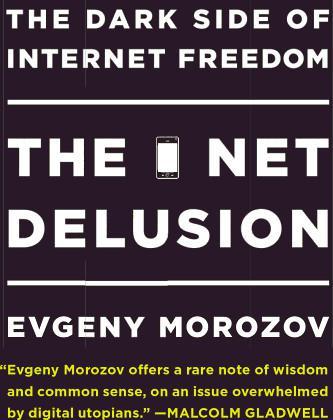
The Net Delusion: The Dark Side of Internet Freedom
by
Evgeny Morozov
Published 16 Nov 2010
G. “Social Motivation.” Annual Review of Psychology 42, no. 1 (1991): 377-399. Giridharadas, Anand. “‘Buycotting’: Boycotts Minus the Pain.” New York Times, October 10, 2009. Greer, C., and E. McLaughlin. “We Predict a Riot? Public Order Policing, New Media Environments and the Rise of the Citizen Journalist.” British Journal of Criminology (2010). Harkins, S. G., and R. E. Petty. “Effects of Task Difficulty and Task Uniqueness on Social Loafing.” Journal of Personality and Social Psychology 43, no. 6 (1982): 1214-1229. Heil, Alan L. Voice of America: A History. New York: Columbia University Press, 2003.
…
Instead, it announced that it would select twenty Twitter users, ten Internet bloggers, thirty student journalists, five representatives from portal Internet sites, and five government officials to tour the wreckage by randomly picking them from among the applicants. But the South Korean government went one step further than the Chinese, allowing all participants to take photos and videos—a state-engineered triumph of citizen journalism. Their plans, however, may have been spoiled by the North Korean authorities, who were unbelievably quick to colonize the capitalist cyberspace as well. In August 2010 they took their anti-South propaganda campaign to Twitter, setting up an account—supposedly through their foreign supporters—meant to challenge the South Korean version of events a hundred forty characters at a time.
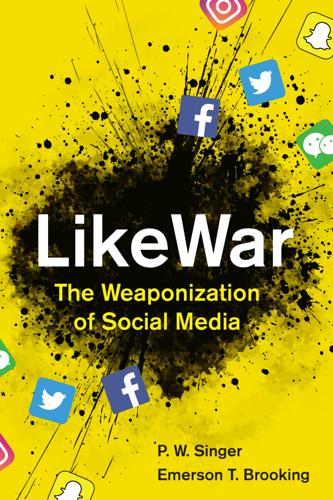
Likewar: The Weaponization of Social Media
by
Peter Warren Singer
and
Emerson T. Brooking
Published 15 Mar 2018
Browbeat (blog), Slate, October 20, 2016, http://www.slate.com/blogs/browbeat/2016/10/20/what_was_donald_trump_doing_during_the_bin_laden_raid.html. 54 “Justice has been done”: Macon Phillips, “Osama bin Laden Dead,” Home (blog), The White House, May 2, 2011, https://obamawhitehouse.archives.gov/blog/2011/05/02/osama-bin-laden-dead. 54 “now I’m the guy”: Sohaib Athar (@ReallyVirtual), “Uh oh, now I’m the guy who liveblogged the Osama raid without knowing it,” Twitter, May 1, 2011, 9:41 P.M., https://twitter.com/reallyvirtual/status/64912440353234944?lang=en. 54 Twitter follower count jumped: Steve Myers, “How 4 People and Their Social Network Turned an Unwitting Witness to bin Laden’s Death Into a Citizen Journalist,” Poynter, May 3, 2011, http://www.poynter.org/2011/how-4-people-their-social-network-turned-an-unwitting-witness-to-bin-ladens-death-into-a-citizen-journalist/130724/. 54 Local journalists sped: Mullen, “Whatever Happened to Guy?” 54 only way that Athar: Ibid. 54 “disintermediation”: Robert Gellman, “Disintermediation and the Internet,” Government Information Quarterly 13, no. 1 (1996): 1–8. 55 just 6 percent: “Internet Users (Per 100 People): Pakistan,” UNdata, http://data.un.org/Data.aspx?
…
Felina was soon curating one of the most popular social media channels in the state, with over half a million followers on Facebook and 100,000 on Twitter. This success, though, marked Felina as a target. A cartel offered a reward of 600,000 pesos (about $48,000 at the time) for the identities of the site’s anonymous administrators. It even posted its own message to the citizen journalists’ feed: “We’re coming very close to many of you . . . watch out felina.” Felina was undeterred. The threats attracted even more attention—the internet’s most powerful currency. Web traffic quadrupled, and fans from near and far celebrated their work. Inspired, Felina threw herself into a grander vision of transforming Tamaulipas.
…
“And I have dignity, it’s better than I live in humiliation.” For both its bravery and novelty, the group was awarded a 2015 International Press Freedom Award. A common thread runs through all of these stories. From favela life to cartel bloodlettings to civil wars, social media has erased the distinction between citizen, journalist, activist, and resistance fighter. Anyone with an internet connection can move seamlessly between these roles. Often, they can play them all at once. This communications revolution has been complemented by another shift, easier to miss but perhaps even more consequential. Just as the people who document and reveal secrets to the world have changed, so, too, have the people who traditionally work behind the scenes collecting and analyzing this information.
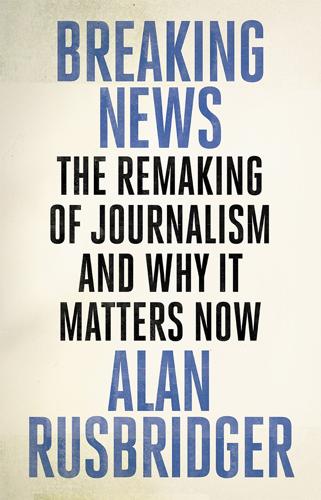
Breaking News: The Remaking of Journalism and Why It Matters Now
by
Alan Rusbridger
Published 14 Oct 2018
This was not a Bowling Alone world – the deracinated hollowed-out communities described by Robert Putnam 25 years later in America. There was bubbling social and institutional activity all around, and where we lacked the resources to cover it ourselves we recruited local stringers (today they might be called ‘citizen journalists’) to file accounts of discussion groups and scout sports days and charity baking mornings for the local hospital scanner. Every name sold a paper, as the news editor would remind us at regular intervals. We were duly encouraged to cram as many names as possible into our reports. Every picture sold a paper, too, so photographers knew to take group pictures and collect the names for the captions.
…
How dare some Californian hostess imagine she could undercut the work of proper paid commentaries by publishing the work of writers who were doing it for nothing? Those who believed this had contempt for large parts of what Web 2.0 represented. They would curl their lip as they spat out the phrase ‘citizen journalist’. ‘Would you like a “citizen brain surgeon” for a tumour?’ they sneered. ‘How about a “citizen dentist”?’ As if reading two books plus-a-bit-of-shorthand to ‘qualify’ as a journalist was the equivalent of six years of a neurosurgical residency on top of a four-year medical degree to be a brain surgeon.
…
Joseph ref1 Canary Wharf ref1, ref2, ref3 Canonbury ref1 Carlson, Tucker ref1 Carman, George (QC) ref1, ref2, ref3, ref4n Carney, Mark ref1 Carter, Graydon ref1 Carter-Ruck lawyers ref1 Carvin, Andy ref1 Catch Me If You Can (film) ref1 Caulfield, Mr Justice ref1 Cecil, Lord Robert ref1 censorship ref1, ref2, ref3 CERN ref1 challenge ref1, ref2, ref3, ref4 Champaign News Gazette (newspaper) ref1, ref2 Channel 4 (TV) ref1, ref2 Chaos Monkeys (Martínez) ref1, ref2 Chapman, Jessica ref1 charity ref1 Charles, Prince ref1 Chartbeat ref1 Chehadé, Fadi ref1 Chernin, Peter ref1 Chicago Online ref1 Chicago Sun-Times (news-paper) ref1 Chicago Tribune (newspaper) ref1, ref2 China ref1, ref2, ref3, ref4 Chippendale, Peter ref1 Chomsky, Noam ref1, ref2 Churchill, Prime Minister Sir Winston ref1, ref2, ref3 ‘churnalism’ ref1, ref2 CIA ref1 CiF (Comment is Free) ref1, ref2 CiF Belief ref1, ref2n circulation ref1, ref2, ref3 passim, ref1, ref2, ref3, ref4n bulk sales ref1, ref2, ref3, ref4, ref5, ref6, ref7n, ref8n decline ref1, ref2, ref3, ref4, ref5 gains ref1, ref2, ref3, ref4 international ref1, ref2, ref3, ref4, ref5 citizen journalists (stringers) ref1, ref2 Citizen Kane (film) ref1 City of London ref1 City University of New York (CUNY) ref1 Clapper, James ref1, ref2 Claridge’s hotel ref1, ref2 classified material ref1, ref2, ref3 Clegg, Nick (MP) ref1, ref2, ref3, ref4 Clerkenwell ref1 ‘click-through rate’ (CTR) ref1 clickbait ref1, ref2 climate change ref1, ref2, ref3, ref4, ref5, ref6, ref7, ref8, ref9, ref10n Clinton, President Bill ref1, ref2, ref3, ref4 Clinton, Hillary ref1, ref2, ref3, ref4, ref5 Clooney, George ref1 Cobain, Ian ref1 Cobbet, William ref1 Code of Practice ref1 Coile, Peter ref1 Colao, Vittori ref1 colour ref1, ref2, ref3, ref4, ref5, ref6n Colvin, Marie ref1 Comey, James ref1 Committee of Imperial Defence (UK) ref1 Committee to Protect Journalists (CPJ) ref1, ref2n ‘commodity news’ ref1 Common Purpose ref1 complexity ref1, ref2, ref3, ref4 composing room ref1, ref2 ComScore ref1, ref2n concentration camps ref1 Conn, David ref1 consent ref1 Conservative Party ref1, ref2, ref3, ref4, ref5, ref6, ref7, ref8, ref9, ref10, ref11, ref12, ref13 content management system ref1, ref2 convergence ref1 Coogan, Steve ref1 Cook, Tim ref1 Corn, David ref1 correction ref1, ref2 corruption ref1, ref2, ref3, ref4, ref5, ref6, ref7 Coulson, Andy ref1, ref2, ref3, ref4 Cox, Jo (MP) ref1 Craigslist ref1, ref2 The Creation of the Media (Starr) ref1 cricket ref1 Crossman, Richard ref1 crowdfunding ref1 crowdsourcing ref1, ref2, ref3, ref4, ref5, ref6 Crown Prosecution Service ref1, ref2 Crowther, Geoffrey ref1 Culture Media & Sports committee (UK) ref1 CUNY ref1 CVs ref1, ref2 cybercrime ref1 cyberspace ref1 Dacre, Paul ref1, ref2, ref3n, ref4n Dagens Nyheter (newspaper) ref1, ref2 Daily Dish ref1 Daily (iPad newspaper) ref1 Daily Mail & General Trust ref1 Daily News (newspaper) ref1 Daily Sketch (newspaper) ref1 Dangerous Estate (Williams) ref1 Danks, Melanie ref1, ref2 Danny (IT expert) ref1 data ref1, ref2, ref3, ref4, ref5 Davies, Nick ref1, ref2, ref3, ref4, ref5, ref6 passim, ref1, ref2, ref3, ref4n, ref5n Davis, David (MP) ref1, ref2 Dayton Ohio peace accord ref1 De Correspondent ref1, ref2 de Tocqueville, Alexis ref1 ‘dead-tree journalism’ ref1, ref2 Deadline (film) ref1 deadlines ref1 Dean, Malcolm ref1n ‘death knock’ ref1 Deedes, Lord Bill ref1, ref2 Deedes, Jeremy ref1 Deepwater Horizon ref1 defamation ref1, ref2 Defence Advisory (DA) Notice system ref1, ref2, ref3 deference ref1 Defoe, Daniel ref1, ref2 Delane, John ref1, ref2 Delaunay hotel ref1, ref2 Delingpole, James ref1, ref2 Deller, Jeremy ref1 democracy ref1, ref2, ref3, ref4, ref5, ref6, ref7, ref8, ref9, ref10, ref11, ref12, ref13 Democratic National Committee (DNC) ref1, ref2 Department of Justice (US) ref1 Der Spiegel (magazine) ref1, ref2, ref3 Desmond, Richard ref1, ref2, ref3, ref4, ref5, ref6, ref7, ref8n Despicable Me (film) ref1 Dewey, John ref1, ref2, ref3, ref4n Diamond, Bob ref1 Diana, Princess ref1 Diawara, Fatoumata ref1 Dickens, Charles ref1, ref2 Die Zeit (newspaper) ref1 Digg ref1 ‘Digital News Report’ (RISJ) ref1 Dixon, Hugo ref1 Dixon, Jeremy ref1, ref2n docu-tainment ref1, ref2 donations ref1, ref2 doorstep reporting ref1, ref2, ref3 Dorsey, Jack ref1 dot.com bubble ref1 Dowler, Milly ref1, ref2n Downie, Len ref1n Downing Street ref1, ref2 drinks culture ref1, ref2, ref3, ref4, ref5, ref6, ref7, ref8, ref9, ref10 Drudge ref1 drugs ref1, ref2, ref3, ref4 duty ref1, ref2, ref3, ref4, ref5, ref6 DVDs ref1 Dworkin, Ronald ref1, ref2 eBay ref1, ref2, ref3 Economist (magazine) ref1, ref2, ref3, ref4, ref5, ref6, ref7, ref8 Edelman Trust Barometer ref1n Edison, Thomas ref1 editorials ref1, ref2, ref3 Edmondson, Ian ref1 education ref1, ref2 Eisenstein, Elizabeth L. ref1 El País (newspaper) ref1, ref2, ref3, ref4 election (US 2016) ref1, ref2, ref3, ref4 Electoral Commission ref1 electric cars ref1 Electronic Information Service ref1 The Elements of Journalism (Kovach/Rosenstiel) ref1 Elizabeth II, Queen ref1 Ellingham Hall (Suffolk) ref1 Ellis, Michael (MP) ref1 Ellison, Sarah ref1 Ellsberg, Daniel ref1 Emap ref1 eMarketer ref1 Enders Analysis ref1, ref2, ref3, ref4 endowment ref1, ref2, ref3, ref4, ref5, ref6, ref7n Engelberg, Steve ref1 The Enlightenment ref1, ref2 Enron ref1 environment ref1, ref2, ref3, ref4, ref5 Enzensberger, Hans-Magnus ref1 Ernst & Young ref1 Espionage Act (1917) ref1 EternalBlue ref1n Euromyth ref1 Europe ref1, ref2, ref3, ref4, ref5 European Commission (EC) ref1 European Convention on Human Rights ref1, ref2 European Court of Human Rights (ECHR) ref1 European Court of Justice (ECJ) ref1, ref2, ref3 European (newspaper) ref1, ref2 European Union (EU) ref1, ref2, ref3, ref4, ref5 Euston Project ref1 Evans, Sir Harold ref1, ref2, ref3 Evans, Rob ref1, ref2 Evans, Timothy ref1, ref2n experimentation ref1, ref2, ref3, ref4, ref5 Facebook ref1, ref2, ref3, ref4 passim, ref1, ref2, ref3 passim, ref1, ref2 passim, ref1 passim, ref1 facts ref1, ref2, ref3, ref4, ref5, ref6, ref7, ref8, ref9, ref10, ref11, ref12, ref13, ref14 Fahrenthold, David ref1 Fairfax Media ref1, ref2, ref3 fake news see under falsehood Falconer, Lord ref1 Falkirk Herald (newspaper) ref1, ref2 falsehood ref1, ref2, ref3, ref4, ref5, ref6, ref7, ref8, ref9, ref10, ref11 fake news ref1, ref2, ref3, ref4, ref5, ref6, ref7, ref8, ref9, ref10, ref11, ref12 passim lies ref1, ref2, ref3, ref4, ref5, ref6, ref7, ref8 Farage, Nigel ref1, ref2 Farrar, Jeremy ref1 Farringdon Road ref1, ref2, ref3, ref4, ref5, ref6, ref7, ref8, ref9, ref10 FBI ref1, ref2, ref3, ref4 FedEx conditions of carriage ref1 Fedorcio, Dick ref1 Feinstein, Senator Diane ref1 female genital mutilation ref1, ref2 Ferguson, Niall ref1 Ferrer, Albert ref1 Fidler, Roger ref1 The Fifth Estate (film) ref1, ref2n Filloux, Frederic ref1 filter bubbles ref1, ref2, ref3, ref4, ref5, ref6 First Amendment (US) ref1, ref2, ref3, ref4n Fish4jobs ref1 Fitzsimons, Sheila ref1n, ref2n Flat Earth News (Davies) ref1 Fleet Street ref1, ref2, ref3, ref4, ref5 Flickr ref1, ref2, ref3 Folwell, Steve ref1 food production ref1, ref2 Forbes (magazine) ref1 Ford, John ref1, ref2 foreign correspondents ref1, ref2, ref3, ref4, ref5, ref6 Foreign Corrupt Practices Act (US 1977) ref1 Foreign Intelligence Surveillance Act (FISA) courts ref1 Foreign Office ref1 Forgan, Liz ref1, ref2 fossil fuels ref1 Fourth Estate ref1 Fox TV ref1, ref2, ref3, ref4, ref5, ref6, ref6 Frankel, Max ref1 Frankfurter Allgemeine Zeitung (newspaper) ref1 free newspapers ref1, ref2, ref3, ref4, ref5, ref6, ref7, ref8 free press ref1, ref2, ref3, ref4, ref5, ref6, ref7, ref8, ref9 free speech ref1, ref2, ref3, ref4, ref5, ref6, ref7, ref8, ref9 freebies ref1, ref2, ref3 Freedland, Jonathan ref1, ref2 Freedom Act (2015) ref1 Friedman, Thomas ref1 Friendly, Fred ref1 G4S security guards ref1, ref2n G-20 protests (2009) ref1 Gaddafi, Muammar ref1 GAFAT companies ref1, ref2 Gallagher, Tony ref1 Gaskell, John ref1 Gates, Bill ref1 GCHQ ref1, ref2, ref3, ref4, ref5, ref6, ref7, ref8n Geary, Joanna ref1 Gehry, Frank ref1 Gellman, Barton ref1 Gentleman, Amelia ref1 George III, King ref1 germ (virus) ref1 Germany ref1, ref2 Gibson, Janine ref1, ref2, ref3, ref4, ref5, ref6, ref7 Gillespie, Fulton ref1 Gillmor, Dan ref1, ref2, ref3n Glaxo Smith Kline (GSK) ref1 Gledhill, Ruth ref1 Glocer, Tom ref1 Glover, Stephen ref1, ref2, ref3n, ref4n Goldacre, Ben ref1, ref2n Goldman, William ref1, ref2 Goldman Sachs ref1, ref2 Good, Jennifer ref1 Goodale, James ref1 Goodman, Clive ref1, ref2 Goodman, Elinor ref1 Google ref1, ref2, ref3, ref4, ref5, ref6, ref7, ref8, ref9, ref10, ref11, ref12 passim, ref1, ref2 Goranzon, Anders ref1 Gordon, David ref1, ref2, ref3n Gordon, Michael ref1 Gore, Vice President Al ref1 Gorwa, Robert ref1 Gove, Michael ref1 Gowers, Andrew ref1 Graham, Don ref1, ref2 Graham, James ref1 Graham, Katherine (Kay) ref1, ref2, ref3 Granada TV ref1, ref2 Grant, Hugh ref1 Gray, Charles (QC) ref1, ref2, ref3n Great Barrier Reef ref1 Great Integration ref1 Greenslade, Roy ref1, ref2, ref3n Greenwald, Glenn ref1, ref2, ref3, ref4, ref5, ref6, ref7, ref8 Greer, Ian ref1 Guardian Australia ref1 Guardian Cities ref1 Guardian Media Group (GMG) ref1, ref2, ref3, ref4, ref5, ref6, ref7, ref8, ref9, ref10, ref11n, ref12n Board ref1, ref2, ref3, ref4, ref5, ref6, ref7, ref8n, ref9n Guardian News and Media (GNM) ref1, ref2n Guardian Unlimited ref1, ref2, ref3, ref4, ref5, ref6, ref7, ref8, ref9, ref10n Gulliver, Stuart ref1, ref2 gun control ref1 Gurfein, Judge Murray ref1 GUS retail group ref1 Gutenberg, Johannes ref1, ref2, ref3, ref4 Haaretz (newspaper) ref1 Hack Attack (Davies) ref1, ref2 Hacked Off ref1 Hagel, John ref1 Haig, General Al ref1, ref2 Hamilton, Neil (MP) ref1, ref2, ref3n Hankey, Sir Maurice ref1 Hanks, Tom ref1 Hansard ref1, ref2 hard knocks, school of ref1, ref2 Harding, James ref1 Harford, Tim ref1 Harlow Technical College ref1 Harris, Wendy ref1 Hartwell, Lord ref1 Hastings, Max ref1, ref2, ref3n Hayden, Michael V. ref1 Hayden, Teresa Nielsen ref1 Hayley, Sir William ref1 Hazlitt, William ref1, ref2 Hearst, William Randolph ref1, ref2 Henry, Georgina ref1, ref2 Henry Jackson Society ref1 Herald Sun (newspaper) ref1 Here Comes Everybody (Shirky) ref1 Hetherington, Alistair ref1, ref2 Hewlett, Steve ref1 Heywood, Jeremy ref1, ref2 Higgins, Eliot ref1 High Court ref1, ref2, ref3, ref4 Hillsborough disaster (1989) ref1, ref2, ref3n Hinton, Les ref1, ref2, ref3, ref4 Hirsch, Fred ref1, ref2, ref3n Hislop, Ian ref1 HMRC ref1 Hoare, Sean ref1, ref2 Hodgson, Godfrey ref1 Hoffman, Dustin ref1, ref2 Hoffman, Reid ref1, ref2 Holder, Eric ref1 Hollywood ref1 Home Affairs committee (UK) ref1 Home Office ref1 The Home Organist (magazine) ref1 Hong Kong ref1 Hooper, David ref1 Hopkins, Nick ref1 Horowitz, Ami ref1 Horrie, Chris ref1 Hotel Bristol (Villars) ref1, ref2 HotWired ref1 House of Commons ref1, ref2, ref3, ref4 House of Lords ref1, ref2 Houston, Robin ref1 How to Spend It (magazine) ref1 HSBC ref1, ref2, ref3 Huffington, Arianna ref1, ref2n Huffington, Michael ref1 Huffington Post ref1, ref2, ref3, ref4, ref5n Human Genome Project ref1 Human Rights Act (1998) ref1, ref2, ref3, ref4n Humanity United ref1 Hunt, Henry ref1 Hutton report (2004) ref1 ‘idea agora’ ref1 i-escape ref1 Iliffe of Yattendon, Lord ref1 Imanuelsen, Peter ref1 immigration ref1, ref2, ref3, ref4, ref5, ref6n Independent Press Standards Organisation (IPSO) ref1, ref2, ref3, ref4 Independent on Sunday (newspaper) ref1 Indonesia ref1 InFacts ref1 ‘influence model’ ref1 Infomediary ref1 information chaos ref1, ref2, ref3, ref4, ref5, ref6 Information Commissioner’s Office (ICO) ref1 ‘information superhighway’ ref1, ref2, ref3 Ingrams, Richard ref1 injunctions ref1, ref2, ref3, ref4, ref5 Ink (Graham) ref1 Inkster, Nigel ref1 ‘innovation blindness’ ref1 Instagram ref1 integrated model ref1 integrity ref1 Intelligence Community programmes (US) ref1 ‘intelligence porn’ ref1 Intelligence and Security committee (UK) ref1, ref2 Intercept ref1 The Internet for Dummies (series) ref1 Internet Explorer ref1 intrusion ref1 investigative journalism ref1, ref2, ref3, ref4, ref5, ref6, ref7, ref8, ref9, ref10n Investigatory Powers Act (2016) (UK) ref1 Investigatory Powers Tribunal (IPT) (UK) ref1, ref2 ‘invisible mending’ ref1 iPad ref1, ref2, ref3, ref4 iPhone ref1, ref2 iPlayer ref1 IRA ref1, ref2 Iran ref1, ref2 Iraq wars ref1, ref2, ref3, ref4, ref5, ref6, ref7, ref8 Ireland ref1 Irish Independent (newspaper) ref1, ref2 Irish Times (newspaper) ref1 Irons, Jeremy ref1 Isaacson, Walter ref1 iTunes ref1 ITV ref1, ref2 James, Clive ref1 James, Erwin ref1 Jarvis, Jeff ref1, ref2, ref3 Jay, Peter ref1 Jenkins, Simon ref1, ref2 Jersey ref1 Jobs, Steve ref1 Johnson, Boris (MP) ref1, ref2 Johnson, Graham ref1 Johnston Press Ltd ref1n Jonathan of Arabia (TV) ref1 Jones, George ref1 Joseph Rowntree Foundation ref1 journalism accountability ref1, ref2 dead-tree ref1, ref2 investigative ref1, ref2, ref3, ref4, ref5, ref6, ref7, ref8, ref9, ref10n seven deadly sins ref1n traditional ref1, ref2, ref3, ref4, ref5 training ref1, ref2, ref3, ref4 Jowell, Tessa ref1 Judicial Redress Act (2016) ref1 Junius ref1 ‘junk news’ ref1 Jupiter Research ref1 Kaplan Educational publishing ref1 Katine (Uganda) ref1 Katz, Ian ref1, ref2, ref3, ref4, ref5, ref6n Kaufer, Stephen ref1 Keller, Bill ref1, ref2, ref3 Kelner, Simon ref1, ref2, ref3, ref4, ref5n Kenya ref1, ref2 ‘keyword pages’ ref1 Khatchadourian, Raffi ref1 King, Dave ref1, ref2 King’s College, London ref1 Kings Place offices ref1, ref2, ref3, ref4, ref5 Kinsley, Michael ref1 Kirwan, Peter ref1 Knight Ridder ref1, ref2 Knopfler, Mark ref1 Kovach, Bill ref1 Krauze, Andre ref1 Kushner, Jared ref1 La Repubblica (newspaper) ref1 Laborde, Jean-Paul ref1 Labour Party ref1, ref2, ref3, ref4, ref5, ref6, ref7 Lamb, Larry ref1 Lambert, Richard ref1 Lanchester, John ref1, ref2 Large Hadron Collider ref1 Larson, Jeff ref1 Law Commission (UK) ref1 Lawrence, Felicity ref1 Lawson, Dominic ref1 lawyers ref1n Le Monde (newspaper) ref1, ref2 Leave campaign group ref1 Lebedev, Alexander ref1, ref2n Lebedev, Evgeny ref1n legacy media ref1 legality ref1 Lehman Brothers ref1, ref2 Leigh, David ref1, ref2 Leipzig, mayor of ref1 Lelyveld, Joseph ref1 Leonard, Joe ref1 letters ref1, ref2, ref3, ref4, ref5 newsletters ref1, ref2, ref3 readers’ ref1, ref2, ref3, ref4, ref5, ref6, ref7, ref8, ref9 Leveson, Lord Justice Brian ref1, ref2, ref3n Leveson Inquiry ref1, ref2, ref3, ref4, ref5, ref6, ref7, ref8n Levin, Bernard ref1, ref2n Lewinsky, Monica ref1 Lewis, Paul ref1, ref2, ref3 Lewis, Will ref1 libel actions ref1, ref2, ref3, ref4, ref5, ref6, ref7n, ref8n, ref9n libel laws ref1, ref2 Liberal Democrat party ref1, ref2 Liberty ref1 Liberty and Security in a Changing World (2013 report) ref1 lies see under falsehood lighthouse model ref1, ref2 LinkedIn ref1, ref2, ref3 links ref1, ref2, ref3, ref4, ref5, ref6, ref7, ref8, ref9, ref10n Linotype machine ref1, ref2, ref3 Linux ref1 Lippmann, Walter ref1 Littlewoods ref1 Lloyd, John ref1 Lloyds Bank ref1 Local Government Act (1972) ref1 Local World Ltd ref1, ref2, ref3n London Daily News (newspaper) ref1 London Evening Standard (newspaper) ref1 London Review of Books ref1, ref2 London School of Economics ref1n Lonely Planet ref1 ‘long tail’, theory of ref1 Los Angeles Times (newspaper) ref1, ref2, ref3, ref4 Lowry, L.S. ref1, ref2n loyalty scheme ref1 Ludgate Circus ref1 Ludlow machine ref1, ref2 Luxx (magazine) ref1 Luyendijk, Joris ref1 MacAskill, Ewen ref1, ref2, ref3 McCabe, Douglas ref1 McCabe, Eamonn ref1 McCain, John ref1 McCall, Carolyn ref1, ref2, ref3 Macedonia ref1 MacKenzie, Kelvin ref1 McKibben, Bill ref1, ref2 McKillen, Paddy ref1 McKinsey & Co ref1, ref2, ref3, ref4 MacLennan, Murdoch ref1, ref2, ref3, ref4, ref5, ref6n Macron, President Emmanuel ref1 MacroWikinomics (Tapscott) ref1 MacTaggart lecture (2009) ref1 Mail Online ref1, ref2, ref3 Mainstream Media (MSM) ref1, ref2, ref3 Major, Prime Minister John ref1 The Making of the English Working Class (Thompson) ref1 Malmo ref1 Manchester Evening News (MEN) (newspaper) ref1, ref2, ref3, ref4n Manchester Guardian (newspaper) ref1, ref2, ref3, ref4 Mandelson, Peter (MP) ref1 Manning, Chelsea ref1, ref2, ref3 Marks, Vic ref1 Marland, Caroline ref1 ‘marmalade dropper’ ref1, ref2n Martínez, Antonio García ref1, ref2 Mashable ref1, ref2 ‘The Masque of Anarchy’ (poem) ref1 Massachusetts Institute of Technology ref1 Match.com ref1 Mauro, Ezio ref1 Maxwell, Robert ref1, ref2, ref3, ref4, ref5, ref6n May Corporation Ltd ref1 May, Prime Minister Theresa ref1, ref2, ref3 Mayes, Ian ref1, ref2 Mead/Lexis ref1 Medejski, John ref1 Media Guardian ref1 media law ref1 media section ref1 Media Show (radio) ref1 Media Standards Trust (MST) ref1 Meeker, Mary ref1 Melbourne, Florida ref1, ref2 Merkel, Chancellor Angela ref1 Metcalfe, Jane ref1 metrics ref1, ref2, ref3, ref4, ref5, ref6, ref7, ref8 Metro (newspaper) ref1, ref2, ref3n Meyer, Philip ref1, ref2 MI5 ref1, ref2, ref3, ref4, ref5, ref6n MI6 ref1, ref2, ref3, ref4, ref5, ref6, ref7, ref8n Miami Herald (newspaper) ref1 Michelin tyres ref1 Microsoft ref1, ref2, ref3, ref4 Middle East ref1, ref2, ref3, ref4, ref5, ref6, ref7 ‘middle market’ ref1 Middleton, Julia ref1 migrant workers ref1, ref2, ref3, ref4 Miliband, Ed (MP) ref1 Miliband, Ralph ref1, ref2 Mill, John Stuart ref1 Miller, Andrew ref1n, ref2n Miller, Sienna ref1 Milton, John ref1, ref2, ref3 Miranda, David ref1, ref2 Mirror Group Newspapers ref1, ref2, ref3, ref4, ref5 mobile devices ref1, ref2, ref3, ref4, ref5, ref6, ref7 moderation ref1, ref2, ref3, ref4, ref5 Monaco ref1 Monbiot, George ref1 monitoring ref1 Monsanto ref1 Moore, Charles ref1, ref2, ref3 Moore, Michael ref1 Moran, Chris ref1 Morgan, Daniel ref1 Morgan, Piers ref1 Morgan Stanley ref1 morning conference ref1, ref2, ref3, ref4, ref5, ref6n Morozov, Evgeny ref1 Moses, Sir Alan ref1 Mossberg, Walt ref1 Mother Jones (magazine) ref1 Movable Type ref1 Mowatt, Roger ref1 Mowlam, Mo (MP) ref1, ref2n MPs ref1, ref2, ref3, ref4, ref5, ref6, ref7, ref8, ref9 MSN ref1 Mubenga, Jimmy ref1, ref2 Mugabe, President Robert ref1 Mulcaire, Glenn ref1, ref2, ref3 Mumsnet ref1 Murdoch, James ref1, ref2, ref3, ref4, ref5 Murdoch, Rupert ref1, ref2, ref3, ref4, ref5, ref6, ref7, ref8, ref9, ref10, ref11 passim, ref1, ref2, ref3, ref4, ref5, ref6n Murdoch, Wendi ref1 Murdoch empire ref1, ref2, ref3, ref4, ref5, ref6, ref7, ref8, ref9, ref10, ref11, ref12, ref13, ref14, ref15, ref16n Murray, Douglas ref1 Murray, Scott ref1, ref2 Murrow, Edward R. ref1 Muslims ref1, ref2, ref3, ref4 Mutter, Alan ref1 mutualisation ref1, ref2, ref3 Myners, Paul ref1, ref2 MySpace ref1, ref2, ref3, ref4 National Security Agency (NSA) ref1, ref2, ref3, ref4, ref5, ref6, ref7, ref8, ref9, ref10 National Theatre ref1 National Union of Journalists ref1, ref2 Naughton, John ref1 NCND policy (never confirm nor deny) ref1 Negroponte, Nicholas ref1 Netherlands, Queen of the ref1 netiquette ref1 Netscape ref1, ref2 Neuberger, Lord ref1 Nevin, Charles ref1 New Republic (magazine) ref1 New Statesman (magazine) ref1, ref2, ref3, ref4, ref5 New York Observer (newspaper) ref1 New York offices ref1, ref2, ref3 New York Post (newspaper) ref1 New York Times v.
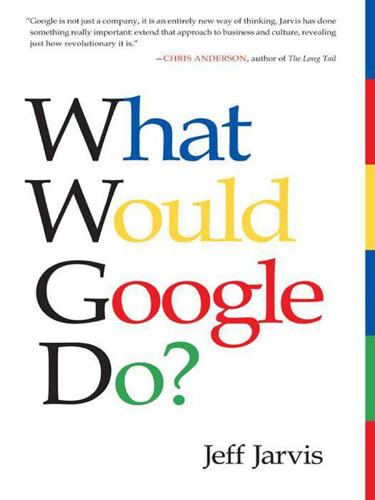
What Would Google Do?
by
Jeff Jarvis
Published 15 Feb 2009
In Google we trust. Public Welfare St. Google’s Hospital Google Mutual Insurance St. Google’s Hospital: The benefits of publicness Too often when I find myself in a discussion about citizen journalists, some member of the press’ curmudgeonly class—thinking himself quite clever and apparently believing he just thought of this himself—will growl at me: “Why should I trust a citizen journalist? You wouldn’t want a citizen surgeon, would you?” No, I wouldn’t. But I do want health care to open up to the Google age and take full advantage of the opportunities it presents to gather and share more data; to link patients with better treatment and information; to connect them with fellow patients in a community of shared experience and need; and to use the potential of collaborative tools and the open-source movement to advance medical science.
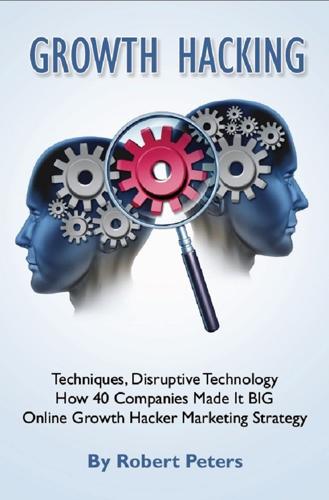
Growth Hacking Techniques, Disruptive Technology - How 40 Companies Made It BIG – Online Growth Hacker Marketing Strategy
by
Robert Peters
Published 18 May 2014
Even more importantly, the Twitter API was made easily available to developers so that there are more than 100,000 companion apps for the service from client readers to photo sharing services that enhance the user experience. A tweet can be sent from a 20-year-old cell phone as a text message. There is no need to sit down at a computer. For this reason, Twitter seems to readily turn members into citizen journalists during news events and natural disasters. This lends an unusual degree of social relevance to the community that has made it even more acceptable in the eyes of mainstream culture. For instance, much of the information that reached the west from the Arab Spring democracy movement (2010-2013) did so via Twitter.
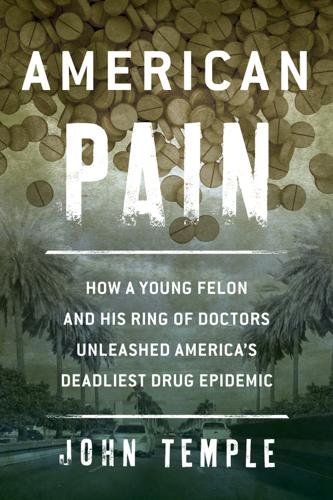
American Pain: How a Young Felon and His Ring of Doctors Unleashed America’s Deadliest Drug Epidemic
by
John Temple
Published 28 Sep 2015
Turned out, she was posting the videos on her YouTube account, narrating her adventures as she went: “And now we got two security guys that are gonna come and tell me to get off their lot, maybe, I don’t know.” She shot video of Tennessee and Kentucky license plates, tsk-tsking until someone tapped on her window. “Get away from my car. Get away from my car!” Later, Cafiero interviewed the woman for a segment on pain clinics, identifying her as a “citizen journalist.” The citizen journalist looked delighted to be in the studio, a big smile on her face, and told a story about being waylaid by American Pain guards. “One has a knife and the other has a set of keys in between his knuckles. He goes . . .” scowling and deepening her voice, “‘You don’t want any of this! You better come with us.’ ” One day at the clinic, some staffers who hadn’t seen Carmel Cafiero’s reports asked Derik about them.
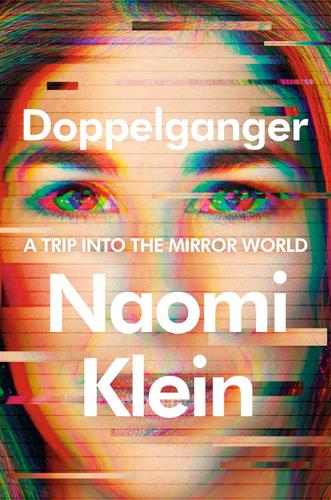
Doppelganger: A Trip Into the Mirror World
by
Naomi Klein
Published 11 Sep 2023
But something wasn’t adding up for her about this latest attack. She was shocked by the civilian deaths, particularly the children. Wolf wrote that the assault was a violation of Jewish values and the lessons of the Holocaust. Then she did something quite remarkable: she turned her Facebook page into a clearinghouse for “citizen journalists” to show the human face of the attack on Gaza. For a time, it became a vital source of information. She also wrote a widely circulated post: People are asking why I am taking this ‘side’. There are no sides. I mourn all victims. But every law of war and international law is being broken in the targeting of civilians in Gaza.
…
around 20 percent of the Palestinian population: “General Briefing: Palestinian Political Prisoners in Israeli Prisons,” Addameer Prisoner Support and Human Rights Association. According to a United Nations report: “Key Figures on the 2014 Hostilities,” United Nations Office for the Coordination of Humanitarian Affairs, June 23, 2015. “526”: “50 Days: More Than 500 Children: Facts and Figures on Fatalities in Gaza, Summer 2014,” B’Tselem, July 20, 2016. “citizen journalists”: L. Finch, “How a Jewish-American Author’s Facebook Page Became a Hub for Citizen Reporting on Gaza,” Global Voices, August 5, 2014. “People are asking”: Naomi Wolf, Facebook post, July 21, 2014. a typical headline: Shmuley Boteach, “Naomi Wolf’s Allegations of an Israeli Genocide Fuel Anti-Semitism,” Jerusalem Post, September 10, 2014.
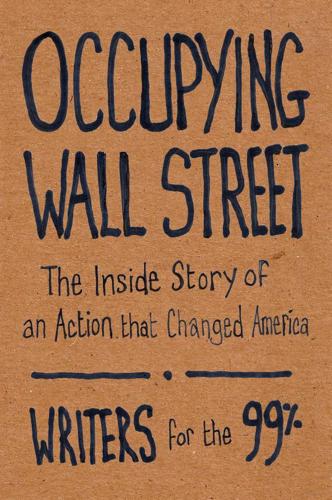
Occupying Wall Street: The Inside Story of an Action That Changed America
by
Writers For The 99%
Published 17 Dec 2011
Others started gathering their possessions. Many reported feeling disoriented by the NYPD’s use of loud sound devices. One videographer stood filming in the middle of Cedar Street, facing the park. “For your safety, we’re asking you to move,” police demanded. “I don’t see why I have to move,” said citizen journalist Barbara Ross. “I am not scared. I am not blocking anything. I know my rights.” For the next two hours, she filmed cops pepper spraying resisters, trashing library books, wrecking the park’s sacred space, and completely demolishing the twomonth encampment. Two female officers eventually forced Barbara behind barricades on Trinity Place, where she could no longer witness the destruction.
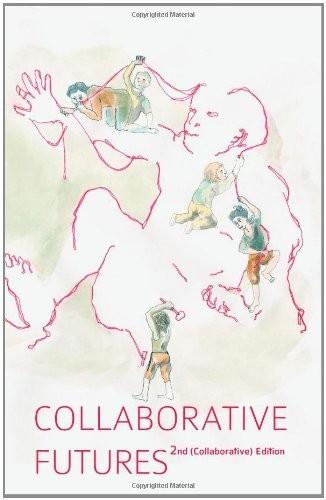
Collaborative Futures
by
Mike Linksvayer
,
Michael Mandiberg
and
Mushon Zer-Aviv
Published 24 Aug 2010
People in the region are becoming increasingly aware of the potentials offered by technology for social and political change. Artists, social workers and young intellectuals are resorting to information and communication venues in order to disseminate their work, gain wider reception and create more interaction. Despite the emergence of such highly connected communities of citizen journalists, cyber artists and digital activists, the techies who provide support and infrastructure to these communities, are still working in isolation, not really benefiting from this regional networking. While their social role is not always recognized by their communities and sometimes even by the techies themselves, they play a pivotal role, they are builders of communities, facilitators of communication between communities, they offer support, hand holding and transfer of skills and knowledge and they are transforming into gatekeepers to an increasing diversity of voices and information.
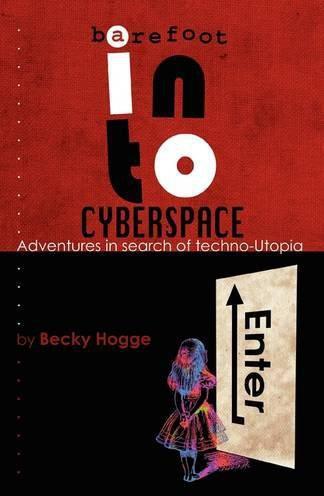
Barefoot Into Cyberspace: Adventures in Search of Techno-Utopia
by
Becky Hogge
,
Damien Morris
and
Christopher Scally
Published 26 Jul 2011
The man I’m waiting for today, Massachusetts-based hacker and scholar Ethan Zuckerman, is also a man who wants to take people outside their comfort zones and make them think. In 2004, along with journalist and China expert Rebecca MacKinnon, Ethan founded Global Voices, an international network of multilingual citizen journalists that works to get reporting from non-Western parts of the world more exposure on the web. While he was still a student at Williams College in Williamstown, Massachusetts, Ethan had co-founded the online community-hosting portal Tripod.com, which sold to Lycos in the late nineties. On graduation, Ethan spent a year in Ghana on a Fulbright scholarship before returning to the United States at the turn of the Millennium to found GeekCorps, a kind of VSO for geeks which sends people with technical skills to the developing world to help with computer-related projects.
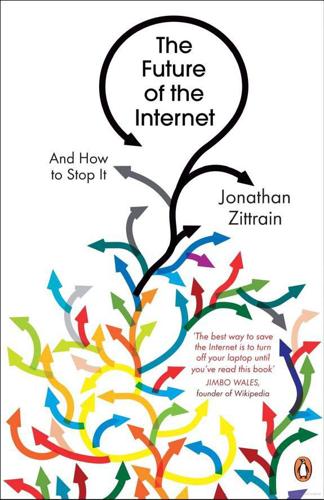
The Future of the Internet: And How to Stop It
by
Jonathan Zittrain
Published 27 May 2009
(To be sure, on many broadband networks this final link is shared among several unrelated subscribers, causing miniature tragedies of the commons as a file-sharing neighbor slows down the Internet performance for someone nearby trying to watch on-demand video.) The ability to tinker and experiment without watching a meter provides an important impetus to innovate; yesterday’s playful webcams on aquariums and cubicles have given rise to Internet-facilitated warehouse monitoring, citizen-journalist reporting from remote locations, and, as explained later in this book, even controversial experiments in a distributed neighborhood watch system where anyone can watch video streamed from a national border and report people who look like they are trying to cross it illegally7 However, an absence of measurement is starting to have generative drawbacks.
…
Many sites could benefit from asking people to participate with real identities known at least to the site, if not to the public at large. eBay, for one, would certainly profit by making it harder for people to shift among various ghost accounts. One could even imagine Wikipedia establishing a “fast track” for contributions if they were done with biometric assurance, just as South Korean citizen journalist newspaper OhmyNews keeps citizen identity numbers on file for the articles it publishes.130 These architectures protect one’s identity from the world at large while still making it much more difficult to produce multiple false “sock puppet” identities. When we participate in other walks of life—school, work, PTA meetings, and so on—we do so as ourselves, not wearing Groucho mustaches, and even if people do not know exactly who we are, they can recognize us from one meeting to the next.
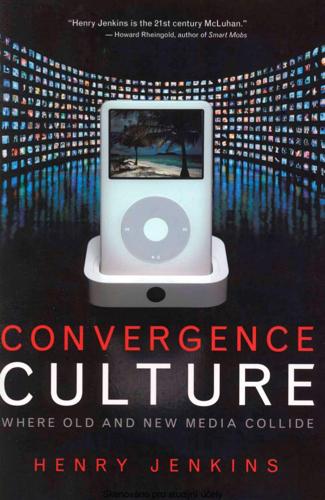
Convergence Culture: Where Old and New Media Collide
by
Henry Jenkins
Published 31 Jul 2006
We need to deliberate together. 50 Skenovano pro studijni ücely 239 Conclusion Democratizing Television? The Politics of Participation In A u g u s t 2005, former Democratic vice president Albert Gore helped to launch a new cable news network, Current. The network's stated goal was to encourage the active participation of young people as citizen journalists; viewers were intended not simply to consume C u r rent's programming but also to participate i n its production, selection, and distribution. A s Gore explained at a press conference i n late 2004, "We are about empowering this generation of young people i n the 18to-34 population to engage i n a dialogue of democracy and to tell their stories of what's going on i n their lives, i n the dominant m e d i u m of our time.
…
, 148 activism, 12 adbusting, 137 additive comprehension, 123, 125-128 adhocracies, 251, 254, 256-257 Adventures in Odyssey, 200 advertising, 7,12, 20, 22, 66 Advertising Age, 67-68 Aeon Flux, 101 affective economics, 20, 61-64, 70,126 affinity spaces, 177-180,183-185, 259 A i n ' t It C o o l N e w s , 55 Akira, 110 Albrecht, Chris, 138-139,149,154-155 Alice in Wonderland, 99 Alien, 114 A l Jazeera, 78 A l i a s , Marcia, 249 Alliance Talent Agency, 70 Almereyda, Michael, 151-152 A l p h a v i l l e , 228-232 Alphaville Herald, 229-231 alternate reality games, 124-127, 233 A m a z o n . c o m , 132, 200 American Booksellers Foundation for Free Expression, 196 A m e r i c a n Express, 69 American Idol, 19-20, 59-61, 63-64, 68, 70-71, 76-92,155 American Idol (personalities): C l a y A i k e n , 71, 84, 86, 89; Fantasia Barrino 91; Simon C o w e l l , 87-88, 90; Elton John, 91; Kimberley Locke, 84; Ruben Studdard, 71, 84-86, 89, 91 America Online, 229 America's Army, 74-79, 207 America's Funniest Home Videos, 142 amusement parks, 96 A n d e r s o n , C h r i s , 252 anime, 100-101,156-161 A n i m e Angels, 201 Annenberg Public P o l i c y Center, 225, 227 Antonucci, M i k e , 104 A O L , 86 A p p l e Box Productions, 64 A p p l e Computers, 79 A p p l e M u s i c Store, 253 Apprentice, The, 69-72, 84, 206-207 apprenticeship, 29, 238 appropriation, 18,148-149, 246 A r m s , P h i l , 192 Arrested Development, 253-254 Artificial Intelligence: A.I., 123,127 A s k w i t h , Ivan, 104, 253 assessment, 85 Associated Press, 213 astral projection, 193 A T & T Wireless, 59, 87-89, 91-92 A t o m F i l m s , 131,139, 149,154-156 295 Skenovâno pro studijni ücely 296 Index Babylon 5,117 Bagge, Peter, 93-94, 97, 101 banner ads, 65 Barnes & N o b l e , 110 Barney, Matthew, 129 Bartle, Richard, 160 Batman: Hong Kong, 111 Baudrillard, Jean, 98-99 Baynes, Arthur, 228 BBC, 242 Bear Steams, 71 "Beast," The, 123-125,127, 232 Being Digital, 5 Ben & Jerry's Ice C r e a m , 206 Benedek, Peter, 239 Benjamin, Walter, 223, 226 Benning, Sadie, 151 Berlant, Lauren, 222 Bert (Sesame Street), 1 Bertelsmann M e d i a W o r l d w i d e , 108 brand advocates, 73 brand communities, 79-80, 83, 88, 91, 216 brand extension, 69 brand tests, 79 branding, 20, 62-64, 68-72, 76, 91 brand loyalty, 72 brands, 22 Broadcasting & Cable, 89 Brock, Jack, 192 Brooker, W i l l , 151 Bruce Almighty, 200 Buckingham, D a v i d , 128, 227-228 B u d d h a , 98 Burnett, M a r k , 25, 32, 37, 42-43, 46^18, 51, 56, 69, 90, 215, 251 Burton, T i m , 115 Bush, George W., 206-207, 211-212, 216, 219, 221, 223, 230, 234 " B u s h i n 30 seconds" contest, 219-220 Business Week, 66 "Bert is E v i l , " 1-3 beta reading, 179-181 Bible, 122,193, 204 Big Brother, 51-53,109 Billboard, 61 Bilson, Danny, 97,105-106,123 Bin Laden, Osama, 221 Bioware, 162-164 BitTorrent, 251 Black Box Fallacy, 14-16, 24, 212 Black, Rebecca, 181 Blade Runner, 115,123 Blair Witch Project, The, 97,101-103, 115,119 bloggers/blogging/blogs, 212-218, 237, 241, 252 blue A m e r i c a , 235, 237, 239 B M W , 207 Bochco, Stephen, 116 Bollinger, D a n , 32-34, 51, 57 Bollywood, 4 Borders, 110 Boston, 45 brain d r a i n , 38 brain trusts, 38-40, cable television, 66 C a m p a i g n 2004, 22, 29, 208-239, 246 C a m p b e l l , Joseph, 98,120 Carey, M a r i a h , 61 Carlson, Tucker, 225, 227 Cartoon N e t w o r k , 132 Casablanca, 97-98,101 Cassidy, K y l e , 149 Castells, M a n u e l , 129 casuals, 74, 76-77, 81 CBS, 25, 36-37, 45-46, 48, 54, 57, 60, 211-213, 220, 225 cease-and-desist, 152,186,189 Celebrity Deathmatch, 148 Center for Deliberative Democracy, 235 Center for Information and Research on C i v i c Learning and Engagement, 223 C h a d w i c k , Paul, 101,111-113,125, 128 C h a n C h e n , 113 C h a n , E v a n , 124 C h a n , Jackie, 109 Skenováno pro studijní ucely Index Charlie's Angels, 108 cheating, 259 Cheney, Richard, 219, 230 Cheskin Research, 15 C h i c k - f i l - A , 200 Children's Television Workshop, 2 chilling effects.org, 188 ChillOne, 26, 28, 31-32, 34-35, 37, 39-40, 42-46, 48-51, 54-57 China, 108,110,112-113 Chomsky, N o a m , 247 C h o w Yun-Fat, 113 Christian Gamers G u i l d , 201 Christianity, 21-22, 98,100,119, 169-171,192-195,197-204 Christopher Little Literary Agency, 185 C h u n g , Peter, 101 Ciao Bella, 70 citizen, informed vs. monitorial, 208, 225-226, 258-259 citizen journalists, 240 Clarkson, Kelly, 61 "click through," 65 Clinton, W i l l i a m J., 219 Cloudmakers, 123,125,127, 232 C N N , 1-3,124,140,192, 225 Coca-Cola Company, 60, 68-69, 70, 73, 87-88, 91, 92, 207 co-creation, 105-107 code, 163 Cohen, Ben, 206 cokemusic.com, 72 Cold Mountain, 200 Cole, Jeanne, 150 collaborationism, 134,167, 169-170, 187 collaborative authorship, 96,108¬ 113 Collective Detective, 233 collective intelligence, 2, 4, 20, 22, 26-27, 29, 50, 52-54, 63, 95,100, 127, 129,170,184, 208, 226, 235, 245-247, 254 Colson, Charles, 201-202 Columbine, 192 C o m e d y Central, 224-225 comics, 14, 96,101-102,108-109, 111, 132,164, 249-250 commercial culture, 135 commodity, 27 commodity exploitation, 62-63 communal media, 245 Comparative M e d i a Studies program, 12, 68, 80, 85,151 complexity, 33, 94-95, 259 Concepción, Bienvenido, 143 Concrete, 101, 111 consensus, 86 consensus culture, 236 convergence, 2-8,10-12, 14-24, 26, 59, 64, 68, 83, 95,104,114,170, 208, 212, 220, 242 convergence, corporate, 18,109-110, 157, 259 convergence culture, 15, 21, 23,132, 137,176-177, 204, 212, 242, 247, 259-260, 248, 257 convergence, grassroots, 18, 57, 109-110, 136-137, 157, 215, 259 Coombe, Rosemary J., 189 Coors Brewing Company, 69 Cops, 132 copyright, 137-138,154,167,189-190, 248 Corliss, Richard, 127 "cosplay," 113-114 Counterstrike, 163 Cowboy Bebop, 101 Creative Artists Agency, 60, 67 Crest toothpaste, 70 critical pessimism, 247-248 critical utopianism, 247-248 Crossfire, 225 Crouching Tiger, Hidden Dragon, 109, 112-113 cult films, 97-98 cultural activator, 95 cultural attractor, 95 culture.
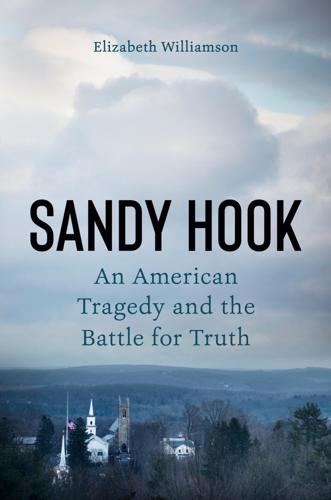
Sandy Hook: An American Tragedy and the Battle for Truth
by
Elizabeth Williamson
Published 8 Mar 2022
In order to move products like My Patriot Supply storable food, solar generators, Supernatural Silver, Real Red Pill, and Tropic Mind Power supplements, Jones and his “reporters” mined for viral content that fit his agenda. He urged his fans to get out there, “crowd-source,” and “investigate.” These “citizen journalists” did most of the work, if you could call it that, combing official reports of major events for “anomalies” that to them suggested official lying and cover-up. “I was kind of a governor on him when he went over the edge, saying like, ‘No, don’t do that,’ ” Kelly told me of her role when she was more involved in the business.
…
See also specific family members, including Pozner, Lenny Fancelli, Julie Jenkins, 432 Farid, Hany, 209–10, 422 Farrar, Kyle, 316, 317–18, 319, 322, 323 Farrar & Ball, 310, 314, 316–18, 324, 401, 412, 413 Federal Bureau of Investigation (FBI), 170–71, 220, 251, 252 Feinberg, Kenneth R., 52–53 Feinstein, Emily, 401 Fellowship of the Minds (blog), 106 Fetzer, James, 105–6, 115, 137, 138, 139, 147, 175–76, 193, 201, 202–3, 391–410, 412 First Amendment protections, 204–10, 314, 322, 350, 370–71, 423 First Baptist Church in Sutherland Springs, Texas, 326–27 Fontaine, Marcel, 309 Ford, Julian, 28 Forsman, Jennifer, 167–68, 172 Forward, 143–44 Fox News, 253, 286 Frank, Monte, 186, 188–90, 192, 200 Fredericks, Grant, 119–20 freedom of speech, 204–10, 333–36, 384–85, 428 Free Speech Systems, 271, 308, 320, 346 Friesen, Dan, 83–84, 90, 196, 294, 295, 432 G Gamble, Maya Guerra, 430 Gaston, Dan, 275 Gates, Bill, 371 Gay, Josephine, 235 Gay, Michele, 235, 338 Gentzkow, Matthew, 241 Gersh, Tanya, 346–47 Giuliani, Rudy, 433 globalism/globalists, 71, 72, 79, 115, 214, 258, 259, 261, 298 Gnandt, Greg, 8 Goebbels, Paul Joseph, 74 GoFundMe, 200 Goldman, Adam, 248 Google, 193, 206, 320, 374 Graham, Ginnie, 130–31, 132 Gravois, John, 397 “great replacement theory,” 74 Greene, Marjorie Taylor, 251 Grenier, Richard, 395 Gucciardi, Anthony, 268, 362 Gun Owners of America, 89 gun policy debate: and Congressional testimony of Sandy Hook families, 288–89; groundswell against gun violence, 308; and gun control legislation, 88, 89; and gun lobby, 88, 89; and Heslin, 288–90; Jones’s speculation about, 72, 73, 413–14; Lafferty’s work in, 329–30; and Obama administration, 153; and Parkland school shooting (2018), 308; and reactions to Sandy Hook massacre, 89; Ryan’s perspective on, 339; and universal background checks, 88; and Watt, 135 H Haas, Lori, 86 Halbig, Erik, 182–83 Halbig, Wolfgang: background of, 182–83; and Clinton, 274; donations solicited by, 164, 170; and Fetzer, 176; Frank on, 192; harrassment of Sandy Hook families, 183, 382; HONR’s efforts to combat, 193, 200; on identity of massacre survivor, 185, 186, 200, 382; inability to acknowledge errors, 427; on Infowars, 100–101, 138, 297; Johnson’s debate with, 177–80; lawsuit against, 410; in Newtown, 147–48, 184, 186–88; Pozner’s efforts to inform, 392; Pozner’s lawsuit against, 200, 302–4; and Pozner’s lawsuit against Fetzer, 404, 408–9, 410; profiting from conspiracy content, 180; public records campaign of, 181, 185–90; Sandy Hook families’ lawsuit against, 328, 332, 382; “Sandy Hook Justice” website, 100–101, 148; threats to dig up victims’ graves, 143; and Watt, 137 Hamman, Buckley, 210, 266 Hammond, Natalie, 5 Hannity, Sean, 253 Hao, Karen, 341–42 Harmony Square online game, 423–24 Hassinger, Cristina, 51–52 Hawley, Josh, 386–87, 434 Henson, Weldon, 268 Heslin, Neil: author’s tour of Newtown with, 7–8, 10, 26, 31–32; and conspiracy theorists, 287, 289, 372; on cradling Jesse’s body, 22–23, 284–85, 287, 296–97, 299, 310, 311, 334; and death of Jesse, 18; engagement of, 435–37; on Fairfield State Hospital, 12; and funeral for Jesse, 23, 24–26; grief of, 9–10, 287–88; and gun violence, 288–90; and immediate aftermath of massacre, 14–15, 17, 22; and Infowars, 287, 290, 296–97, 299, 301, 310, 414; and Jesse’s room, 372, 436–37; and Kelly’s interview with Jones, 283, 284–85, 287; Lanza’s father’s meeting with, 29–31; last day with Jesse, 13–14; lawsuit against Jones, 307, 309–12, 320, 325, 340, 369, 412, 429; search for meaning following massacre, 11; testifying before Congress, 288–89; on Trump, 437–38 Hill, Jessica, 33–34 Hill, Mark, 304 Hirono, Mazie K., 385–86 History on Trial (Lipstadt), 191 Hochsprung, Dawn Lafferty, 4–5, 51, 62, 63, 257, 328 Hockley, Dylan, 5 Hofstadter, Richard, 151 Hogg, David, 327, 363 Holder, Eric, 105 Holocaust deniers, 189, 190–92, 342–43, 344 HONR website: and Amazon, 201; combating hoaxers, 193, 194; and copyright/takedown notices, 199–200, 224, 239, 290, 304–6; establishment of, 171–72; and Infowars, 197; and Johnson, 175; mission of, 172, 444–45; and Mollygirl (troll), 229, 230; and Pozner’s lawsuit against Jones, 351; volunteers staffing, 173, 193 Hunt, Brendan, 103–4 I immigration rhetoric, 261–62 Independent Media Solidarity, 177, 226–27 Infowars: audience of, 91, 216, 239; and author’s interview with Jones, 366–67; and Bidondi, 185–86; and Branch Davidians, 75; and Capital insurrection of January 6, 2021, 433; and Chobani lawsuit, 278–80, 320; “citizen journalists” of, 81; claims massacre was a hoax, 83–84, 89–90, 111, 118, 120–22, 196, 198, 264–65, 311–12, 413–14; on Clinton, 243; college professors on, 113–15; content procured by, 196–97; on Cooper’s interview with Veronique, 118–20, 157, 196, 310, 311; and copyright/takedown notices, 197–98, 199, 200, 277, 290, 297–99; on coronavirus pandemic, 415; and day of Sandy Hook massacre, 71–72, 74, 82; deplatforming of, 374–75, 377, 379, 380; and Facebook, 342, 343, 345; founding of, 75–76, 358; on gun policy, 90; and Halbig, 101, 147, 180; headquarters of, 72, 266–67, 366–67; on Heslin’s last moments with Jesse’s body, 287, 290, 296–97, 299, 301, 310, 311, 334, 414; and Hogg, 327; internet traffic shaped by, 77–78, 197; and Johnson-Halbig debate, 177–80; Jones’s success with, 75–81; Kelly’s involvement in, 358–59; Lafferty targeted by, 330; lawsuits against, 309, 311, 313–14, 345–46, 347–52; in Newtown, 147–48, 184; and NSA Utah Data Center, 268–69; Obama as target of, 82–83; Owens’s employment with, 260–61, 265–66, 267–71, 291–92, 293–94; and Pakistan-massacre conspiracy, 196–97, 277, 302; and Parker’s press conference, 95–98, 118, 196, 198, 238–39, 267–68; and Parkland school shooting (2018), 308–9, 313–14; and Pizzagate video, 243, 249–50, 254–56, 277, 320; and Pozner, 77, 81, 121–22, 198–99; and presidential election of 2016, 271–73; and September 11, 2001, terrorist attacks, 78; and Shroyer, 286, 287, 290–97; and social media platforms, 345; store and product lines, 78–79, 81, 90, 201, 268, 307, 317, 360, 361, 370, 433; Tracy’s interview on, 111, 113–15; traffic of, 90, 91, 258, 265, 309; and Trump, 212–17; and Watson, 113–15; and We Need to Talk filmmakers, 177, 225; work culture of, 266–67, 270–71; and WWE model, 81 Inside the NRA (Powell), 88, 89 Instagram, 250 internet: bad actors on, 207–10; disinformation/misinformation of, 423–24; and First Amendment protections, 206–10; harm done by, 210; as medium of conspiracy theories, 160, 416, 417; search engines on, 193; and Section 230 protections, 205, 207, 422.
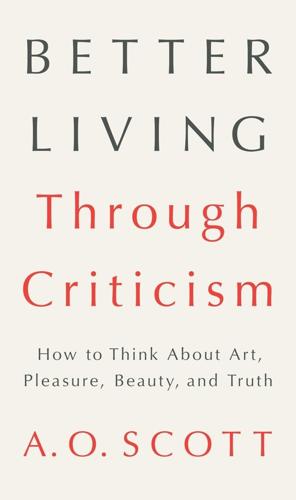
Better Living Through Criticism: How to Think About Art, Pleasure, Beauty, and Truth
by
A. O. Scott
Published 9 Feb 2016
The images that the antagonists project of one another are wearyingly familiar and at this point comically—or perhaps depressingly—distorted. An unwashed, sexually frustrated blogger is squirreled away in his mother’s basement, undermining the efforts of trained professionals who are, to reverse the image, lazy and entitled fat cats determined to guard their privilege from the brave and idealistic labor of citizen journalists. The hard work of thinking and writing is further imperiled by the quick, cheap, superficial trickery of aggregation and content farming. Or else the guardians and gatekeepers of the cultural elite have, at long last, been routed by an empowered and skeptical vox populi. But anyone who actually reads, including, presumably, the prophets and doomsayers who herald and bewail the rise of the new digital dispensation, knows that things are not so simple.
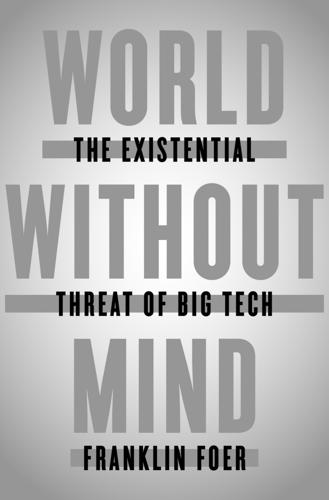
World Without Mind: The Existential Threat of Big Tech
by
Franklin Foer
Published 31 Aug 2017
During the early years of the Internet, theorists of technology aggressively celebrated amateurism. Elites had a chokehold on the country that prevented the masses from expressing their creativity. Clay Shirky described the pent-up genius as “cognitive surplus.” The Internet helped unleash this surplus—it allowed bloggers to express the truths that careerist pundits dared not speak; citizen journalists scored new scoops; Wikipedia soon trumped Britannica with its depth and range. The amateurs could produce such brilliance because of the purity of their passion. As Shirky wrote: “Amateurs are sometimes separated from professionals by skill, but always by motivation; the term itself derives from the Latin amare—‘to love.’
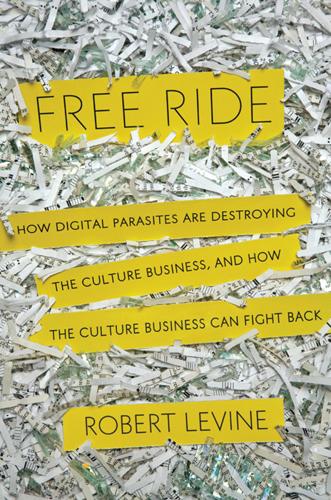
Free Ride
by
Robert Levine
Published 25 Oct 2011
Online publications that Twitter on a 24-7 schedule face the same difficulties, and even the inventive start-up Politico has said it makes most of its revenue on the print edition it distributes in Washington, D.C.14 At most online start-ups, any interest in journalistic innovation seems to come from the desire to cut costs, which is why more of them are experimenting with “citizen journalism” than, say, professionally shot video. For all the talk about how people now consume information differently, the real online revolution is in advertising. For more than a century, marketers funded content without caring much about it; they just needed a way to reach consumers. (Advertising without content was called junk mail and generally ignored.)
…
Rather than apply regular media economics to online publications, which would involve spending more money on reporting, most technology executives push traditional publications to adapt online economics: inexpensive ads and content that costs as little as possible. Their ideas for the future of journalism include citizen journalism, nonprofit-funded reporting, and various innovations based on publicly available data. But they don’t seem to involve many journalists. Few companies have done more to promote these ideas than Google, which has used the public discussion about the future of journalism to push its own priorities.
…
As the media executive and news business blogger Alan Mutter pointed out, U.S. newspapers now spend $4.4 billion a year on reporting, while nonprofit journalism institutions raised only $144 million over the last four.42 “The finding about that in general is that the content is great and the funding model is very unstable,” says Nicholas Lemann, dean of the Columbia University Graduate School of Journalism. “Then there are these experiments in crowdsourcing and other forms of social production, and my view is that they haven’t really delivered the goods.” Although nonprofit groups like the Knight Foundation have become enamored with citizen journalism projects, their track record has been uneven at best. A 2010 study by the Pew Research Center’s Project for Excellence in Journalism that examined the news “ecosystem” of Baltimore over the course of a week found that traditional media produced 95 percent of the stories with new information and that newspapers were responsible for most of them.43 (It also found that 80 percent of all stories contained no new information at all, which is damning for old and new media alike.)
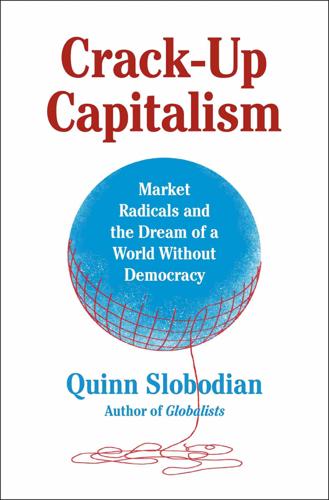
Crack-Up Capitalism: Market Radicals and the Dream of a World Without Democracy
by
Quinn Slobodian
Published 4 Apr 2023
“The Rise of Cloud Cities & Citizen Journalism with Balaji Srinivasan,” The Paradox Podcast, July 29, 2020, https://podcastnotes.org/paradox-podcast/balaji-srinivasan-on-the-paradox-podcast/. 39. Kosloff and Srinivasan, “#3 Network State with Balaji Srinivasan, former CTO of Coinbase and Founder of 1729.” 40. Srinivasan, “The Network State,” 9. 41. Balaji Srinivasan, “Bitcoin, China, the ‘Woke’ Mob, and the Future of the Internet,” Joe Lonsdale: American Optimist, August 11, 2021, https://www.youtube.com/watch?v=MMuIyspn7s0. 42. “The Rise of Cloud Cities & Citizen Journalism with Balaji Srinivasan.” 43.
…
Hobsbawm and T. O. Ranger, eds., The Invention of Tradition (New York: Cambridge University Press, 1983). 50. Aris Komporozos-Athanasiou, Speculative Communities: Living with Uncertainty in a Financialized World (Chicago: University of Chicago Press, 2022). 51. “The Rise of Cloud Cities & Citizen Journalism with Balaji Srinivasan.” 52. Tarnoff, Internet for the People: The Fight for Our Digital Future, 36. 53. Quinn Slobodian, “Cryptocurrencies’ Dream of Escaping the Global Financial System Is Crumbling,” Guardian, July 5, 2021, Global Newsstream. 54. Katie Martin and Billy Nauman, “Bitcoin’s Growing Energy Problem: ‘It’s a Dirty Currency,’” Financial Times, May 20, 2021, Global Newsstream. 55.
…
Katie Martin and Billy Nauman, “Bitcoin’s Growing Energy Problem: ‘It’s a Dirty Currency,’” Financial Times, May 20, 2021, Global Newsstream. 55. On the frontier myth see Greg Grandin, The End of the Myth: From the Frontier to the Border Wall in the Mind of America (New York: Metropolitan, 2019). 56. “The Rise of Cloud Cities & Citizen Journalism with Balaji Srinivasan.” 57. On the place they ended up see Justin Gaudet, “Paddle Prairie Metis Settlement,” Canadian Encyclopedia, August 3, 2021, https://www.thecanadianencyclopedia.ca/en/article/paddle-prairie-metis-settlement. My great-grandmother Emily Houle is in the photograph. 58.
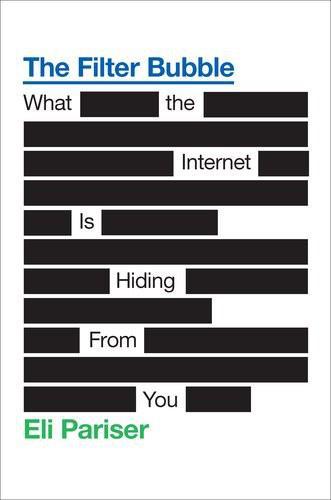
The Filter Bubble: What the Internet Is Hiding From You
by
Eli Pariser
Published 11 May 2011
Together, our members have given over $120 million in small donations to support causes we’ve identified together—health care for everyone, a green economy, and a flourishing democratic process, to name a few. For a time, it seemed that the Internet was going to entirely redemocratize society. Bloggers and citizen journalists would single-handedly rebuild the public media. Politicians would be able to run only with a broad base of support from small, everyday donors. Local governments would become more transparent and accountable to their citizens. And yet the era of civic connection I dreamed about hasn’t come.
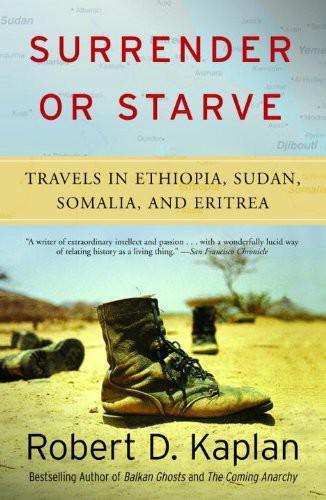
Surrender or Starve: Travels in Ethiopia, Sudan, Somalia, and Eritrea
by
Robert D. Kaplan
Published 1 Jan 1988
It was about this time that the Sudanese defense minister went to Tripoli to sign the “protocol.” Meanwhile, the United States, which was occupied with helicopter drops and other acts of mercy in the far west of the country, was merely a bystander to this whole process. The Libyans also were active in the west; they took bold, strategic advantage of the famine while U.S. citizens, journalists in particular, were looking the other way. On the Sabbath Friday, August 23, 1985, six days before the Buram helicopter drop, a Libyan relief convoy of forty-three trucks and trailers, escorted by Libyan soldiers, rolled into the Darfur capital of El Fasher with an undisclosed number of weapons hidden beneath sacks of grain and dried milk powder.
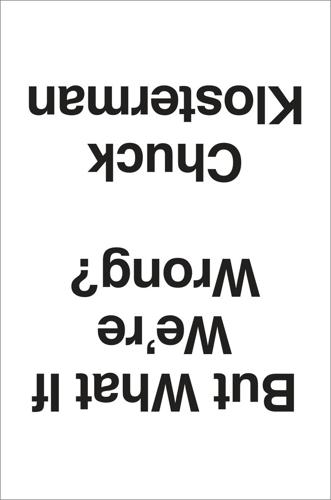
But What if We're Wrong? Thinking About the Present as if It Were the Past
by
Chuck Klosterman
Published 6 Jun 2016
I can imagine the cognition of my current worldview slowly dissolving, in the same way certain dreams dissolve within the same instant I wake up and realize that I was not experiencing my actual life. Every so often, minor news stories will surface suggesting something major about science is already shifting. “NASA successfully tests engine that uses no fuel [and] violates the laws of physics,” read an August 1, 2014, headline in the citizen-journalist-run Examiner. Nine months later, the Silicon Valley–based Tech Times proclaimed, “NASA may have accidentally discovered faster-than-light travel.” Both articles were about the EmDrive, an experimental rocket thruster that supposedly violates Newton’s Third Law (the conservation of momentum).
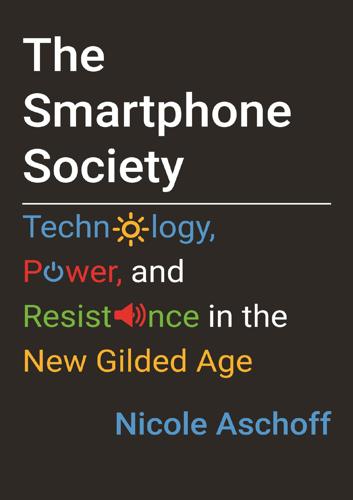
The Smartphone Society
by
Nicole Aschoff
Indigenous leaders in Perth, the capital of Western Australia, recently took part in a training workshop developed and facilitated by the National Justice Project, a nonprofit legal service based in Sydney. Aboriginal and Torres Strait Islander peoples are thirteen times as likely to be incarcerated as non-Indigenous Australians, and are subject to systematic harassment and abuse by police, particularly in Western Australia. The workshop focused on training Indigenous Australians to become citizen journalists, to use social media to highlight injustice.14 Highlighting injustice can be a dangerous endeavor, however. Stories pepper the web of people who’ve been intimidated, harassed, arrested, and beaten for filming interactions between law enforcement and civilians. In early 2019 US Immigrations and Customs Enforcement (ICE) officials raided a manufacturing plant in rural Sanford, North Carolina, and detained twenty-seven people.
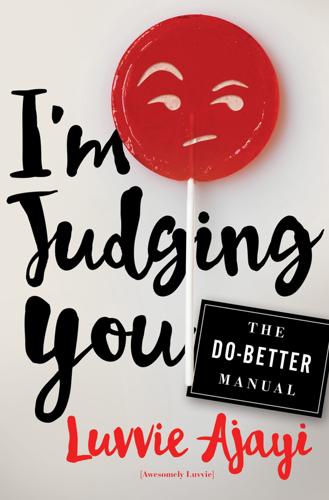
I'm Judging You: The Do-Better Manual
by
Luvvie Ajayi
Published 12 Sep 2016
Social media has transformed our ways of communicating, and it has turned journalism on its head. I praise this aspect of the changed media landscape because at its most beautiful and useful, we get moments like my friend connecting with Richard in Haiti. The digital age has also allowed the rise of citizen journalists; people can tell stories that combat the false narratives spread by the mainstream media. You can live-tweet what is actually happening at a protest, so there’s a different perspective from the tales of violence and mayhem on the nine o’clock news. You can write a blog post about the state of education in your district, so that when funding is cut, we have the stories of those who are actually affected.
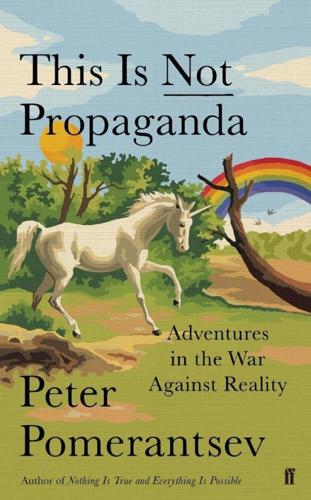
This Is Not Propaganda: Adventures in the War Against Reality
by
Peter Pomerantsev
Published 29 Jul 2019
Scores of young men and women were constantly scurrying around the city, filming and uploading video of the damage at what they called the ‘Aleppo media centre’. Some had travelled to Beirut for video training from humanitarian organisations. ‘Capture the crimes and this will help stop the atrocities,’ they had been told. They were now ‘citizen journalists’, ‘media activists’. President Assad’s helicopters were circling over their town, hovering overhead, then pushing off barrel bombs – oil drums, fuel tanks and gas cylinders filled with explosives and metal fragments – onto the city. Aleppo’s citizens were helpless beneath them. But they could film, and that, they felt, hoped, connected them to something greater and more powerful than the helicopters.
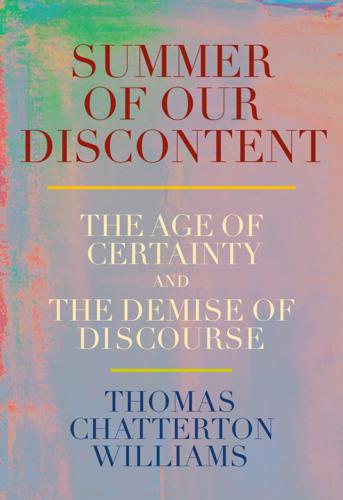
Summer of Our Discontent: The Age of Certainty and the Demise of Discourse
by
Thomas Chatterton Williams
Published 4 Aug 2025
.[*10] As night descended, Rosenbaum left the motel where his fiancée was living, unable to spend the night on pain of being rearrested, and Rittenhouse was filmed standing guard outside the dealership with a gathering group of armed men, people he describes as complete strangers who had also come to protect local businesses. Rittenhouse speaks affably with citizen journalists live streaming the protests on social media. “People are getting injured, and our job is to protect this business, and part of my job is also to help people,” he says unaffectedly. “If there’s somebody hurt, I’m running into harm’s way. That’s why I have my rifle, because I need to protect myself obviously.
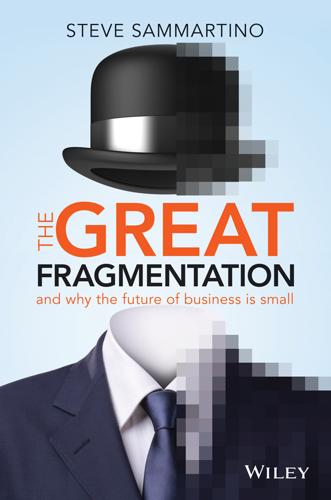
The Great Fragmentation: And Why the Future of All Business Is Small
by
Steve Sammartino
Published 25 Jun 2014
This has also happened with mainframe computing to the point where the super computer that lives in our pocket is our most powerful technological device. It’s clear that technology is disrupting industry and breaking down almost everything that was once mass. Just as large media has had to learn to share the stage with citizen journalism, the factory will soon be sharing the market with digital craftspeople operating out of their home. Desktop publishing is about to be joined by desktop manufacturing. Smart entrepreneurs are already starting to build ‘bridge industries’ for 3D printing, which will teach and build the market in the pre–saturation phase of the coming years.
…
It’s hard to imagine that a build-stuff-on-demand world will ever exist. But it was probably hard for pre-industrial artisans to imagine what factories and production would eventually become, or how the first transistors would transform us into an information age. What’s certain is that social media and citizen journalism will evolve into social design and social manufacturing. It’s the way it’s always been, excluding the 200-year halcyon period of the industrial era. Dad vs daughter I’ve been thrilled to own a 3D printer for a few years now. I purchased one when they hit their Altair moment (the Altair 8800 is regarded as the first affordable personal computer and the spark of the home computer revolution).
…
While not everyone has embraced it, this is true for anyone who’s connected to the internet. If we’re plugged into the web, we’re a valid form of media, plain and simple. If we have the ability to send a message to more than one recipient simultaneously, we’re the media, even at a micro level. And it doesn’t mean we have to be using the tools of citizen journalism either. People don’t have to be creating traditional media output (written words, video content, audio content) to be media. If you send a text message to a group of recipients via a web app, that’s media. You’re delivering content to a permission-based audience. You have their eyes and ears.
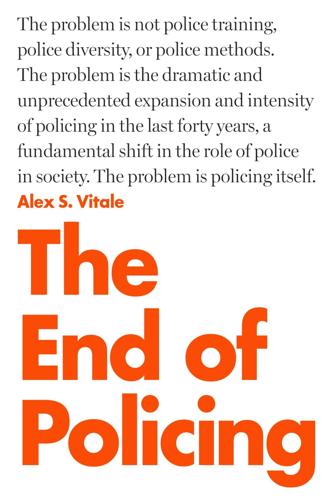
The End of Policing
by
Alex S. Vitale
Published 9 Oct 2017
These became known as the Palmer Raids, which began with the rounding up and deportation of a few hundred left writers and activists, including Emma Goldman in 1919, even though she was a naturalized American citizen. In January 1920 Palmer, working with local police, undertook a massive campaign of arrests, interrogation, false imprisonment, and deportation. Thousands were arrested including large numbers of US citizens. Journalists were specially targeted, files seized, and papers closed down. Many were held for weeks in basements and building hallways with no access to bathrooms, food, or lawyers. Many others were beaten or tortured, and in one instance a prisoner “jumped” out of a window and died.16 Buffalo’s police chief was quoted as saying, “It’s too bad we can’t line them up against a wall and shoot them.”17 The Massachusetts secretary of state said, “If I had my way I would take them out in the yard every morning and shoot them, and the next day would have a trial to see whether they were guilty.”18 In the end, the raids were found to be utterly illegal, but not before hundreds were deported, organizations disrupted, and lives destroyed.
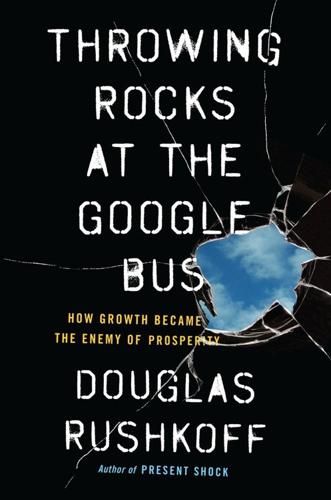
Throwing Rocks at the Google Bus: How Growth Became the Enemy of Prosperity
by
Douglas Rushkoff
Published 1 Mar 2016
Evan and his partners successfully turned Twitter into a publicly traded, multibillion-dollar company and in the process sacrificed a potentially world-changing app to the singular pursuit of growth. Here was arguably the most powerful social media tool yet developed—from organizing activists in the Arab Spring and Occupy Wall Street movements to providing a global platform for citizen journalists and presidential candidates alike. And it wasn’t particularly expensive to create or maintain. It certainly didn’t require a multibillion-dollar cash infusion in order to keep functioning. Having taken in this much new capital, however, Twitter now needs to produce. It must grow. As of this writing, the $43 million Twitter profited last quarter is considered an abject failure by Wall Street.
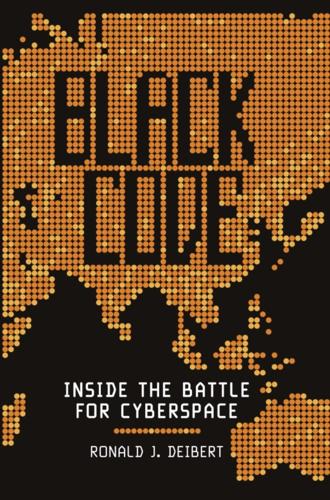
Black Code: Inside the Battle for Cyberspace
by
Ronald J. Deibert
Published 13 May 2013
Let’s imagine for a moment that you don’t own a computer, have never sent an email or text, and don’t know what “app” means. The thing that informs you, that prepares you for cocktail parties and other gatherings, is mainstream or “old” media – newspapers, radio, and TV. Look closely at this “old media”: How much of it is now “informed by,” even directed by, “new media,” by thousands, even millions, of “citizen journalists,” unpaid, unaccountable, but with cellphone cameras permanently at the ready, documenting events as they happen in real time, unfiltered, and, perhaps, unreliable. The other truth is that no one really knows what this hurricane will leave behind or where it will take us. We’re just struggling to hang on.
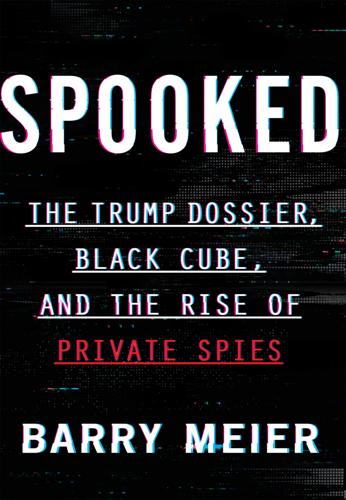
Spooked: The Trump Dossier, Black Cube, and the Rise of Private Spies
by
Barry Meier
Published 17 May 2021
Planned Parenthood had sought his help, he said, after anti-abortion activists released videotapes in which clinic employees appeared to be discussing the commercial sale of tissue harvested from aborted fetuses. To make the tapes, the pro-life activists, who described themselves as undercover citizen journalists, had posed as employees of a medical tissue collection company and gained entry to Planned Parenthood events, where they secretly recorded conversations. The tapes created an outcry when they were released and Planned Parenthood faced a threatened cutoff of federal funds. Simpson, along with a video forensics expert and a television producer, examined the tapes to determine if the activists had manipulated them.

The End of Secrecy: The Rise and Fall of WikiLeaks
by
The "Guardian"
,
David Leigh
and
Luke Harding
Published 1 Feb 2011
As its name suggests, WikiLeaks began as a “wiki” – a user-editable site (which has sometimes led to confusion with the user-editable Wikipedia; there is no association). But Assange and his colleagues rapidly found that the content and need to remove dangerous or incriminating information made such a model impractical. Assange would come to revise his belief that online “citizen journalists” in their thousands would be prepared to scrutinise posted documents and discover whether they were genuine or not. But while the “wiki” elements have been abandoned, a structure to enable anonymous submissions of leaked documents remains at the heart of the WikiLeaks idea. British encryption expert Ben Laurie was another who assisted.
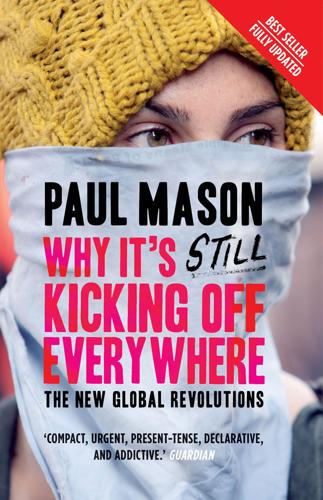
Why It's Still Kicking Off Everywhere: The New Global Revolutions
by
Paul Mason
Published 30 Sep 2013
A policy where people of colour are shamelessly picked off the streets by plainclothes police and herded onto buses to be processed. One where previously buzzing immigrant neighbourhoods like Agias Pandelemonos in Athens have become, in a matter of months, quiet, orderly, and mostly white. But it has not stopped Golden Dawn. Theodora Oikonomides, a citizen journalist at the alternative radio network Radio Bubble, who has covered the rise of Golden Dawn, voices a fear common to many: ‘Golden Dawn’s favourite themes, such as xenophobia, homophobia and anti-Semitism have now become part of Greek public discourse, whether at the political or at the social level,’ she says.
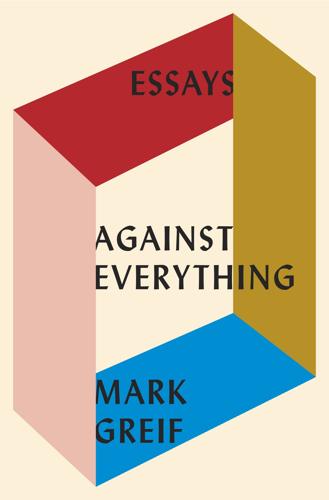
Against Everything: Essays
by
Mark Greif
Published 5 Sep 2016
So vandalism has come to be the flip side of this extraordinary Taj Mahal, or vast, architecturally promiscuous city, made by users—YouTube’s, the organizer’s, vandalism of what we have created. Treasured things keep disappearing even as new ones appear. Whenever a controversial or newsworthy clip is heard to be posted—as witnesses and “citizen journalists” put up footage from their camera phones, and its presence even makes it into the front-page recounting of the news, precisely the kind of thing a collective repository should exist to keep and share—one’s immediate question is: “Is it still up?” Which asks, has the They gotten to it yet and removed it?
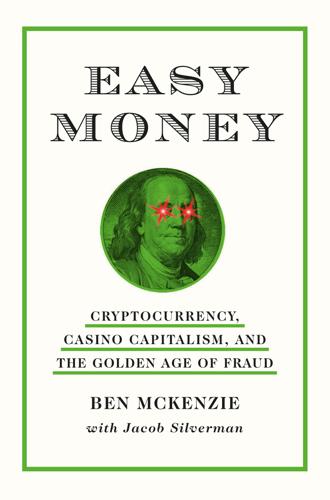
Easy Money: Cryptocurrency, Casino Capitalism, and the Golden Age of Fraud
by
Ben McKenzie
and
Jacob Silverman
Published 17 Jul 2023
He loaned $55 million to Ryan Salame, who apparently used some of that money to buy five restaurants in Lenox, Massachusetts, near where he grew up. Sam, or someone at FTX, bought a $16.4 million mansion in his parents’ name in the Bahamas. Sam, his parents, and senior FTX executives purchased nearly $121 million worth of real estate on the island nation. Poring over obscure podcast interviews and Caroline Ellison’s old Tumblr posts, citizen journalists looked for clues to the company’s collapse. In one post that recirculated, Ellison described the benefits of continually doubling down on risky bets, forever. The lower bound was known—you could lose everything—but the upside was infinite. Why not go for infinite? Past comments by Sam suddenly seemed ripe for reinterpretation.
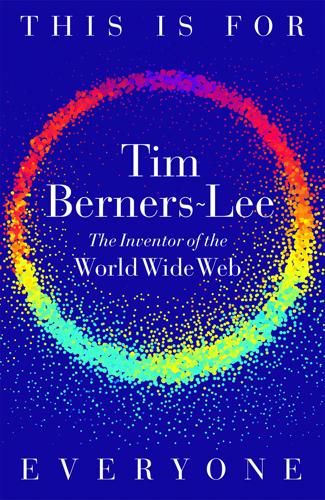
This Is for Everyone: The Captivating Memoir From the Inventor of the World Wide Web
by
Tim Berners-Lee
Published 8 Sep 2025
The ODI secured office space in the Old Street area of London and hired a staff of around thirty. (We later moved to King’s Cross.) We began working with policymakers to make all sorts of government data – tax info, census data, official government statistics – more open and accessible to citizens, journalists and analysts. The work continues to this day. The ODI also helps governments build digital tools to interpret all this information. For example, we developed a visualization tool to help the UK government tackle the spiralling cost-of-living crisis, highlighting hotspots across the UK where the combined cost of fuel, food, housing and debt were making whole swathes of the country unaffordable for young people.
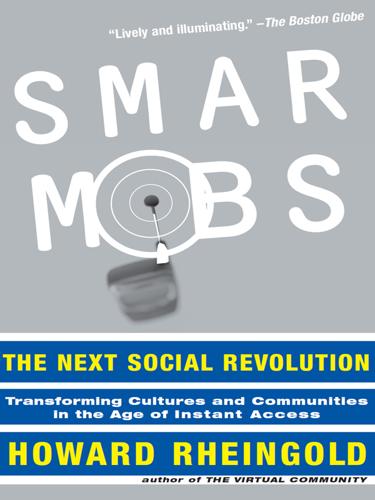
Smart Mobs: The Next Social Revolution
by
Howard Rheingold
Published 24 Dec 2011
But any observer who focuses exclusively on the potential for violence would miss evidence of perhaps an even more profoundly disruptive potential—for beneficial as well as malign purposes—of smart mob technologies and techniques. Could cooperation epidemics break out if smart mob media spread beyond warriors—to citizens, journalists, scientists, people looking for fun, friends, mates, customers, or trading partners? Substitute the word “computers” for the words “smart mobs” in the previous paragraph, and you’ll recapitulate the history of computation since its birth in World War II. Lovegety and p2p Journalism Organized conflict is undoubtedly a site of intensive cooperation.
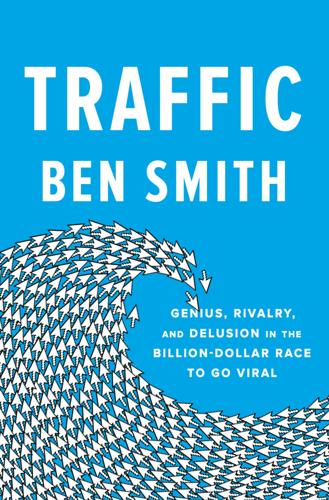
Traffic: Genius, Rivalry, and Delusion in the Billion-Dollar Race to Go Viral
by
Ben Smith
Published 2 May 2023
Like many a great salesperson, he seemed to be able to convince himself of pretty much anything as well. He was a perfect mark for Arianna, whose own reality-distortion field had created an image of The Huffington Post—a mecca for young viewers, powered by earnest concern about politics and “citizen journalists” blogging for free—that bore little resemblance to the dark arts KT, Jonah, and Breanna had mastered of gaming Google and getting middle-aged men to click on links that promised photographs of attractive young women. Armstrong does not appear to have actually understood much about how The Huffington Post worked.
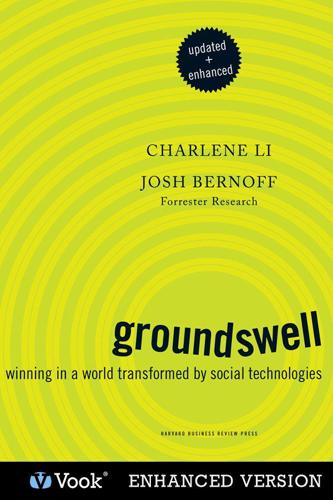
Groundswell: Winning in a World Transformed by Social Technologies
by
Charlene Li
and
Josh Bernoff
Published 23 May 2011
In 2006, Forrester Research released a report called “Social Computing”: Forrester’s report was called “Social Computing: How Networks Erode Institutional Power, And What to Do About It.” In this report we argued that technology-driven social phenomena—including blogs, wikis, social networks, file sharing, customer ratings, citizen journalism, and the like—are part of a single trend toward people connecting and depending on each other, rather than on institutions. (We now call that trend the groundswell.) According to the report, “To thrive in an era of Social Computing, companies must abandon top-down management and communication tactics, weave communities into their products and services, use employees and partners as marketers, and become part of a living fabric of brand loyalists.”
…
An amazing short story called “Microcosmic God”: Theodore Sturgeon’s “Microcosmic God” was first published in 1941. The story appears in The Science Fiction Hall of Fame, Vol. 1, edited by Robert Silverberg (New York: Orb, 2005). 25. Seven weeks, for a total investment of $12,107.09: See Guy Kawasaki’s June 3, 2007, blog post “By the Numbers: How I built a Web 2.0, User-Generated Content, Citizen Journalism, Long-Tail, Social Media Site for $12,107.09” on the blog How to Change the World at http://forr.com/gsw1-25. 26. As Chris Anderson, author of The Long Tail: See The Long Tail: Why the Future of Business Is Selling Less of More by Chris Anderson (New York: Hyperion, 2006). The author’s blog is at www.thelongtail.com or http://forr.com/gsw1-26. 27.
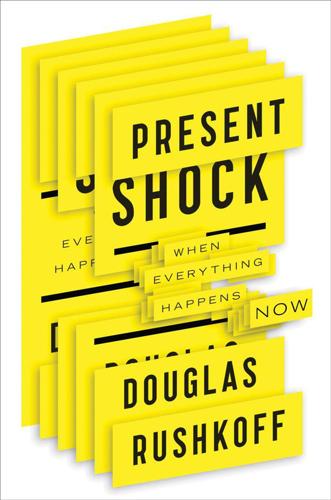
Present Shock: When Everything Happens Now
by
Douglas Rushkoff
Published 21 Mar 2013
This is twice the percentage who believed that in the mid-1980s, before the proliferation of the net.24 As cultural philosopher Jürgen Habermas offered during his acceptance speech of a humanitarian award in 2006, “The price we pay for the growth in egalitarianism offered by the Internet is the decentralized access to unedited stories. In this medium, contributions by intellectuals lose their power to create a focus.”25 To be sure, the rise of citizen journalism brings us information that the mainstream media lacks either the budget for or fortitude to cover. Initial reports of damage during Hurricane Katrina came from bloggers and amateur videographers. However, these reports also inflated body counts and spread rumors about rape and violence in the Superdome that were later revealed not to have occurred.26 Footage and reporting from the Arab Spring and the Syrian revolution—where news agencies were limited or banned—were almost entirely dependent on amateur journalists.
…
See also specific topic ownership, 168–69, 204 pacing: collaborative, 100–101; digiphrenia and, 74, 93–109; importance of, 8; multiple timescales and, 135; overwinding and, 135, 141, 170 paranoia, 204, 218, 222, 240–41, 250, 261 patterns: apocalypto and, 251, 263, 264; fractalnoia and, 7, 197–205, 209, 216, 217–19, 229, 230–41; generating of, 217–19; as nonexistent, 201, 202; recognition of, 7, 219, 230–41, 264 Paul, Ron, 53 Perren, Jeff, 60n Pew Internet and American Life Project, 52 Pew Research, 51 Pinchbeck, Daniel, 253 Pinker, Steven, 227–28 planking, 43 plastic surgery, 149–51 play. See games politics: citizen journalism and, 52–53; fractalnoia and, 209, 212, 216; generational issues and, 18; narrative collapse and, 7, 18, 28, 43–50, 52–53, 64, 67; overwinding and, 134, 157; real-time, 43–50. See also Occupy Movement popular culture, 7, 23–34, 247. See also culture pork belly trades, 185–86 post-traumatic stress disorder (PTSD).
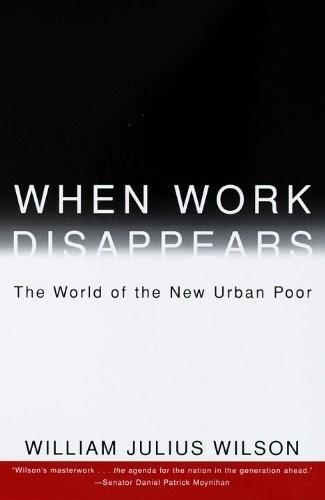
When Work Disappears: The World of the New Urban Poor
by
William Julius Wilson
Published 1 Jan 1996
A good deal of what we call attention to as social scientists is related to the ultimate objective of our research. Social researchers who wish to inform and influence public policy are more likely to focus on a community’s problems than on its strengths. Their purpose is to stimulate thought so that policymakers, concerned citizens, journalists, and others will have a basis for understanding such problems and the need to address them. Given the reemergence of the discussion concerning the importance of genetic endowment, it is urgent that social scientists once again emphasize, for public policy purposes, the powerful and complex role of the social environment in shaping the life experiences of inner-city ghetto residents.
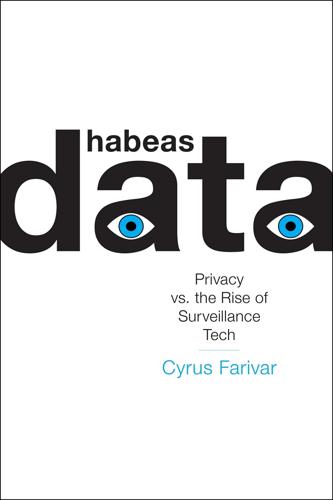
Habeas Data: Privacy vs. The Rise of Surveillance Tech
by
Cyrus Farivar
Published 7 May 2018
In the same article, Sherry Sabol, a veteran FBI attorney, sent the Journal a statement about stingrays, noting that the technology is “considered Law Enforcement Sensitive, since its public release could harm law enforcement efforts by compromising future use of the equipment.” In short, Rigmaiden unveiled a new chapter in the story of sophisticated surveillance to the public—citizens, journalists, lawyers, judges—that law enforcement had already known for years, mostly without telling anyone. * * * After Rigmaiden and Soghoian began corresponding, the doctoral student was introduced to Stephanie Pell, a former veteran federal prosecutor, who was then serving as counsel to the House Judiciary Committee.
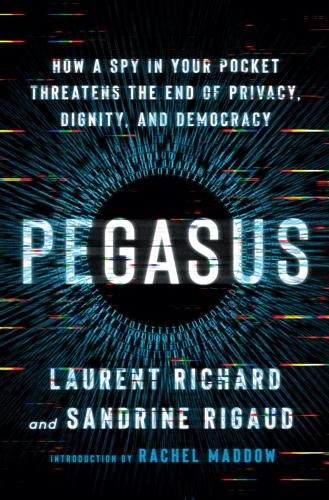
Pegasus: How a Spy in Your Pocket Threatens the End of Privacy, Dignity, and Democracy
by
Laurent Richard
and
Sandrine Rigaud
Published 17 Jan 2023
That same year, President Barack Obama praised Morocco for its newfound commitment to human rights. The US continued to gift the kingdom more than $100 million a year to help stimulate the Moroccan economy. Those years immediately following the February 20 Movement turned into the salad days for Omar Radi. He became a key blogger for Mamfakinch (roughly translated: No Concession), a citizen-journalist site that debunked state-financed and state-run media. He helped launch the French version of the website specializing in investigative reporting, Lakome.com; he contributed to foreign media outlets like Orient XXI, the BBC, and Al Jazeera English. He was also a founding member of Le Desk, a news site that specialized in long-format investigative reporting, multimedia presentations, and data journalism.
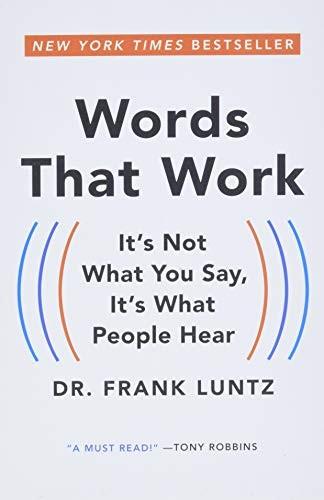
Words That Work: It's Not What You Say, It's What People Hear
by
Dr. Frank Luntz
Published 2 Jan 2007
Some of them are: • Little Green Footballs21 was the first source to show that the Bush National Guard memos publicized by CBS were fake, by re-creating them in Microsoft Word and demonstrating how the line spacing and font matched perfectly those of documents that were supposed to be more than three decades old and created on a typewriter—decades before word processing.22 • PowerLine, a conservative blog launched in 200223 and run by three lawyers, has also broken national stories and influenced the mainstream media, helped along in great measure by contributions and leads from its individual readers. “The secret . . . is ‘open-source intelligence gathering.’ . . . We’ve got a huge pool of highly motivated people who go out there and use the tools to find stuff. We’ve got an army of citizen journalists out there,” says Charles Johnson, one of the founders.24 In addition to its participation in the Swift Boat investigation, PowerLine also helped lead the charge against Harriet Miers’s short-lived nomination to the Supreme Court. PowerLine was named “blog of the year” by Time magazine in 2004
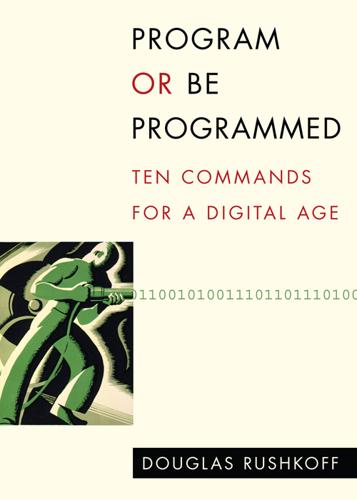
Program Or Be Programmed: Ten Commands for a Digital Age
by
Douglas Rushkoff
Published 1 Nov 2010
Young people who saw in social networks a way to redefine themselves and their allegiances across formerly sacrosanct boundaries are now conforming to the logic of social networking profiles and finding themselves the victims of marketers and character assassination. Bankers who believed that digital entrepreneurship would revive a sagging industrial age economy are instead finding it impossible to generate new value through capital investment. A news media that saw in information networks new opportunities for citizen journalism and responsive, twenty-four-hour news gathering has grown sensationalist, unprofitable, and devoid of useful facts. Educated laypeople who saw in the net a new opportunity for amateur participation in previously cordoned-off sectors of media and society instead see the indiscriminate mashing and mixing up of pretty much everything, in an environment where the loud and lewd drown out anything that takes more than a few moments to understand.
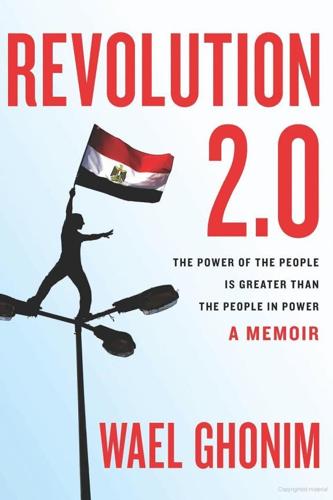
Revolution 2:0: A Memoir and Call to Action
by
Wael Ghonim
Published 15 Jan 2012
Finally, State Security would pressure the civic workers responsible for sorting and counting the votes into rigging the results. Even so, the 2010 parliamentary elections were the worst in Egypt’s history. A group of young people sympathetic to the Muslim Brotherhood launched a Facebook page called “Monitoring—2010 Parliament.” It was delightful to see a page devoted to citizen journalism appearing on Facebook specifically to monitor the elections. They called themselves Rasd, an Arabic word that means “monitoring.” Judging from the way the page was run, its founders seemed both professional and young. I would later find out that one of the founders was actually none other than Amr El-Qazzaz, the guy to whom I had delegated the management of elshaheeed.org.
…
After the thugs retreated, they climbed onto the Sixth of October Bridge to throw yet more Molotov cocktails. Then the battle became deadly: snipers began targeting protesters and firing live ammunition from the top of the bridge. Martyrs began to fall, one after another, until a group of protesters was able to climb the bridge from behind the thugs and snipers and fight with them one by one. Citizen journalism and social media played a great role in informing the world of the events in the square and many other areas across Egypt. Rasd, whose page was linked to “Kullena Khaled Said” on Jan25, had twelve admins who regularly collected information, photos, and videos from protesters. Their page quickly became one of the major news sources on the Egyptian revolution.
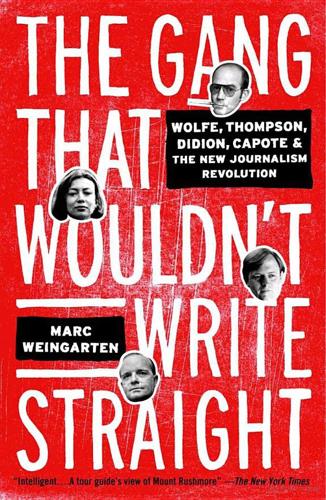
The Gang That Wouldn't Write Straight: Wolfe, Thompson, Didion, Capote, and the New Journalism Revolution
by
Marc Weingarten
Published 12 Dec 2006
Public figures were also starting to contribute their voices to the dissent. In 1967 the Bertrand Russell Peace Foundation sponsored the International War Crimes Tribunal, a plenipotentiary forum whose board members included novelist James Baldwin and existential philosopher Jean-Paul Sartre. Using extensive testimony from Vietnamese citizens, journalists, medical experts, and military leaders, the tribunal sought to reprimand the United States for its illegal use of chemical weaponry, particularly napalm, against the North Vietnamese, comparing it to the war atrocities committed by the Nazis during World War II. The tribunal was great theater, a display of rhetorical fireworks and moving testimony.
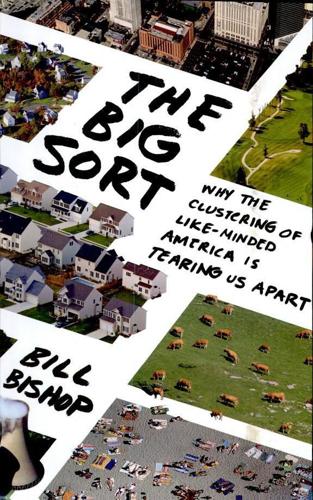
The Big Sort: Why the Clustering of Like-Minded America Is Tearing Us Apart
by
Bill Bishop
and
Robert G. Cushing
Published 6 May 2008
ACKNOWLEDGMENTS NOTES SELECTED BIBLIOGRAPHY INDEX ACKNOWLEDGMENTS THERE MAY NOT be an end to the number of people who contributed to the making of this book, but there are two people who were at the beginning: Tom and Pat Gish. Tom and Pat have owned and operated the Mountain Eagle, a weekly newspaper in the mountains of Eastern Kentucky, for the past half century. Before bloggers or citizen journalists or the Web 2.0, the Gishes practiced a tough, inclusive, honest, and ultimately democratic style of journalism that has guided me since I arrived on their doorstep in 1975. Tom and Pat have shown a respect for the people of Letcher County that is unusual in journalism and almost entirely missing from public life.
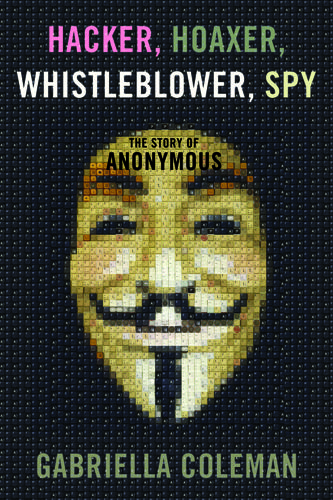
Hacker, Hoaxer, Whistleblower, Spy: The Story of Anonymous
by
Gabriella Coleman
Published 4 Nov 2014
Absolutely.”50 When these articles were brought to Anonymous’ attention, the group made a lot of noise, in turn bringing the incident to the nation’s attention. Eventually, a special prosecutor formally filed a criminal charge against Matthew Barnett—a single count of misdemeanor child endangerment. Anonymous’ interventions in these three cases triggered searing but divided responses. Citizens, journalists, and feminists disagreed over whether Anonymous’ interventions had helped or hurt sexual abuse victims. Ariel Levy, in a scathing New Yorker article, came down hard against the Anonymous (and other online activists), asserting that the appeal of the group was rooted in the public’s naive embrace of a simple archetype: “modern-day Peter Parkers—computer nerds who put on a costume and were transformed into superhero vigilantes.”51 Other responses were more nuanced, going beyond the vigilante argument.
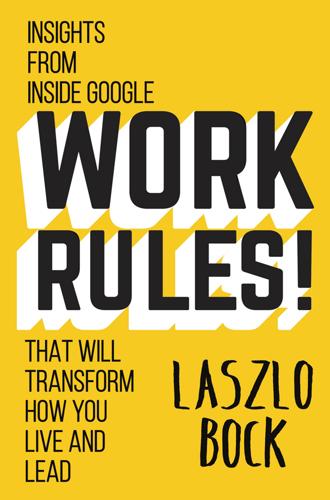
Work Rules!: Insights From Inside Google That Will Transform How You Live and Lead
by
Laszlo Bock
Published 31 Mar 2015
Charlotte Monico, a London-based member of our people operations team, is one of over a dozen Googlers to have taken part in the Olympic games. Vint Cerf, known as “the co-father of the Internet” for his seminal work co-inventing the Internet, is our lead evangelist. The inventor of the optical mouse (Dick Lyon) and founders or cofounders of Excite (Joe Kraus and Graham Spencer), Ushahidi (a crowdsourcing utility that allows citizen journalists and eyewitnesses to report violence in Africa, created by Ory Okolloh), Chrome (Sundar Pichai and Linus Upson), and Digg (Kevin Rose) work alongside one another and tens of thousands of other remarkable people. How can you tell if you have found someone exceptional? My simple rule of thumb—and the second big change to make in how you hire—is: “Only hire people who are better than you.”
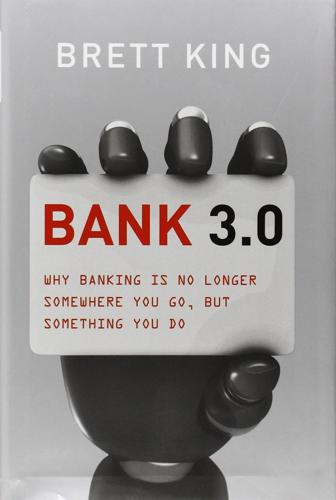
Bank 3.0: Why Banking Is No Longer Somewhere You Go but Something You Do
by
Brett King
Published 26 Dec 2012
In countries such as China, the variety of local social networking tools is just as bewildering, with sites such as QQ, 51, Xiaonei, Chinaren, Kaixin001, 5460, Wangyou, and others. Individuals who do tireless outreach to their large networks are deemed to be influencers and are now courted by corporations to help sell new products and socialise ideas. Even less-frequent commentators can serve as “citizen journalists”, notifying others about their concerns or experiences with organisations. The Chinese author and blogger, Han Han, has received over 300 million views to his blog, making him the most-read blogger in China, and probably the entire world. In September 2010, the British magazine, New Statesman, listed Han Han at 48th place in the list of the world’s “50 Most Influential Figures 2010”.17 Han started as a writer when he was at high school, and won literary awards such as China’s New Concept Writing Competition.
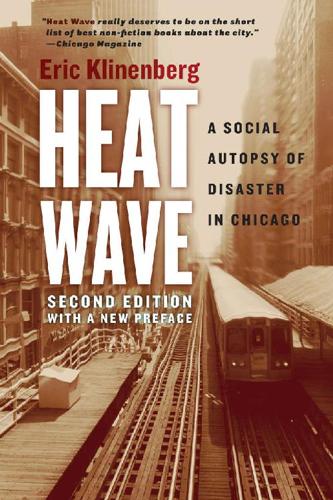
Heat Wave: A Social Autopsy of Disaster in Chicago
by
Eric Klinenberg
Published 11 Jul 2002
According to conventional theories of the news media, and especially those advanced by journalists themselves, “the essence of real journalism . . . is the search for information of use to the public.”6 “Prevailing wisdom,” Jay Rosen writes, holds that journalists “give us timely information about matters of common importance; they entertain and enlighten us with compelling stories; they act as our surrogate and watchdog before the high and mighty, asking sharp questions and demanding straight answers; they expose wrongdoing and the abuse of public trust; and they put before us a range of views, through opinion forums marked as such.”7 But in practice, news audiences have always demanded that journalists do more—or maybe less—than provide them with information that will help them act as responsible democratic citizens. Journalists themselves disagree about the kinds of roles they should play in reporting public events such as the heat wave. During the crisis local newsrooms became the sites of conflicts between editors who wanted to generate large audiences through spectacular human interest stories and those who wanted to produce more substantive news reporting.
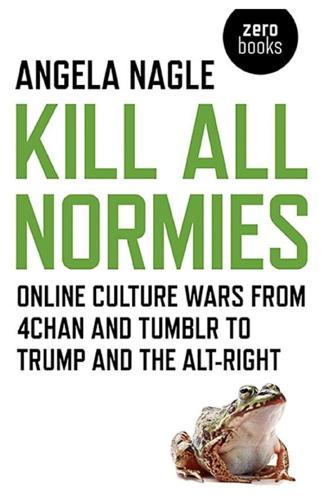
Kill All Normies: Online Culture Wars From 4Chan and Tumblr to Trump and the Alt-Right
by
Angela Nagle
Published 6 Jun 2017
Compare the first election won by Obama, in which social media devotees reproduced the iconic but official blue-and-red stylized stencil portrait of the new president with HOPE printed across the bottom, a portrait created by artist Shepard Fairey and approved by the official Obama campaign, to the bursting forth of irreverent mainstream-baffling meme culture during the last race, in which the Bernie’s Dank Meme Stash Facebook page and The Donald subreddit defined the tone of the race for a young and newly politicized generation, with the mainstream media desperately trying to catch up with a subcultural in-joke style to suit two emergent anti-establishment waves of the right and left. Writers like Manuel Castells and numerous commentators in the Wired magazine milieu told us of the coming of a networked society, in which old hierarchical models of business and culture would be replaced by the wisdom of crowds, the swarm, the hive mind, citizen journalism and user-generated content. They got their wish, but it’s not quite the utopian vision they were hoping for. As old media dies, gatekeepers of cultural sensibilities and etiquette have been overthrown, notions of popular taste maintained by a small creative class are now perpetually outpaced by viral online content from obscure sources, and culture industry consumers have been replaced by constantly online, instant content producers.
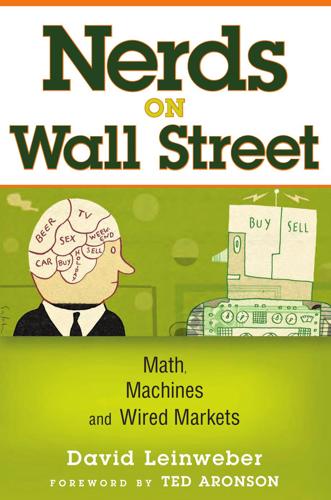
Nerds on Wall Street: Math, Machines and Wired Markets
by
David J. Leinweber
Published 31 Dec 2008
This is an update on the “time isn’t what it used to be” lesson seen in comparing pre- and postmodern Web-era market reaction to earnings surprise news, shown in Chapter 4. In fact, it didn’t take long for another major manipulation based on false news to occur. A legitimate news story followed a falsely planted one that had hammered Apple stock down by 5.4 percent, less than a month after the UAL presumed accident: CNN’s plunge into online citizen journalism backfired yesterday when the cable-news outlet posted what turned out to be a bogus report claiming that Apple Inc. Chief Executive Officer Steve Jobs had suffered a heart attack. Apple shares fell as much as 5.4 percent after the post on CNN’s iReport.com and rebounded after the Cupertino, California–based company said the story was false.
…
Relegence was an early first-wave company that did this. It was acquired by AOL, but remains in the news machine business (www.relegence.com/). Newcomers in 2007 and 2008 include Skygrid (www.skygrid.com) and StockMood (www.stockmood. com). Firstrain.com aggregates a wide range of services. The Text Fr ontier 225 3. James Callan, “CNN’s Citizen Journalism Goes ‘Awry’ with False Report on Jobs,” Bloomberg News, October 4, 2008. 4. Paul Tetlock, Maytal Saar-Tsechansky, and Sofus Macskassy, “More Than Words: Quantifying Language (in News) to Measure Firms’ Fundamentals,” Journal of Finance 63 (June 2008): 1437–1467. (An earlier working version is available at the Social Science Research Network, http://ssrn.com.) 5.
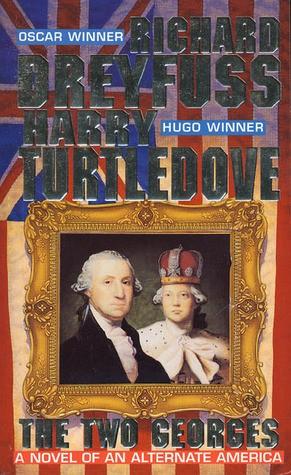
Two Georges
by
Richard Dreyfuss
and
Harry Turtledove
Published 4 Oct 1995
Newsboys on every other street corner waved papers with screaming headlines. The big one was always the same, regardless of the daily: TWO GEORGES STOLEN! The number of exclamation points following the head did vary, from none in the staid New Liverpool Tory to four in the Citizen-Journal. Subheads also varied. SHAME! cried one. Another wailed, MONSTROUS CRIME! And a third declared, THE EMPIRE MOURNS! Some mentioned the Steamer King’s demise (only the Citizen-journal called him Tricky Dick, while the headline man for the Ledger was clever enough to link his murder to the theft of The Two Georges), while others went on talking about the theft itself. The newsboys were doing a land-office business.
…
Bushell turned out the bedside lamp, flipped over onto his side, and did his best to sleep. In his army days, he’d had a knack for dropping off whenever he got the chance. Somewhere, over the years, he’d mislaid it. Even had he found it, it wouldn’t have done him much good. The telephone rang twice more in the waning hours of the night: a reporter from the New Liverpool Citizen-Journal and another from the Toronto American. “I’ll schedule a press conference for this afternoon.” Bushell said at last, yielding to the inevitable. Thanks to the interruptions, he’d had a bit more than an hour’s sleep when the alarm clock went off beside his head like a bomb. Groggily, he picked up the telephone.
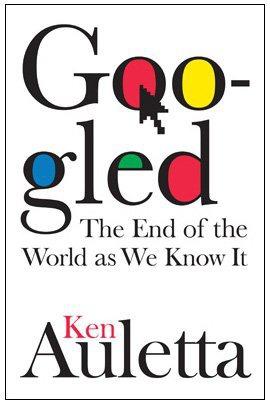
Googled: The End of the World as We Know It
by
Ken Auletta
Published 1 Jan 2009
Aside from inviting citizens to blog, this local online “newspaper” was little more than a collection of links to work done by others. Lerer said there was promotional value for content providers like the Tribune. True. He said the more page views their content got the more advertising they’d sell. True. He said that “citizen journalists” often provide valuable information. True. But at a time when most newspapers proclaim local news as their potential salvation, these papers were suicidally supplying the Huffington Post with their own murder weapon. By 2009, the Huffington Post was discussing similar local editions in as many as fifty cities.
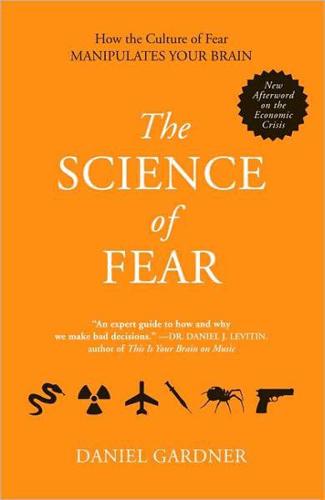
The Science of Fear: How the Culture of Fear Manipulates Your Brain
by
Daniel Gardner
Published 23 Jun 2009
Australians Roy Moynihan and David Henry, a journalist and a pharmacologist, respectively, wrote in the April 2006 edition of the journal Public Library of Science Medicine that “many of the so-called disease awareness campaigns that inform contemporary understanding of illness—whether as citizens, journalists, academics or policymakers—are underwritten by the marketing departments of large drug companies rather than by organizations with a primary interest in public health. And it is no secret that those same marketing depart- ments contract advertising agencies with expertise in ‘condition branding,’ whose skills include ‘fostering the creation’ of new medical disorders and dysfunctions.”
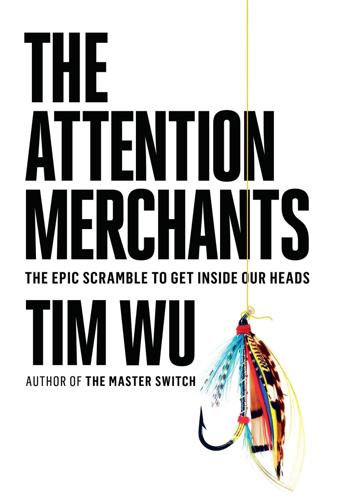
The Attention Merchants: The Epic Scramble to Get Inside Our Heads
by
Tim Wu
Published 14 May 2016
Who, exactly, was Perez Hilton supposed to be? Lavandeira posed as the “trashtastic Cuban cousin of Paris and Nicky [Hilton],” the socialite sister heiresses famous in the early 2000s. Over the latter part of the decade, Perez Hilton, and commercial imitators, like TMZ, presented a new face of blogging. Far from the highbrow musing of citizen journalists of the digital commons, the sort imagined at the turn of the millennium, the gossip blogs were full-fledged attention merchants in the most conventional sense. By 2007, Perez Hilton was claiming some four million unique visitors a day and selling advertisements for $9,000 a week.10 Perez Hilton was not the only wildly popular fictive persona made possible by the anonymity of the web.
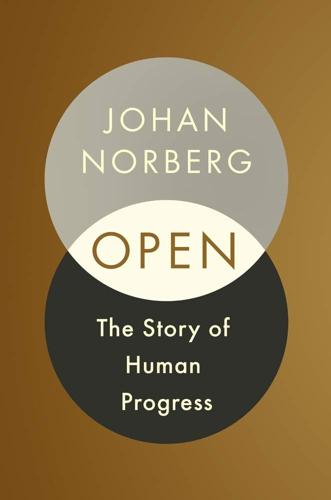
Open: The Story of Human Progress
by
Johan Norberg
Published 14 Sep 2020
Ironically, this thirst for drama also makes us blind to some of the worst ongoing tragedies on the planet, like chronic undernourishment or deaths from indoor air pollution, because they are not sudden and explosive, they are just there all the time in the background. And then came social media, which further exposes us to new threats every second. As someone put it (I don’t remember who, I saw it somewhere on social media), human horrors are not new but the mobile phone camera is. Suddenly there is a citizen journalist close to everything that goes wrong in the world, who can broadcast it to the rest of humanity, and now we all share the scariest and nastiest things that have been done by people we have never heard of. This exaggerates the extent of horrors, so we wake up every morning and think the world is falling apart.
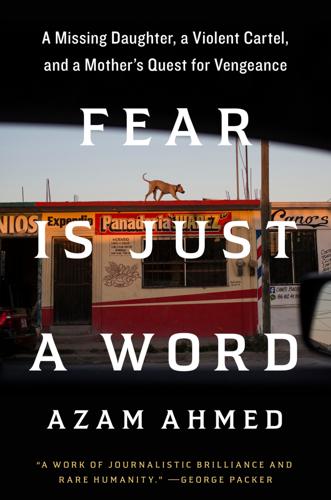
Fear Is Just a Word: A Missing Daughter, a Violent Cartel, and a Mother's Quest for Vengeance
by
Azam Ahmed
Published 26 Sep 2023
Government vehicles crowded the lot and entrance to the funeral home, making a scandal, as Miriam might have said, as if their overwhelming show of force now could compensate for their absence the night before. Luis Héctor stared down at the number. What he knew of El Aluche he had gleaned from Facebook posts written by anonymous citizen journalists. The typical Zeta, extorting citizens and committing crimes all over town, a name like so many others he had heard over the years, an utterly expendable agent of misery. The blogs trafficked in loosely sourced rumor, but you didn’t need to know anything about El Aluche to know exactly who he was.
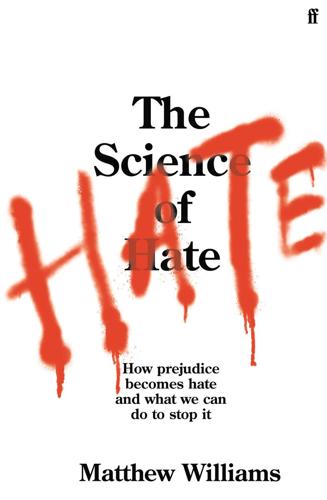
The Science of Hate: How Prejudice Becomes Hate and What We Can Do to Stop It
by
Matthew Williams
Published 23 Mar 2021
The webpage encouraged children to download and print off pamphlets for distribution in schools on Martin Luther King Day. The pamphlets called for the abolition of that national holiday and accused King of domestic and sexual violence. Modern forms of these far-right gateway recruitment tactics now abound. Increasingly, far-right activists like Stephen Yaxley-Lennon are adopting ‘citizen journalism’ as a tactic to polarise opinion. Notably, in 2018, Yaxley-Lennon live-streamed himself outside a Leeds Crown Court hearing of the Huddersfield child grooming trials to hundreds of thousands of online viewers. He presented the issue with faux logic in an attempt to appear moderate, all the while twisting the facts with anti-Islam rhetoric.
…
Abdallah, Abdalraouf, 1 Abedi, Salman, 1, 2, 3, 4 abortion, 1, 2 Abu Sayyaf Group, 1 abuse, 1, 2, 3, 4, 5 accelerants to hate, 1, 2, 3, 4, 5, 6, 7, 8, 9, 10 accelerationists, 1 addiction, 1, 2, 3, 4 Admiral Duncan bar, 1 adolescence, 1, 2, 3, 4, 5, 6, 7 advertising, 1, 2, 3, 4, 5 African Americans, 1, 2, 3, 4, 5, 6, 7 afterlife, 1, 2 age, 1, 2 aggression: brain and hate, 1, 2, 3, 4, 5; false alarms, 1; group threat, 1, 2, 3, 4, 5, 6; identity fusion, 1; mortality, 1; pyramid of hate, 1; trauma and containment, 1, 2 AI, see artificial intelligence Albright, Jonathan, 1 alcohol, 1, 2, 3, 4, 5, 6, 7, 8 algorithms: far-right hate, 1, 2, 3, 4; filter bubbles and bias, 1, 2; Google, 1, 2, 3; online hate speech, 1, 2, 3, 4, 5, 6; Tay, 1, 2; tipping point, 1, 2; YouTube, 1 Algotransparency.org, 1 Allport, Gordon, 1, 2, 3, 4 Al Noor Mosque, Christchurch, 1 al-Qaeda, 1, 2 Alternative für Deutschland (AfD), 1 alt-right: algorithms, 1, 2; brain and hate, 1; Charlottesville rally, 1, 2; counter-hate speech, 1; definition, 1n; Discord, 1; Facebook, 1, 2, 3; fake accounts, 1; filter bubbles, 1, 2; red-pilling, 1, 2; social media, 1, 2; Trump, 1, 2; YouTube, 1 Alzheimer’s disease, 1 American Crowbar Case, 1 American culture, 1 American Nazi Party, 1, 2 Amodio, David, 1n amygdala: brain and signs of prejudice, 1, 2; brain tumours, 1; disengaging the amygdala autopilot, 1; hate and feeling pain, 1, 2; and insula, 1; neuroscience of hate, 1n, 2, 3, 4; parts that edge us towards hate, 1; parts that process prejudice, 1; prepared versus learned amygdala responses, 1, 2; processing of ‘gut-deep’ hate, 1; recognising facial expressions, 1n, 2; stopping hate, 1, 2; trauma and containment, 1, 2; unlearning prejudiced threat detection, 1 anger, 1, 2, 3, 4, 5, 6, 7, 8 anonymity, 1, 2 anterior insula, 1n Antifa, 1, 2n, 3 anti-gay prejudice, 1, 2, 3, 4, 5, 6, 7, 8 anti-hate initiatives, 1, 2 antilocution, 1 anti-Muslim hate, 1, 2, 3, 4, 5, 6 anti-Semitism, 1, 2, 3, 4, 5, 6 anti-white hate crime, 1 Antonissen, Kirsten, 1, 2 anxiety: brain and hate, 1, 2, 3, 4; harm of hate speech, 1; intergroup contact, 1, 2; subcultures of hate, 1, 2; trauma and containment, 1; trigger events, 1, 2 Arab people, 1, 2, 3, 4, 5, 6 Arbery, Ahmaud, 1 Arkansas, 1, 2 artificial intelligence (AI), 1, 2, 3, 4 Asian Americans, 1, 2 Asian people, 1, 2, 3, 4 assault, 1, 2, 3 asylum seekers, 1, 2, 3, 4 Athens, 1 Atlanta attack, 1 Atran, Scott, 1, 2 attachment, 1 attention, 1, 2, 3 attitudes, 1, 2, 3, 4, 5, 6 Aung San Suu Kyi, 1 austerity, 1 Australia, 1 autism, 1 averages, 1, 2 avoidance, 1, 2, 3 Bali attack, 1 Bangladeshi people, 1 BBC (British Broadcasting Corporation), 1, 2, 3 behavioural sciences, 1, 2 behaviour change, 1, 2, 3 beliefs, 1, 2, 3 Bell, Sean, 1, 2 Berger, Luciana, 1 Berlin attacks, 1 bias: algorithms, 1; brain and hate, 1, 2, 3, 4, 5, 6, 7; filter bubbles, 1; Google Translate, 1; group threat, 1, 2, 3, 4; police racial bias, 1; predicting hate crime, 1; stopping hate, 1, 2, 3; unconscious bias, 1, 2, 3, 4 Bible, 1 Biden, Joe, 1 ‘Big Five’ personality traits, 1 biology, 1, 2, 3, 4, 5, 6, 7 Birstall, 1 bisexual people, 1 Black, Derek, 1, 2 Black, Don, 1, 2, 3 blackface, 1 Black Lives Matter, 1 Black Mirror, 1n black people: author’s brain and hate, 1, 2, 3, 4, 5; brain and signs of prejudice, 1, 2; brain parts that edge us towards hate, 1; brain parts that process prejudice, 1; Charlottesville rally, 1, 2; disengaging the amygdala autopilot, 1; Duggan shooting, 1; feeling pain, 1; Google searches, 1, 2; group threat, 1, 2, 3, 4; online hate speech, 1, 2, 3, 4; police relations, 1, 2; predicting hate crime, 1, 2; prepared versus learned amygdala responses, 1; pyramid of hate, 1, 2, 3n; recognising facial expressions, 1, 2; South Africa, 1; steps to stop hate, 1, 2, 3, 4; trauma and Franklin, 1, 2, 3, 4; trigger events, 1, 2, 3; unconscious bias, 1; unlearning prejudiced threat detection, 1, 2; white flight, 1 BNP, see British National Party Bolsonaro, Jair, 1 Bosnia and Herzegovina, 1, 2 bots, 1, 2, 3, 4, 5 Bowers, Robert Gregory, 1 boys, 1, 2 Bradford, 1 brain: ancient brains in modern world, 1; author’s brain and hate, 1; beyond the brain, 1; the brain and hate, 1; brain and signs of prejudice, 1; brain damage and tumours, 1, 2, 3, 4; brains and unconscious bias against ‘them’, 1; brain’s processing of ‘gut-deep’ hate, 1; defence mechanisms, 1; disengaging the amygdala autopilot, 1; figures, 1; finding a neuroscientist and brain scanner, 1; group threat detection, 1, 2; hacking the brain to hate, 1; hate and feeling pain, 1; locating hate in the brain, 1; neuroscience and big questions about hate, 1; overview, 1; parts that edge us towards hate, 1; parts that process prejudice, 1; prepared versus learned amygdala responses, 1; recognising facial expressions, 1; rest of the brain, 1; signs of prejudice, 1; steps to stop hate, 1, 2; tipping point to hate, 1, 2, 3, 4, 5; trauma and containment, 1, 2; unlearning prejudiced threat detection, 1; where neuroscience of hate falls down, 1 brain imaging: author’s brain and hate, 1; beyond the brain, 1; the brain and hate, 1; brain and signs of prejudice, 1, 2; brain injury, 1, 2; Diffusion MRI, 1; disengaging the amygdala autopilot, 1; finding a neuroscientist and brain scanner, 1; fusiform face area, 1; locating hate in the brain, 1; MEG, 1; neuroscience of hate, 1, 2, 3; parts that process prejudice, 1; prepared versus learned amygdala responses, 1; processing of ‘gut-deep’ hate, 1; subcultures of hate, 1, 2; unconscious bias, 1 brainwashing, 1, 2 Bray, Mark, 1n Brazil, 1, 2, 3 Breivik, Anders, 1, 2 Brexit, 1, 2, 3, 4n, 5, 6, 7, 8, 9 Brexit Party, 1, 2 Brick Lane, London, 1 Britain First, 1, 2 British identity, 1, 2 British National Party (BNP), 1, 2n, 3, 4, 5 Brixton, 1 Broadmoor Hospital, 1, 2 Brooker, Charlie, 1n Brooks, Rayshard, 1 Brown, Katie, 1, 2 Brown, Michael, 1, 2 Brussels attack, 1 Budapest Pride, 1 bullying, 1, 2 Bundy, Ted, 1 burka, 1, 2, 3 Burmese, 1 Bush, George W., 1 Byrd, James, Jr, 1 California, 1, 2n, 3 Caliskan, Aylin, 1 Cambridge Analytica, 1, 2 cancer, 1, 2 Cardiff University Brain Research Imaging Centre (CUBRIC), 1, 2, 3, 4 caregiving motivational system, 1 care homes, 1, 2 Casablanca, 1 cascade effect, 1, 2 categorisation, 1, 2, 3, 4 Catholics, 1 Caucasian Crew, 1 causality, 1, 2 celebrities, 1, 2, 3, 4 censorship, 1, 2 Centennial Olympic Park, Atlanta, 1 Centers for Disease Control (CDC), 1 change blindness, 1 charity, 1, 2, 3 Charlottesville rally, 1, 2, 3n, 4 chatbots, 1, 2, 3 Chauvin, Derek, 1 Chelmsford, 1 Chicago, 1 childhood: attachment issues, 1; child abuse, 1, 2, 3; child grooming, 1; child play, 1; failures of containment, 1, 2, 3, 4; group threat, 1, 2; intergroup contact, 1, 2; learned stereotypes, 1; online hate speech, 1, 2; predicting hate crime, 1; trauma and containment, 1, 2, 3, 4, 5, 6, 7, 8, 9, 10; trigger events, 1, 2; understanding the ‘average’ hate criminal, 1; understanding the ‘exceptional’ hate offender, 1, 2, 3 China, 1, 2, 3, 4 Chinese people, 1, 2, 3 ‘Chinese virus,’ 1, 2 Cho, John, 1 Christchurch mosque attack, 1 Christianity, 1, 2, 3 cinema, 1 citizen journalism, 1 civilising process, 1 civil rights, 1, 2, 3, 4 class, 1, 2 cleaning, 1 climate change, 1, 2 Clinton, Hillary, 1, 2 cognitive behavioural therapy, 1 cognitive dissonance, 1 Cohen, Florette, 1, 2 Cold War, 1 collective humiliation, 1 collective quests for significance, 1, 2 collective trauma, 1, 2 colonialism, 1n, 2 Combat 1, 2 comedies, 1, 2, 3 Communications Acts, 1, 2 compassion, 1, 2, 3 competition, 1, 2, 3, 4, 5, 6, 7, 8 confirmation bias, 1 conflict, 1, 2, 3, 4 conflict resolution, 1, 2, 3, 4, 5 Connectome, 1 Conroy, Jeffrey, 1 Conservative Party, 1, 2, 3 conspiracy theories, 1, 2, 3 contact with others, 1, 2 containment: failures of, 1; hate as container of unresolved trauma, 1; understanding the ‘exceptional’ hate offender, 1, 2, 3 content moderation, 1, 2, 3 context, 1, 2, 3 Convention of Cybercrime, 1 cooperation, 1, 2, 3, 4, 5, 6 Copeland, David, 1, 2, 3, 4, 5, 6, 7 coping mechanisms, 1, 2, 3, 4, 5, 6, 7 Cordoba House (‘Ground Zero mosque’), 1 correction for multiple comparisons, 1, 2n ‘corrective rape’, 1, 2 cortisol, 1 Council of Conservative Citizens, 1n counter-hate speech, 1, 2, 3, 4 courts, 1, 2, 3, 4, 5, 6 COVID-19 pandemic, 1, 2, 3 Cox, Jo, 1, 2, 3 Criado Perez, Caroline, 1 crime, 1, 2, 3, 4, 5, 6, 7 Crime and Disorder Act 1998, 1n crime recording, 1, 2, 3, 4 crime reporting, 1, 2, 3, 4, 5, 6, 7 Crime Survey for England and Wales (CSEW), 1 criminal justice, 1, 2, 3 Criminal Justice Act, 1, 2n criminal prosecution, 1, 2 criminology, 1, 2, 3, 4, 5, 6 cross-categorisation, 1 cross-race or same-race effect, 1 Crusius, Patrick, 1, 2 CUBRIC (Cardiff University Brain Research Imaging Centre), 1, 2, 3, 4 cultural ‘feeding’, 1, 2, 3, 4, 5 cultural worldviews, 1, 2, 3, 4, 5, 6, 7 culture: definitions, 1; group threat, 1, 2, 3; steps to stop hate, 1, 2, 3; tipping point, 1, 2, 3, 4, 5; unlearning prejudiced threat detection, 1 culture machine, 1, 2, 3, 4, 5 culture wars, 1 Curry and Chips, 1 cybercrime, 1 dACC, see dorsal anterior cingulate cortex Daily Mail, 1, 2 Dailymotion, 1 Daily Stormer, 1, 2n Daley, Tom, 1, 2 Darfur, 1 dark matter, 1 death: events that remind us of our mortality, 1; newspapers, 1; predicting hate crime, 1; religion and hate, 1, 2; subcultures of hate, 1, 2; trigger events, 1, 2 death penalty, 1, 2 death threats, 1 decategorisation, 1 De Dreu, Carsten, 1, 2, 3, 4 deep learning, 1, 2 defence mechanisms, 1 defensive haters, 1, 2 dehumanisation, 1, 2, 3, 4, 5, 6 deindividuation, 1, 2 deindustrialisation, 1, 2, 3, 4 Democrats, 1, 2, 3 Denny, Reginald, 1 DeSalvo, Albert (the Boston Strangler), 1 desegregation, 1, 2, 3 Desmond, Matthew, 1 Dewsbury, 1, 2, 3 Diffusion Magnetic Resonance Imaging (Diffusion MRI), 1, 2 diminished responsibility, 1, 2 Director of Public Prosecutions (DPP), 1 disability: brain and hate, 1, 2; group threat, 1, 2, 3, 4, 5, 6; intergroup contact, 1; Japan care home, 1, 2; online hate speech, 1; profiling the hater, 1; suppressing prejudice, 1; victim perception, 1n Discord, 1, 2, 3, 4 discrimination: brain and hate, 1, 2; comedy programmes, 1; Google searches, 1; Japan laws, 1; preference for ingroup, 1; pyramid of hate, 1, 2, 3; questioning prejudgements, 1; trigger events, 1, 2, 3 disgust: brain and hate, 1, 2, 3, 4, 5, 6; group threat detection, 1, 2, 3; ‘gut-deep’ hate, 1, 2; Japan care home, 1; what it means to hate, 1, 2 disinformation, 1, 2, 3 displacement, 1, 2 diversity, 1, 2, 3 dlPFC, see dorsolateral prefrontal cortex domestic violence, 1, 2, 3, 4, 5, 6, 7, 8, 9, 10 Doran, John, 1, 2, 3 dorsal anterior cingulate cortex (dACC), 1, 2, 3n, 4, 5, 6, 7, 8, 9 dorsolateral prefrontal cortex (dlPFC), 1n, 2, 3 Douglas, Mary, Purity and Danger, 1 drag queens, 1 drugs, 1, 2, 3, 4, 5, 6, 7, 8, 9 Duggan, Mark, 1 Duke, David, 1 Dumit, Joe, Picturing Personhood, 1 Durkheim, Emile, 1 Dykes, Andrea, 1 Earnest, John T., 1 Eastern Europeans, 1, 2, 3 Ebrahimi, Bijan, 1, 2, 3, 4, 5, 6 echo chambers, 1, 2n economy, 1, 2, 3, 4, 5, 6 EDL, see English Defence League education, 1, 2, 3, 4 Edwards, G., 1 8chan, 1, 2 elections, 1, 2, 3, 4, 5, 6 electroencephalography, 1n elites, 1 ELIZA (computer program), 1 The Ellen Show, 1 El Paso shooting, 1 Elrod, Terry, 1 Emancipation Park, Charlottesville, 1 Emanuel African Methodist Church, Charleston, 1 emotions: brain and hate, 1, 2, 3, 4n, 5, 6, 7, 8, 9; group threat, 1; subcultures of hate, 1; trigger events and mortality, 1; what it means to hate, 1, 2, 3, 4 empathy: brain and hate, 1, 2, 3, 4, 5, 6; feeling hate together, 1; group threat, 1, 2; steps to stop hate, 1, 2, 3; subcultures of hate, 1; trauma and containment, 1 employment, 1, 2, 3, 4, 5, 6, 7 English Defence League (EDL), 1, 2n, 3 epilepsy, 1, 2, 3, 4, 5 Epstein, Robert, 1 equality, 1, 2 Essex, 1 ethnicity, 1, 2n, 3, 4 ethnic minorities, 1, 2, 3, 4, 5, 6 ethnocentrism, 1 EU, see European Union European Commission, 1, 2 European Digital Services Act, 1 European Parliament, 1, 2 European Social Survey, 1 European Union (EU): Brexit referendum, 1, 2, 3, 4n, 5; Facebook misinformation, 1; group threat, 1, 2; online hate speech, 1, 2, 3; trigger events, 1 Eurovision, 1 evidence-based hate crime, 1 evolution, 1, 2, 3, 4, 5, 6, 7, 8 executive control area: brain and hate, 1, 2, 3, 4, 5, 6, 7, 8; disengaging the amygdala autopilot, 1, 2; extremism, 1; recognising false alarms, 1; trauma and containment, 1; trigger events, 1 exogenous shocks, 1 expert opinion, 1 extreme right, 1, 2, 3, 4, 5 extremism: Charlottesville and redpilling, 1, 2; feeling hate together, 1; online hate speech, 1; perceiving versus proving hate, 1; quest for significance, 1, 2, 3; subcultures of hate, 1, 2, 3, 4, 5, 6, 7; trauma and containment, 1; trigger events, 1, 2, 3 Facebook: algorithms, 1, 2; Charlottesville rally, 1, 2; Christchurch mosque attack, 1; far-right hate, 1, 2, 3, 4, 5; filter bubbles, 1, 2; how much online hate speech, 1, 2; Myanmar genocide, 1; online hate and offline harm, 1, 2, 3; redpilling, 1; stopping online hate speech, 1, 2, 3, 4 facial expression, 1, 2, 3, 4 faith, 1, 2 fake accounts, 1, 2; see also bots fake news, 1, 2, 3, 4 false alarms, 1, 2, 3 Farage, Nigel, 1, 2 far left, 1n, 2, 3, 4 Farook, Syed Rizwan, 1 far right: algorithms, 1, 2, 3, 4; brain injury, 1; Charlottesville rally, 1, 2, 3n, 4; COVID-19 pandemic, 1, 2; Facebook, 1, 2, 3, 4, 5; filter bubbles, 1, 2; gateway sites, 1; group threat, 1, 2; red-pilling, 1; rise of, 1; stopping online hate speech, 1; subcultures of hate, 1, 2, 3, 4, 5; terror attacks, 1, 2, 3; tipping point, 1, 2; trauma and containment, 1, 2, 3, 4n; trigger events, 1, 2; YouTube, 1 fathers, 1, 2, 3 FBI, see Federal Bureau of Investigation fear: brain and hate, 1, 2, 3, 4, 5, 6, 7; feeling hate together, 1; group threat, 1, 2, 3, 4, 5; mortality, 1; online hate speech, 1, 2, 3; steps to stop hate, 1, 2; trauma and containment, 1, 2; trigger events, 1, 2, 3 Federal Bureau of Investigation (FBI), 1, 2, 3, 4, 5, 6, 7 Federation of American Immigration Reform, 1 Ferguson, Missouri, 1 Festinger, Leon, 1 fiction, 1 Fields, Ted, 1 50 Cent Army, 1 ‘fight or flight’ response, 1, 2, 3 films, 1, 2 filter bubbles, 1, 2, 3, 4 Finland, 1, 2, 3, 4, 5, 6 Finsbury Park mosque attack, 1, 2, 3 first responders, 1 Fiske, Susan, 1 Five Star Movement, 1 flashbacks, 1 Florida, 1, 2 Floyd, George, 1, 2, 3 Flynt, Larry, 1 fMRI (functional Magnetic Resonance Imaging), 1, 2, 3, 4, 5, 6, 7 football, 1, 2, 3, 4, 5 football hooligans, 1, 2 Forever Welcome, 1 4chan, 1, 2 Fox News, 1, 2 Franklin, Benjamin, 1 Franklin, Joseph Paul, 1, 2, 3, 4, 5, 6, 7, 8 Fransen, Jayda, 1 freedom fighters, 1, 2 freedom of speech, 1, 2, 3, 4, 5, 6 frustration, 1, 2, 3, 4 functional Magnetic Resonance Imaging (fMRI), 1, 2, 3, 4, 5, 6, 7 fundamentalism, 1, 2 fusiform face area, 1 fusion, see identity fusion Gab, 1 Gadd, David, 1, 2n, 3, 4 Gaddafi, Muammar, 1, 2 Gage, Phineas, 1, 2 galvanic skin responses, 1 Gamergate, 1 gateway sites, 1 gay people: author’s experience, 1, 2, 3; brain and hate, 1, 2; Copeland attacks, 1, 2; COVID-19 pandemic, 1; filter bubbles, 1; gay laws, 1; gay marriage, 1, 2, 3; group associations, 1; group threat, 1, 2, 3, 4, 5; hate counts, 1, 2, 3, 4; physical attacks, 1, 2; profiling the hater, 1; Russia, 1, 2, 3, 4, 5; Section 1, 2, 3, 4; steps to stop hate, 1, 2, 3; trigger events, 1, 2; why online hate speech hurts, 1; see also LGBTQ+ people gay rights, 1, 2, 3, 4 gender, 1, 2, 3, 4, 5, 6, 7 Generation Identity, 1 Generation Z, 1, 2 genetics, 1n, 2, 3 genocide, 1, 2, 3, 4, 5, 6 Georgia (country), 1 Georgia, US, 1, 2, 3, 4 Germany, 1, 2, 3, 4, 5, 6, 7 Gilead, Michael, 1 ginger people, 1 girls, and online hate speech, 1 Gladwell, Malcolm, 1 Global Project Against Hate and Extremism, 1 glucocorticoids, 1, 2 God, 1, 2 God’s Will, 1, 2 Goebbels, Joseph, 1 Google, 1, 2, 3, 4, 5, 6, 7, 8 Google+, 1 Google Translate, 1 goth identity, 1, 2, 3, 4 governments, 1, 2, 3, 4, 5, 6 Grant, Oscar, 1 gravitational waves, 1 Great Recession (2007–9), 1 Great Replacement conspiracy theory, 1 Greece, 1, 2 Greenberg, Jeff, 1, 2, 3 Greene, Robert, 1 grey matter, 1 Grillot, Ian, 1, 2 Grodzins, Morton, 1 grooming, 1, 2, 3 ‘Ground Zero mosque’ (Cordoba House), 1 GroupMe, 1 groups: ancient brains in modern world, 1; brain and hate, 1, 2, 3, 4; childhood, 1; feeling hate together, 1; foundations of prejudice, 1; group threat and hate, 1; identity fusion, 1, 2, 3; intergroup hate, 1; pyramid of hate, 1; reasons for hate offending, 1; steps to stop hate, 1, 2; tipping point, 1, 2, 3, 4; warrior psychology, 1, 2, 3; what it means to hate, 1, 2 group threat, 1; beyond threat, 1; Bijan as the threatening racial other, 1; context and threat, 1; cultural machine, group threat and stereotypes, 1; evolution of group threat detection, 1; human biology and threat, 1; neutralising the perception of threat, 1; overview, 1; society, competition and threat, 1; threat in their own words, 1 guilt, 1, 2, 3, 4 guns, 1, 2 ‘gut-deep’ hate, 1, 2, 3, 4 Haines, Matt, 1 Haka, 1 Halle Berry neuron, 1, 2 harassment, 1, 2, 3, 4, 5 harm of hate, 1, 2, 3, 4, 5, 6, 7 Harris, Brendan, 1 Harris, Lasana, 1 Harris, Lovell, 1, 2, 3, 4 hate: author’s brain and hate, 1; the brain and hate, 1; definitions, 1, 2; feeling hate together, 1; foundations of prejudice and hate, 1, 2, 3; group threat and hate, 1; ‘gut-deep’ hate, 1, 2; hate counts, 1; hate in word and deed, 1; profiling the hater, 1; pyramid of hate, 1; rise of the bots and trolls, 1; seven steps to stop hate, 1; subcultures of hate, 1; tipping point from prejudice to hate, 1; trauma, containment and hate, 1; trigger events and ebb and flow of hate, 1; what it means to hate, 1 hate counts, 1; criminalising hate, 1; how they count, 1; overview, 1; perceiving versus proving hate, 1; police and hate, 1; rising hate count, 1; ‘signal’ hate acts and criminalisation, 1; Sophie Lancaster, 1; warped world of hate, 1 hate crime: author’s experience, 1, 2, 3; brain and hate, 1, 2, 3, 4, 5; definitions, 1; events and hate online, 1; events and hate on the streets, 1, 2; the ‘exceptional’ hate criminal, 1; far-right hate, 1, 2, 3; foundations of prejudice and hate, 1, 2, 3, 4; group threat, 1, 2, 3, 4, 5, 6, 7, 8; hate counts, 1, 2, 3, 4, 5; laws, 1n, 2, 3, 4, 5; number of crimes, 1, 2; online hate speech, 1, 2, 3, 4; predicting hate crime, 1; profiling the hater, 1; steps to stop hate, 1, 2, 3; trauma and containment, 1, 2, 3, 4; trigger events, 1, 2, 3, 4, 5, 6; understanding the ‘average’ hate criminal, 1; understanding the ‘exceptional’ hate offender, 1; what it means to hate, 1, 2, 3 hate groups, 1, 2, 3, 4, 5 hate in word and deed, 1; algorithmic far right, 1; Charlottesville rally, 1, 2, 3n, 4; extreme filter bubbles, 1; game changer for the far right, 1; gateway sites, 1; overview, 1; ‘real life effort post’ and Christchurch, 1; red-pilling, 1 HateLab, 1, 2, 3, 4, 5 hate speech: far-right hate, 1, 2, 3; filter bubbles and bias, 1; harm of, 1; how much online hate speech, 1; Japan laws, 1; pyramid of hate, 1; stopping online hate speech, 1; Tay chatbot, 1; trigger events, 1, 2, 3; why online hate speech hurts, 1 hate studies, 1, 2 ‘hazing’ practices, 1 health, 1, 2, 3, 4 Henderson, Russell, 1 Herbert, Ryan, 1 Hewstone, Miles, 1 Heyer, Heather, 1 Hinduism, 1, 2 hippocampus, 1, 2, 3, 4 history of offender, 1 Hitler, Adolf, 1, 2, 3, 4, 5, 6, 7 HIV/AIDS, 1, 2, 3, 4, 5, 6, 7 hollow mask illusion, 1, 2 Hollywood, 1, 2 Holocaust, 1, 2, 3, 4 Homicide Act, 1n homophobia: author’s experience, 1, 2, 3, 4; brain and hate, 1, 2, 3; evidence-based hate crime, 1; federal law, 1; jokes, 1; online hate speech, 1, 2; Russia, 1, 2; Shepard murder, 1; South Africa, 1; trauma and containment, 1; victim perception of motivation, 1n Homo sapiens, 1 homosexuality: author’s experience, 1; online hate speech, 1; policing, 1; questioning prejudgements, 1; Russia, 1, 2; trauma and containment, 1, 2; see also gay people hooligans, 1, 2 Horace, 1 hormones, 1, 2, 3 hot emotions, 1 hot-sauce study, 1, 2 housing, 1, 2, 3, 4, 5, 6 Huddersfield child grooming, 1 human rights, 1, 2, 3 humiliation, 1, 2, 3, 4, 5, 6 humour, 1, 2 Hungary, 1 hunter-gatherers, 1n, 2 Hustler, 1 IAT, see Implicit Association Test identity: author’s experience of attack, 1; British identity, 1, 2; Charlottesville rally, 1, 2; children’s ingroups, 1; group threat, 1, 2; online hate speech, 1, 2, 3, 4; steps to stop hate, 1, 2 identity fusion: fusion and hateful murder, 1; fusion and hateful violence, 1; fusion and self-sacrifice in the name of hate, 1; generosity towards the group, 1; tipping point, 1, 2; warrior psychology, 1, 2, 3 ideology, 1, 2, 3, 4 illegal hate speech, 1, 2, 3, 4 illocutionary speech, 1 imaging, see brain imaging immigration: Forever Welcome, 1; group threat, 1, 2, 3, 4, 5, 6, 7; hate counts, 1n, 2; HateLab Brexit study, 1; identity fusion, 1; intergroup contact, 1; negative stereotypes, 1; online hate speech, 1; Purinton, 1, 2; trauma and containment, 1, 2, 3; trigger events, 1, 2n, 3, 4, 5, 6, 7; YouTube algorithms, 1 immortality, 1, 2 Implicit Association Test (IAT), 1, 2, 3, 4, 5, 6, 7, 8, 9 implicit prejudice: author’s brain and hate, 1, 2, 3, 4; brain and hate, 1, 2, 3, 4, 5, 6; online hate speech, 1, 2 India, 1 Indonesia, 1 Infowars, 1, 2 Ingersoll, Karma, 1 ingroup: brain and hate, 1, 2, 3, 4; child play, 1; group threat, 1, 2, 3, 4, 5, 6, 7; HateLab Brexit study, 1; identity fusion, 1, 2; pyramid of hate, 1; reasons for hate offending, 1; trigger events, 1, 2, 3; what it means to hate, 1, 2, 3, 4, 5 Instagram, 1, 2, 3 Institute for Strategic Dialogue, 1 institutional racism, 1 instrumental crimes, 1 insula: brain and signs of prejudice, 1, 2, 3; facial expressions, 1, 2; fusiform face area, 1; hacking the brain to hate, 1; hate and feeling pain, 1; neuroscience of hate, 1n, 2, 3, 4, 5; parts that edge us towards hate, 1; parts that process prejudice, 1; processing of ‘gut-deep’ hate, 1, 2 Integrated Threat Theory (ITT), 1, 2, 3 integration, 1, 2, 3, 4 intergroup contact, 1, 2, 3 Intergroup Contact Theory, 1, 2, 3 intergroup hate, 1, 2, 3, 4 internet: algorithms, 1, 2; chatbots, 1; counterhate speech, 1; COVID-19 pandemic, 1; far-right hate, 1, 2, 3, 4, 5, 6, 7; filter bubbles, 1, 2, 3; Google searches, 1; hate speech harm, 1; how much online hate speech, 1; online news, 1; reasons for hate offending, 1; rise of the bots and trolls, 1; stopping online hate speech, 1; tipping point, 1, 2, 3; training the machine to count hate, 1; why online hate speech hurts, 1 interracial relations, 1, 2, 3, 4 intolerance, 1, 2 Iranian bots, 1 Iraq, 1 Irish Republican Army (IRA), 1 ISIS, 1, 2, 3, 4, 5, 6, 7, 8, 9 Islam: group threat, 1; online hate speech, 1, 2, 3, 4, 5; steps to stop hate, 1, 2, 3; subcultures of hate, 1, 2, 3, 4; trigger events, 1, 2, 3 Islamism: group threat, 1; online hate speech, 1, 2, 3, 4; profiling the hater, 1; subcultures of hate, 1, 2, 3; trigger events, 1, 2, 3 Islamophobia, 1, 2, 3, 4 Israel, 1, 2, 3 Italy, 1, 2 ITT, see Integrated Threat Theory James, Lee, 1, 2, 3, 4, 5, 6 Japan, 1, 2, 3 Jasko, Katarzyna, 1 Jefferson, Thomas, 1 Jenny Lives with Eric and Martin, 1 Jewish people: COVID-19 pandemic, 1, 2; far-right hate, 1, 2, 3, 4, 5; filter bubbles, 1; Google searches, 1, 2; group threat, 1; Nazism, 1, 2; negative stereotypes, 1 2 online hate speech, 1; pyramid of hate, 1; questioning prejudgements, 1; ritual washing, 1; subcultures of hate, 1, 2; trauma and Franklin, 1, 2, 3 jihad, 1, 2, 3, 4, 5 jokes, 1, 2, 3, 4, 5, 6, 7 Jones, Alex, 1 Jones, Terry, 1 Josephson junction, 1 Judaism, 1; see also Jewish people Jude, Frank, Jr, 1, 2, 3, 4, 5 Kansas, 1 Kerry, John, 1 Kik, 1 King, Gary, 1 King, Martin Luther, Jr, 1, 2 King, Rodney, 1, 2, 3 King, Ryan, 1 Kirklees, 1, 2 KKK, see Ku Klux Klan Kuchibhotla, Srinivas, 1, 2, 3, 4 Kuchibhotla, Sunayana, 1, 2 Ku Klux Klan (KKK), 1, 2, 3n, 4, 5, 6, 7 Labour Party, 1, 2, 3 Lancaster, Sophie, 1, 2 language, 1, 2, 3, 4, 5, 6, 7 LAPD (Los Angeles Police Department), 1 Lapshyn, Pavlo, 1 Lashkar-e-Taiba, 1 Las Vegas shooting, 1, 2 Latinx people, 1, 2, 3, 4, 5, 6, 7 law: brain and hate, 1, 2, 3; criminalising hate, 1; hate counts, 1, 2, 3; Kansas shooting, 1; limited laws, 1; online hate speech, 1; pyramid of hate, 1 Law Commission, 1 Lawrence, Stephen, 1 learned fears, 1, 2, 3 Leave.EU campaign, 1, 2 Leave voters, 1, 2, 3n Lee, Robert E., 1, 2, 3 left orbitofrontal cortex, 1n, 2n Legewie, Joscha, 1, 2, 3, 4 lesbians, 1, 2 Levin, Jack, 1 LGBTQ+ people, 1, 2, 3, 4, 5, 6, 7, 8, 9, 10, 11, 12, 13, 14, 15, 16, 17; see also gay people LIB, see Linguistic Intergroup Bias test Liberman, Nira, 1 Liberty Park, Salt Lake City, 1, 2 Libya, 1, 2, 3, 4 Light, John, 1 Linguistic Intergroup Bias (LIB) test, 1 Liverpool, 1, 2 Livingstone, Ken, 1, 2 Loja, Angel, 1 London: author’s experience of attack, 1; Copeland nail bombing, 1, 2; Duggan shooting, 1; far-right hate, 1; group threat, 1, 2, 3; online hate speech, 1, 2; Rigby attack, 1; terror attacks, 1, 2, 3, 4, 5, 6 London Bridge attack, 1, 2, 3 London School of Economics, 1 ‘lone wolf’ terrorists, 1, 2, 3, 4 long-term memory, 1, 2, 3, 4 Loomer, Laura, 1 Los Angeles, 1 loss: group threat, 1; subcultures of hate, 1, 2, 3, 4; tipping point, 1; trauma and containment, 1, 2, 3, 4, 5 love, 1, 2 Love Thy Neighbour, 1 Lucero, Marcelo, 1, 2 Luqman, Shehzad, 1 ‘Macbeth effect’, 1 machine learning, 1 Madasani, Alok, 1, 2, 3 Madrid attack, 1, 2 Magnetic Resonance Imaging (MRI): Diffusion MRI, 1, 2; functional MRI, 1, 2, 3, 4, 5, 6, 7 magnetoencephalography (MEG), 1, 2, 3 Maldon, 1 Malik, Tashfeen, 1 Maltby, Robert, 1, 2 Manchester, 1, 2 Manchester Arena attack, 1, 2, 3, 4, 5, 6 marginalisation, 1, 2 Martin, David, 1 Martin, Trayvon, 1, 2 MartinLutherKing.org, 1, 2 martyrdom, 1, 2, 3, 4n masculinity, 1, 2, 3, 4, 5 The Matrix, 1 Matthew Shepard and James Byrd Jr Hate Crimes Prevention Act, 1n, 2n Matz, Sandra, 1 Mauritius, 1 McCain, John, 1 McDade, Tony, 1 McDevitt, Jack, Levin McKinney, Aaron, 1 McMichael, Gregory, 1 McMichael, Travis, 1 media: far-right hate, 1, 2; group threat, 1, 2, 3; steps to stop hate, 1, 2, 3, 4, 5, 6; stereotypes in, 1, 2; subcultures of hate, 1; trigger events, 1 Meechan, Mark, 1 MEG (magnetoencephalography), 1, 2, 3 memory, 1, 2, 3, 4, 5, 6, 7 men, and online hate speech, 1 men’s rights, 1 mental illness, 1, 2, 3, 4, 5, 6 mentalising, 1, 2, 3 meta-analysis, 1 Metropolitan Police, 1 Mexican people, 1, 2, 3, 4 micro-aggressions, 1, 2n, 3, 4, 5, 6 micro-events, 1 Microsemi, 1n Microsoft, 1, 2, 3, 4, 5, 6 micro-targeting, 1, 2 Middle East, 1, 2 migration, 1, 2, 3, 4, 5, 6, 7; see also immigration Milgram, Stanley, 1 military, 1 millennials, 1 Milligan, Spike, 1 Milwaukee, 1, 2, 3 minimal groups, 1 Minneapolis, 1, 2, 3 minority groups: far-right hate, 1, 2; group threat, 1, 2, 3, 4, 5; police reporting, 1; questioning prejudgements, 1; trauma and containment, 1; trigger events, 1, 2 misinformation, 1, 2, 3, 4, 5, 6 mission haters, 1, 2, 3 mobile phones, 1, 2, 3 moderation of content, 1, 2, 3 Moore, Nik, 1 Moore, Thomas, 1 Moores, Manizhah, 1 Moore’s Ford lynching, 1 Moradi, Dr Zargol, 1, 2, 3, 4, 5, 6 Moral Choice Dilemma tasks, 1, 2, 3 moral cleansing, 1, 2, 3 moral dimension, 1, 2, 3, 4 moral outrage, 1, 2, 3, 4, 5 Moroccan people, 1, 2 mortality, 1, 2, 3 mortality salience, 1, 2, 3, 4, 5 Moscow, 1 mosques, 1, 2, 3, 4, 5, 6, 7 Moss Side Blood, 1 mothers, 1, 2, 3, 4, 5, 6 motivation, 1n, 2, 3, 4, 5, 6 Mphiti, Thato, 1 MRI, see Magnetic Resonance Imaging Muamba, Fabrice, 1 multiculturalism, 1, 2, 3, 4 murder: brain injury, 1, 2; group threat, 1, 2, 3; hate counts, 1; identity fusion and hateful murder, 1; police and hate, 1, 2; profiling the hater, 1; trauma and containment, 1, 2, 3, 4, 5 Murdered for Being Different, 1 music, 1, 2, 3 Muslims: COVID-19 pandemic, 1; far-right hate, 1, 2, 3, 4; Google searches, 1; group threat, 1, 2, 3, 4, 5, 6; negative stereotypes, 1; online hate speech, 1, 2; profiling the hater, 1, 2; Salah effect, 1; subcultures of hate, 1, 2, 3; trigger events, 1, 2, 3, 4, 5; and Trump, 1, 2, 3, 4n, 5, 6n Mvubu, Themba, 1 Myanmar, 1, 2 Myatt, David, 1 Nandi, Dr Alita, 1 National Action, 1 National Consortium for the Study of Terrorism and Responses to Terrorism, 1 national crime victimisation surveys, 1, 2 National Front, 1, 2, 3 nationalism, 1, 2 National Socialist Movement, 1, 2, 3, 4 natural experiments, 1, 2 Nature: Neuroscience, 1 nature vs nurture debate, 1 Nazism, 1, 2, 3, 4, 5, 6, 7, 8 NCVS (National Crime Victimisation Survey), 1, 2 negative stereotypes: brain and hate, 1, 2; feeling hate together, 1, 2; group threat, 1, 2, 3, 4, 5, 6; steps to stop hate, 1, 2, 3, 4, 5; tipping point, 1 Nehlen, Paul, 1 neo-Nazis, 1n, 2, 3, 4, 5, 6 Netherlands, 1, 2 Netzwerkdurchsetzungsgesetz (NetzDG) law, 1 neuroimaging, see brain imaging neurons, 1, 2, 3, 4, 5, 6, 7 neuroscience, 1, 2, 3, 4, 5, 6, 7, 8, 9 Newark, 1, 2 news, 1, 2, 3, 4, 5, 6, 7 newspapers, 1, 2, 3, 4 New York City, 1, 2, 3, 4, 5, 6 New York Police Department (NYPD), 1 New York Times, 1, 2 New Zealand, 1 n-grams, 1 Nimmo, John, 1 9/11 attacks, 1, 2, 3, 4, 5, 6, 7 911 emergency calls, 1 Nogwaza, Noxolo, 1 non-independence error, 1, 2n Al Noor Mosque, Christchurch, 1 Northern Ireland, 1 NWA, 1 NYPD (New York Police Department), 1 Obama, Barack, 1n, 2, 3, 4, 5, 6 Occupy Paedophilia, 1 ODIHR, see Office for Democratic Institutions and Human Rights Ofcom, 1 offence, 1, 2, 3, 4 Office for Democratic Institutions and Human Rights (ODIHR), 1, 2 Office for Security and Counter Terrorism, 1 office workers, 1 offline harm, 1, 2 Oklahoma City, 1 O’Mahoney, Bernard, 1 online hate speech: author’s experience, 1; COVID-19 pandemic, 1; far-right hate, 1, 2, 3, 4, 5; hate speech harm, 1; how much online hate speech, 1; individual’s role, 1; law’s role, 1; social media companies’ role, 1; steps to stop hate, 1; tipping point, 1, 2; training the machine to count hate, 1; trigger events, 1 Ono, Kazuya, 1 optical illusions, 1 Organization for Human Brain Mapping conference, 1 Orlando attack, 1 Orwell, George, Nineteen Eighty-Four, 1 Osborne, Darren, 1 ‘other’, 1, 2, 3, 4, 5, 6 Ottoman Empire, 1 outgroup: author’s brain and hate, 1, 2, 3; brain and hate, 1, 2, 3, 4, 5, 6, 7; child interaction and play, 1, 2; evolution of group threat detection, 1; feeling hate together, 1; group threat, 1, 2, 3, 4, 5, 6; ‘gut-deep’ hate, 1; HateLab Brexit study, 1; human biology and threat, 1; identity fusion, 1; prejudice formation, 1; profiling the hater, 1; push/pull factor, 1; pyramid of hate, 1; society, competition and threat, 1; steps to stop hate, 1, 2; tipping point, 1; trauma and containment, 1, 2, 3, 4, 5; trigger events, 1, 2, 3, 4, 5, 6, 7, 8 outliers, 1 Overton window, 1, 2, 3, 4 oxytocin, 1, 2, 3, 4 Paddock, Stephen, 1 Paddy’s Pub, Bali, 1 paedophilia, 1, 2, 3, 4, 5 page rank, 1 pain, 1, 2, 3, 4, 5, 6, 7 Pakistani people, 1, 2, 3, 4, 5 Palestine, 1 pandemics, 1, 2, 3, 4 Papua New Guinea, 1, 2, 3 paranoid schizophrenia, 1, 2 parents: caregiving, 1; subcultures of hate, 1; trauma and containment, 1, 2, 3, 4, 5; trigger events, 1, 2, 3 Paris attack, 1 Parsons Green attack, 1, 2 past experience: the ‘average’ hate criminal, 1; the ‘exceptional’ hate criminal, 1; trauma and containment, 1 perception-based hate crime, 1, 2 perception of threat, 1, 2, 3, 4, 5 perpetrators, 1, 2 personal contact, 1, 2 personality, 1, 2, 3 personality disorder, 1, 2 personal safety, 1, 2 personal significance, 1 perspective taking, 1, 2 PFC, see prefrontal cortex Philadelphia Police Department, 1 Philippines, 1 physical attacks, 1, 2, 3, 4, 5, 6, 7, 8 play, 1 Poland, 1, 2, 3 polarisation, 1, 2, 3, 4, 5 police: brain and hate, 1, 2; Duggan shooting, 1; group threat, 1, 2, 3; and hate, 1; NYPD racial bias, 1; online hate speech, 1, 2, 3, 4; perceiving versus proving hate, 1; police brutality, 1, 2, 3, 4; predicting hate crime, 1; recording crime, 1, 2, 3, 4; reporting crime, 1, 2, 3; rising hate count, 1, 2, 3; ‘signal’ hate acts and criminalisation, 1; steps to stop hate, 1, 2, 3; use of force, 1 Polish migrants, 1 politics: early adulthood, 1; far-right hate, 1, 2; filter bubbles and bias, 1; group threat, 1, 2, 3; online hate speech, 1, 2; seven steps to stop hate, 1, 2, 3, 4; trauma and containment, 1; trigger events, 1, 2, 3, 4, 5; Trump election, 1, 2 populism, 1, 2, 3, 4, 5 pornography, 1 Portugal, 1, 2 positive stereotypes, 1, 2 post-traumatic stress disorder (PTSD), 1, 2, 3, 4, 5 poverty, 1, 2, 3 Poway synagogue shooting, 1 power, 1, 2, 3, 4, 5 power law, 1 predicting the next hate crime, 1 prefrontal cortex (PFC): brain and signs of prejudice, 1; brain injury, 1; disengaging the amygdala autopilot, 1; feeling pain, 1; ‘gut-deep’ hate, 1; prejudice network, 1; psychological brainwashing, 1; recognising false alarms, 1; salience network, 1; trauma and containment, 1; trigger events, 1; unlearning prejudiced threat detection, 1, 2 prehistoric brain, 1, 2 prehistory, 1, 2 prejudgements, 1 prejudice: algorithms, 1; author’s brain and hate, 1, 2, 3, 4, 5, 6, 7; brain and hate, 1, 2, 3, 4, 5, 6, 7; brain and signs of prejudice, 1; cultural machine, 1; far-right hate, 1, 2; filter bubbles and bias, 1; foundations of, 1; Google, 2; group threat, 1, 2, 3, 4, 5, 6, 7, 8, 9; human biology and threat, 1; neuroscience of hate, 1, 2; online hate speech, 1, 2, 3; parts that process prejudice, 1; prejudice network, 1, 2, 3, 4; prepared versus learned amygdala responses, 1; pyramid of hate, 1; releasers, 1, 2; steps to stop hate, 1, 2, 3, 4; tipping point from prejudice to hate, 1; trauma and containment, 1, 2, 3, 4, 5; trigger events, 1, 2, 3, 4, 5, 6, 7, 8; Trump, 1, 2; unconscious bias, 1; unlearning prejudiced threat detection, 1; what it means to hate, 1, 2, 3, 4, 5 prepared fears, 1, 2 Prisoner’s Dilemma, 1 profiling the hater, 1 Proposition 1, 2 ProPublica, 1n, 2 prosecution, 1, 2, 3 Protestants, 1 protons, 1 psychoanalysis, 1 psychological development, 1, 2, 3, 4 psychological profiles, 1 psychological training, 1 psychology, 1, 2, 3, 4 psychosocial criminology, 1, 2 psy-ops (psychological operations), 1 PTSD, see post-traumatic stress disorder Public Order Act, 1 pull factor, 1, 2, 3, 4, 5 Pullin, Rhys, 1n Purinton, Adam, 1, 2, 3, 4, 5, 6, 7 push/pull factor, 1, 2, 3, 4, 5, 6 pyramid of hate, 1, 2 Q …, 1 al-Qaeda, 1, 2 quality of life, 1 queer people, 1, 2 quest for significance, 1, 2, 3 Quran burning, 1 race: author’s brain and hate, 1, 2, 3, 4; brain and hate, 1, 2, 3, 4, 5, 6, 7; brain and signs of prejudice, 1; far-right hate, 1, 2, 3; Google searches, 1; group threat, 1, 2, 3, 4, 5, 6, 7, 8, 9, 10; hate counts, 1, 2, 3; online hate speech, 1; predicting hate crime, 1; pyramid of hate, 1; race relations, 1, 2, 3; race riots, 1, 2; race war, 1, 2, 3, 4, 5; steps to stop hate, 1, 2, 3; trauma and containment, 1, 2, 3, 4n, 5, 6; trigger events, 1, 2; unconscious bias, 1; unlearning prejudiced threat detection, 1 racism: author’s experience, 1; brain and hate, 1, 2, 3, 4, 5, 6; far-right hate, 1, 2; group threat, 1, 2, 3, 4, 5, 6, 7, 8; Kansas shooting, 1; NYPD racial bias, 1; online hate speech, 1, 2, 3, 4; steps to stop hate, 1n, 2, 3; Tay chatbot, 1; trauma and containment, 1, 2, 3, 4, 5, 6, 7; Trump election, 1; victim perception of motivation, 1n; white flight, 1 radicalisation: far-right hate, 1, 2, 3; group threat, 1; subcultures of hate, 1, 2, 3, 4, 5; trigger events, 1 rallies, 1, 2, 3; see also Charlottesville rally Ramadan, 1, 2 rape, 1, 2, 3, 4, 5 rap music, 1 realistic threats, 1, 2, 3, 4, 5 Rebel Media, 1 rebels, 1 recategorisation, 1 recession, 1, 2, 3, 4, 5 recommendation algorithms, 1, 2 recording crime, 1, 2, 3, 4 red alert, 1 Reddit, 1, 2, 3, 4 red-pilling, 1, 2, 3, 4 refugees, 1, 2, 3, 4, 5 rejection, 1, 2, 3, 4, 5, 6 releasers of prejudice, 1, 2 religion: group threat, 1, 2, 3; homosexuality, 1; online hate speech, 1, 2, 3; predicting hate crime, 1; pyramid of hate, 1; religion versus hate, 1; steps to stop hate, 1, 2; subcultures of hate, 1, 2; trauma and containment, 1n, 2; trigger events, 1, 2, 3, 4, 5; victim perception of motivation, 1n reporting crimes, 1, 2, 3, 4, 5, 6, 7 repression, 1 Republicans, 1, 2, 3, 4, 5 research studies, 1 responsibility, 1, 2, 3 restorative justice, 1 retaliatory haters, 1, 2, 3 Reuters, 1 Rieder, Bernhard, 1 Rigby, Lee, 1 rights: civil rights, 1, 2, 3, 4; gay rights, 1, 2, 3, 4; human rights, 1, 2, 3; men’s rights, 1; tipping point, 1; women’s rights, 1, 2 right wing, 1, 2, 3, 4, 5, 6; see also far right Right-Wing Authoritarianism (RWA) scale, 1 riots, 1, 2, 3, 4 risk, 1, 2, 3 rites of passage, 1, 2 rituals, 1, 2, 3 Robb, Thomas, 1 Robbers Cave Experiment, 1, 2, 3, 4, 5, 6 Robinson, Tommy (Stephen Yaxley-Lennon), 1, 2, 3, 4 Rohingya Muslims, 1, 2 Roof, Dylann, 1, 2 Roussos, Saffi, 1 Rudolph, Eric, 1 Rushin, S,, 1n Russia, 1, 2, 3, 4, 5, 6, 7, 8 Russian Internet Research Agency, 1 RWA (Right-Wing Authoritarianism) scale, 1 Rwanda, 1 sacred value protection, 1, 2, 3, 4, 5, 6, 7, 8 Saddam Hussein, 1 safety, 1, 2 Sagamihara care home, Japan, 1, 2 Salah, Mohamed, 1, 2, 3 salience network, 1, 2 salmon, brain imaging of, 1 Salt Lake City, 1 same-sex marriage, 1, 2 same-sex relations, 1, 2, 3 San Bernardino attack, 1n, 2, 3 Scanlon, Patsy, 1 scans, see brain imaging Scavino, Dan, 1n schizophrenia, 1, 2, 3, 4 school shootings, 1, 2 science, 1, 2, 3 scripture, 1, 2 SDO, see Social Dominance Orientation (SDO) scale Search Engine Manipulation Effect (SEME), 1 search queries, 1, 2, 3, 4 Second World War, 1, 2, 3 Section 1, Local Government Act, 1, 2, 3 seed thoughts, 1 segregation, 1, 2, 3 seizures, 1, 2, 3 selection bias problem, 1n self-defence, 1, 2 self-esteem, 1, 2, 3, 4 self-sacrifice, 1, 2, 3 Senior, Eve, 1 serial killers, 1, 2, 3 7/7 attack, London, 1 seven steps to stop hate, 1; becoming hate incident first responders, 1; bursting our filter bubbles, 1; contact with others, 1; not allowing divisive events to get the better of us, 1; overview, 1; putting ourselves in the shoes of ‘others’, 1; questioning prejudgements, 1; recognising false alarms, 1 sexism, 1, 2 sexual orientation, 1, 2, 3, 4, 5, 6, 7 sexual violence, 1, 2, 3, 4, 5 sex workers, 1, 2, 3, 4 Shakespeare, William, Macbeth, 1 shame, 1, 2, 3, 4, 5, 6, 7, 8, 9 shared trauma, 1, 2, 3 sharia, 1, 2 Shepard, Matthew, 1, 2 Sherif, Muzafer, 1, 2, 3, 4, 5, 6, 7 shitposting, 1, 2, 3n shootings, 1, 2, 3, 4, 5, 6, 7, 8 ‘signal’ hate acts, 1 significance, 1, 2, 3 Simelane, Eudy, 1 skin colour, 1, 2, 3n, 4, 5, 6, 7 Skitka, Linda, 1, 2 slavery, 1 Slipknot, 1 slurs, 1, 2, 3, 4, 5, 6 Snapchat, 1 social class, 1, 2 social desirability bias, 1, 2 Social Dominance Orientation (SDO) scale, 1 social engineering, 1 socialisation, 1, 2, 3, 4, 5 socialism, 1, 2 social media: chatbots, 1; COVID-19 pandemic, 1; far-right hate, 1, 2, 3, 4; filter bubbles and bias, 1; HateLab Brexit study, 1; online hate speech, 1, 2, 3, 4, 5; online news, 1; pyramid of hate, 1; steps to stop hate, 1, 2, 3; subcultures of hate, 1; trigger events, 1, 2; see also Facebook; Twitter; YouTube Social Perception and Evaluation Lab, 1 Soho, 1 soldiers, 1n, 2, 3 Sorley, Isabella, 1 South Africa, 1 South Carolina, 1 Southern Poverty Law Center, 1n, 2 South Ossetians, 1 Soviet Union, 1, 2 Spain, 1, 2, 3 Spencer, Richard B., 1 Spengler, Andrew, 1, 2, 3, 4 SQUIDs, see superconducting quantum interference devices Stacey, Liam, 1, 2 Stanford University, 1 Star Trek, 1, 2, 3 statistics, 1, 2, 3, 4, 5, 6, 7, 8 statues, 1 Stephan, Cookie, 1, 2 Stephan, Walter, 1, 2 Stephens-Davidowitz, Seth, Everybody Lies, 1 Stereotype Content Model, 1 stereotypes: brain and hate, 1, 2, 3, 4, 5, 6, 7; cultural machine, group threat and stereotypes, 1; definitions, 1; feeling hate together, 1, 2; group threat, 1, 2, 3, 4; homosexuality, 1; NYPD racial bias, 1; steps to stop hate, 1, 2, 3, 4, 5; study of prejudice, 1; tipping point, 1; trigger events, 1 Stoke-on-Trent, 1, 2 Stormfront website, 1, 2, 3 storytelling, 1 stress, 1, 2, 3, 4, 5, 6, 7, 8 striatum, 1, 2, 3n, 4 subcultures, 1, 2, 3, 4, 5 subcultures of hate, 1; collective quests for significance and extreme hate, 1; extremist ideology and compassion, 1; fusion and generosity towards the group, 1; fusion and hateful murder, 1; fusion and hateful violence, 1; fusion and self-sacrifice in the name of hate, 1; quest for significance and extreme hatred, 1; religion/belief, 1; warrior psychology, 1 subhuman, 1, 2 Sue, D.
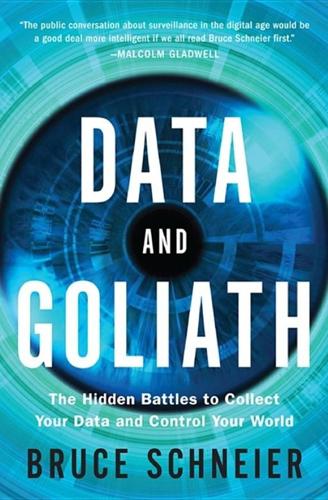
Data and Goliath: The Hidden Battles to Collect Your Data and Control Your World
by
Bruce Schneier
Published 2 Mar 2015
Its computer and cell phone intrusion and monitoring products are used by the governments of Azerbaijan, Colombia, Egypt, Ethiopia, Hungary, Italy, Kazakhstan, Korea, Malaysia, Mexico, Morocco, Nigeria, Oman, Panama, Poland, Saudi Arabia, Sudan, Thailand, Turkey, the UAE, and Uzbekistan. The Moroccan government employed Hacking Team’s software to target the citizen journalist group Mamfakinch via an e-mail that purported to be a message from an anonymous citizen in danger; the attached file contained a payload of malware. In 2011, arrested dissidents in Bahrain were shown transcripts of their private e-mail and chat sessions, collected by the government with tools provided by Nokia and Siemens.
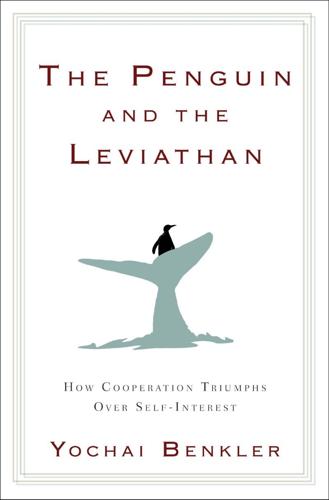
The Penguin and the Leviathan: How Cooperation Triumphs Over Self-Interest
by
Yochai Benkler
Published 8 Aug 2011
Instead they were built around the assumption that, given the right conditions, people would opt to cooperate and collaborate to serve the collective good of the organization—of their own free will. More radical still, the rise of peer production on the Net—from free and open-source software, to Wikipedia, to collaborative citizen journalism on sites like Daily Kos or Newsvine, to social networks like Facebook and Twitter—produced a culture of cooperation that was widely thought impossible a mere five or ten years ago. These changes did not happen at the fringes of society; they arose precisely in those places, like Silicon Valley, that represented the cutting edge of our social and economic trends.
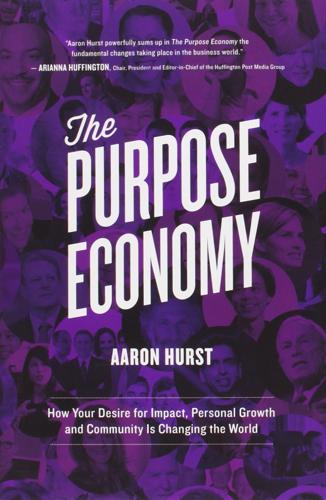
The Purpose Economy: How Your Desire for Impact, Personal Growth and Community Is Changing the World
by
Aaron Hurst
Published 31 Aug 2013
But the blending can happen more organically, too. Take the case of YouTube or Wikipedia. No one is paid to post a video on YouTube, and yet approximately 72 hours of video are uploaded every minute. In some ways, YouTube could be considered the largest volunteer organization in the world. Or consider the rise of citizen journalism, flourishing on sites such as Wikinews and the South Korean OhmyNews, which offers anyone who has knowledge of breaking news events the opportunity to circumvent the biases that can distort so much of commercially-funded news coverage. Many of the most important markets operate across sectors.
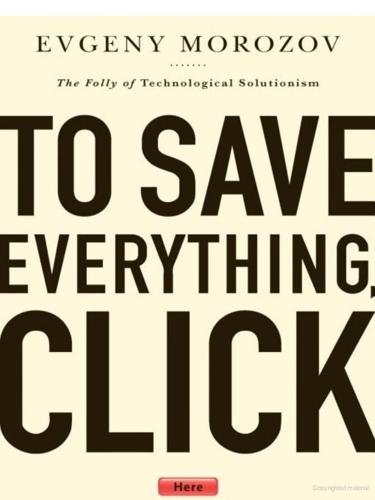
To Save Everything, Click Here: The Folly of Technological Solutionism
by
Evgeny Morozov
Published 15 Nov 2013
Guernica’s is not an isolated case. In late 2011, Omoyele Sowore, a Nigerian exile living in New York, got a similar e-mail from Google. Sowore runs a website called Sahara Reporters, which mixes editorial writings on the state of affairs in Nigeria with reported stories contributed by a network of citizen journalists on the ground. One such story focused on police brutality in the region and included a number of graphic photos. Google’s algorithms found the images too violent and informed Sowore that it was suspending the site’s participation in AdSense. Pleas to Google were met with silence. Only after an intervention from a well-placed staffer with the Committee to Protect Journalism did Google agree, perhaps sensing that the story would yield very bad publicity if pushed by activist free speech NGOs, to reconsider its treatment of Sahara Reporters.

Character Limit: How Elon Musk Destroyed Twitter
by
Kate Conger
and
Ryan Mac
Published 17 Sep 2024
For standing still,” Dorsey tweeted the night of August 19. Ferguson became a foundation for the larger Black Lives Matter movement that grew in the following years. But it was also pivotal for Twitter, and for Dorsey himself. His live tweets of the protests spotlighted the demonstrators and emerging citizen journalists who were also tweeting from the ground, and news outlets flocked to write about the white billionaire tech founder who had come back to his home state to engage with issues of Black racial justice. When he returned to San Francisco, Dorsey kept his protest apparel, wearing casual T-shirts, hoodies, and jeans, and growing out his beard.
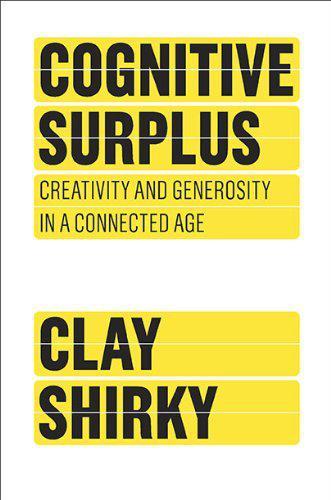
Cognitive Surplus: Creativity and Generosity in a Connected Age
by
Clay Shirky
Published 9 Jun 2010
A good contemporaneous description is Jeffrey Gettleman’s “Disputed Vote Plunges Kenya into Bloodshed,” The New York Times, December 31, 2007, http://www.nytimes.com/2007/12/31/world/africa/31kenya.html (accessed January 6, 2010). 15 Ory Okolloh: Okollah’s role in founding Ushahidi is described by Dorcas Komo in “Kenyan Techie Honored for Role in Tracking Post-Election Violence,” Mshale: The African Community Newspaper, July 3, 2008, http://mshale.com/article.cfm?articleID=18192 (accessed January 6, 2010). 16 Ushahidi had been better at reporting acts of violence: The Harvard study was written by Patrick Meier and Kate Brodock, “Crisis Mapping Kenya’s Election Violence: Comparing Mainstream News, Citizen Journalism, and Ushahidi,” Harvard Humanitarian Initiative, October 23, 2008, http://irevolution.wordpress.com/2008/10/23/mapping-kenyas-election-violence (accessed January 6, 2010). 21 an essay in 1997 called “Romancing the Looky-Loos”: Dave Hickey’s marvelous collection of essays, including “Romancing the Looky-Loos,” is Air Guitar: Essays on Art and Democracy (West Hollywood, CA: Foundation for Advanced Critical Studies, 1997): 146-54. 23 In 2010 the global internet-connected population will cross two billion people: There are many sources for predictions of growth of internet and mobile phone use.
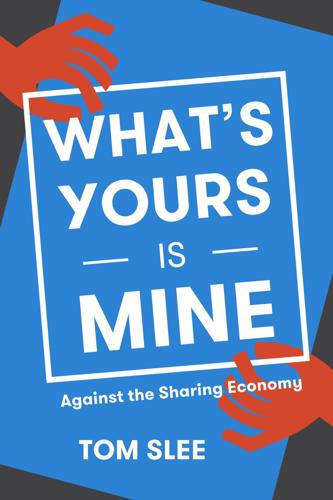
What's Yours Is Mine: Against the Sharing Economy
by
Tom Slee
Published 18 Nov 2015
In addition to open-source software and open cultural content, many claims about the benefits of digital openness have centered on the changes it has brought to public debate and journalism. Glenn Reynolds’ book on blogging is called An Army of Davids: How Markets and Technology Empower Ordinary People to Beat Big Media, Big Government, and Other Goliaths.36 Newspapers have suffered, and citizen journalism in the form of blogs and social media commentary have become more prominent. But here too, the rise of the amateur and the embrace of openness have not led to the promised upending of powerful entrenched industries, or to the democratization of debate. The last sentence of Matthew Hindman’s The Myth of Digital Democracy is “It may be easier to speak in cyberspace, but it remains difficult to be heard.” 37 The book was one of the first that actually collected and analyzed large data sets to investigate online trends in consumption as well as production.
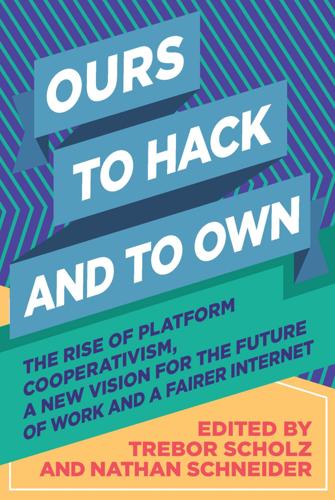
Ours to Hack and to Own: The Rise of Platform Cooperativism, a New Vision for the Future of Work and a Fairer Internet
by
Trebor Scholz
and
Nathan Schneider
Published 14 Aug 2017
Conventions, imitation, and practice—not economic superiority—determined the presence or absence of cooperatives. The moment of opportunity is now, when the organization of production is still in flux. Second, we are in the cultural moment of cooperation. Wikipedia, free and open-source software (FOSS), citizen journalism, and other forms of commons-based peer production have made normal people encounter cooperation and its products as a matter of everyday practice. The decades-long insistence of expert economics that we should think of ourselves as self-interested rational actors acting with guile is bumping up against a daily reality that refutes it.
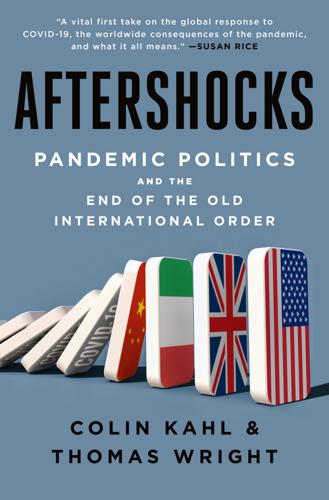
Aftershocks: Pandemic Politics and the End of the Old International Order
by
Colin Kahl
and
Thomas Wright
Published 23 Aug 2021
On February 13, he posted a thirteen-second video saying, “All people revolt—hand the power of the government back to the people.” The police came to his door again, this time claiming to be concerned for his health. He refused them entry, so they broke down the door. He has not been heard from again.43 Chen Qiushi, a human rights lawyer who became a citizen journalist, cut his teeth covering the Hong Kong protests. Toward the end of January, he went to Wuhan to visit hospitals and interview patients. He told his 400,000 YouTube subscribers: “I will use my camera to document what is really happening. I promise I won’t … cover up the truth.”44 On February 7, he went missing.
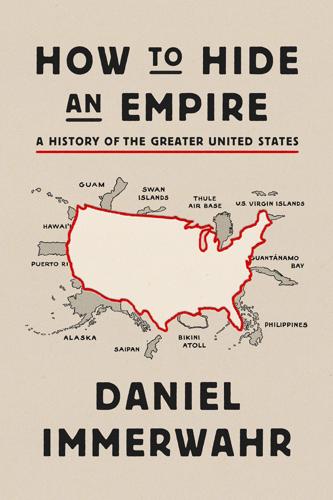
How to Hide an Empire: A History of the Greater United States
by
Daniel Immerwahr
Published 19 Feb 2019
No, they explained, they were just prepared. * * * Alaska Natives toiled in obscurity. The same could not be said of the Japanese Americans from Hawai‘i who enlisted in the army. In May 1942 the 100th Infantry Battalion (Separate) was formed from more than fourteen hundred men of Japanese descent, all U.S. citizens. Journalists took a great interest in this outfit, known as the “guinea pigs from Pearl Harbor.” “We knew that we had to be as good as any other Caucasian outfit,” recalled one member. “And we knew that we had to shed blood.” Japanese from Hawai‘i could feel the spotlight’s heat. And so they performed.
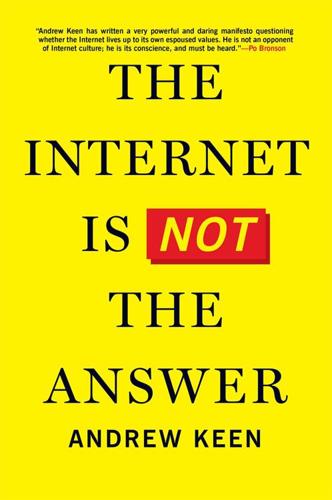
The Internet Is Not the Answer
by
Andrew Keen
Published 5 Jan 2015
For the last quarter of a century, we’ve been told ad nauseam by tenured professors of journalism like New York University’s Jay Rosen that the Internet’s destruction of old media is a good thing because it democratizes the information economy. Making a lucrative career from peddling the idea of the online information consumer as “the People Formerly Known as the Audience,” Rosen has become a cheerleader for the decimation of the curated twentieth-century news industry. But Rosen—who was Arianna Huffington’s partner at a failed citizen journalism initiative called “OffTheBus” and who is now an “advisor” to Omidyar’s First Look Media—is wrong about the Internet’s democratization of media. “The people formerly known as the audience” are still the audience—only now they are angrier and mostly more ill-informed than ever. And “the people who used to be the media owners” remain the media owners.
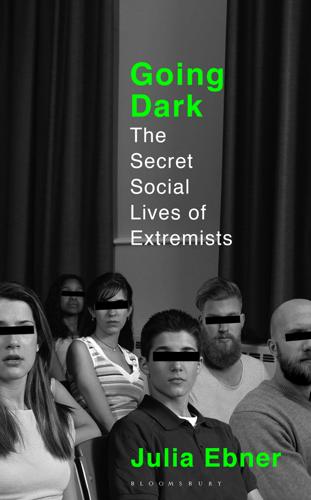
Going Dark: The Secret Social Lives of Extremists
by
Julia Ebner
Published 20 Feb 2020
Apolitical internet sub-cultures have turned political, while the political space has adopted the bizarre cultural elements of online communities. Fun and evil join forces, making it more difficult to distinguish between harmless prank and prosecutable crime. Where do you draw the line between freedom of speech and hate crime? Between citizen journalism and information warfare? Between trolling and terrorism? These are not just legal questions. They are questions that touch the very heart of democratic identity. How libertarian or authoritarian do we want to be? And how far can we afford to go – financially, morally, politically? What happens if we over-censor?
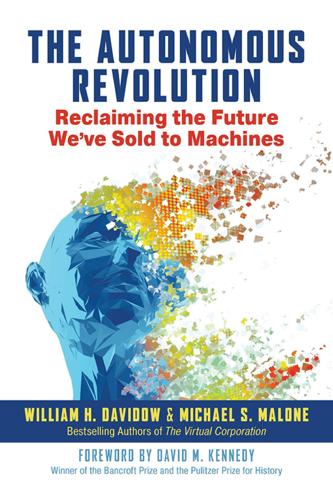
The Autonomous Revolution: Reclaiming the Future We’ve Sold to Machines
by
William Davidow
and
Michael Malone
Published 18 Feb 2020
In what follows we will delve into the history of phase change, paying especial attention to the role of substitutional equivalences as they create new norms. While these equivalences may seem minor, the changes in the rules that they precipitate can be enormously important. When political blogs and “citizen journalism” first began to proliferate on the Internet less than twenty years ago, they seemed, if anything, to be a boon for democracy. Had we understood how radically the rules were changing, we might have recognized the darker implications of “fake news” much sooner. So too, we might have foreseen the dangers of a fully uncensored Web (child pornography, terrorism, etc.) on the one hand, and the politically biased censorship of social network content by the employees of their parent corporations on the other.
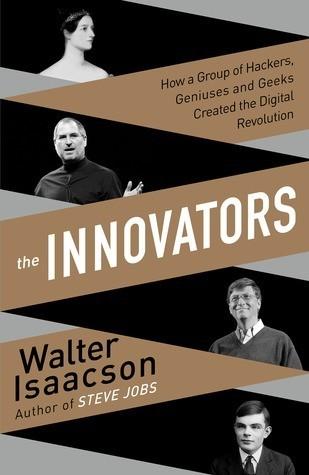
The Innovators: How a Group of Inventors, Hackers, Geniuses and Geeks Created the Digital Revolution
by
Walter Isaacson
Published 6 Oct 2014
Good telling of human stories is the best way to keep the Internet and the World Wide Web from becoming a waste vastland.”65 EV WILLIAMS AND BLOGGER By 1999 blogs were proliferating. They were no longer mainly the playpen of offbeat exhibitionists like Justin Hall who posted personal journals about their lives and fancies. They had become a platform for freelance pundits, citizen journalists, advocates, activists, and analysts. But there was one problem: to publish and maintain an independent blog required some coding skills and access to a server. Creating user simplicity is one of the keys to successful innovation. For blogging to become a whole new medium that would transform publishing and democratize public discourse, someone had to make it easy, as easy as “Type in this box and then press this button.”
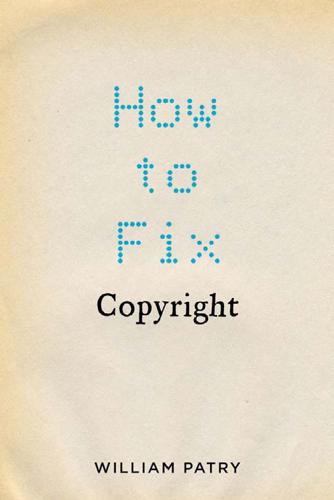
How to Fix Copyright
by
William Patry
Published 3 Jan 2012
Congressional Quarterly and Roll Call, owned by Britain’s Economist Group have, according to the chief executive, begun an “unprecedented” hiring spree, adding thirty-five new editorial positions alone.3 Democracy flourishes from the participation of the many, not from the reporting of a few legacy newspapers. Today, news reporting is also done by citizens or by journalists who have struck out on their own via websites. The popular Politico website is an LAW IS NOT THE SOLUTION TO BUSINESS PROBLEMS 147 example of this latter type of reporting. Citizen journalism can be as good quality or better than that done by people at established newspapers, and is certainly faster. Many breaking stories are reported by citizens on Twitter, Facebook, or on individual’s websites or blogs. Ordinary citizens, armed with cell phones that have camera and video capabilities, post stories with pictures as events are happening and now constitute an essential element of news reporting.
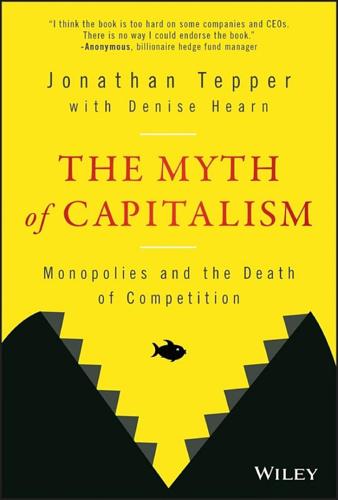
The Myth of Capitalism: Monopolies and the Death of Competition
by
Jonathan Tepper
Published 20 Nov 2018
About the Authors JONATHAN TEPPER is the coauthor of Endgame, a book on the sovereign debt crisis, and Code Red, a book on unconventional monetary policy after the global financial crisis. Jonathan is founder of Variant Perception, a macroeconomic research group that caters to hedge funds, banks, and family offices. Jonathan has worked as an equity analyst at SAC Capital and as a vice president in proprietary trading at Bank of America. Jonathan is a founder of Demotix, a citizen-journalism photo agency. In 2012 he and his partner Turi Munthe sold Demotix to Corbis, which was owned by Bill Gates. He received a BA with highest honors in history and honors in economics from the University of North Carolina at Chapel Hill. Jonathan is a Rhodes Scholar and earned an MLitt in Modern History from Oxford University.
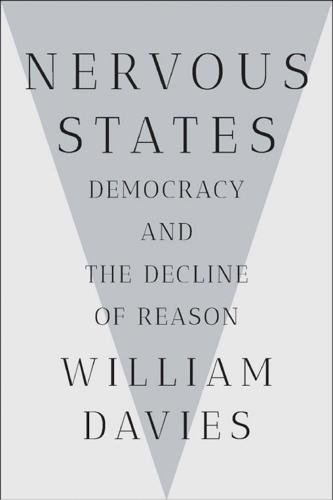
Nervous States: Democracy and the Decline of Reason
by
William Davies
Published 26 Feb 2019
Perhaps the most urgent question posed by “climate mobilization” is whether technologies designed to destroy life should be repurposed for the sustenance and protection of life, both human and nonhuman. As in situations of “total war,” the task is to coordinate experts and amateurs working toward shared goals. “Citizen science” and “citizen journalism” might sound like a mild, if not dubious, form of mobilization, but they are one essential ingredient in how research and politics can be recombined. DIY air-monitoring practices, carried out by activists, have been instrumental in raising public concern about certain fracking sites and car emissions in city centers.12 The discovery that flying insects in Germany had fallen by 75% was made thanks initially to a club of amateur entomologists, establishing traps around the countryside.
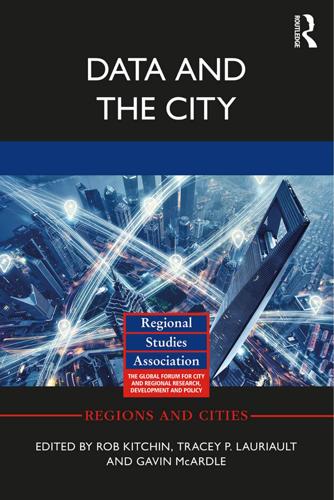
Data and the City
by
Rob Kitchin,Tracey P. Lauriault,Gavin McArdle
Published 2 Aug 2017
We know about the power of platform owners, corporations and governments and ways in which data are being commodified, traced, analysed and traded; how issues and concerns about data ownership, privacy and protection are being debated and contested; how people use various platforms to do politics such as organize and mobilize political protests and engage in citizen journalism or forms of digital activism; how the sociotechnical arrangements that make up the internet seek to organize what people do and format the data that is generated; and how internet data are being analysed by corporations, governments and researchers to enact and know social worlds in ways that are challenging other sources and methods.
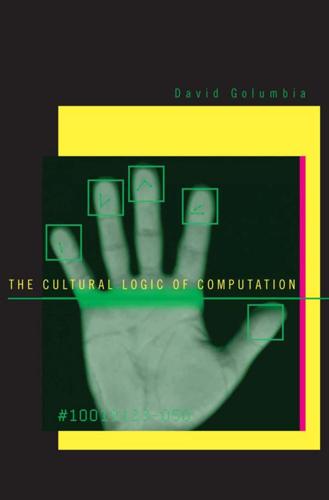
The Cultural Logic of Computation
by
David Golumbia
Published 31 Mar 2009
The first, expressed in liberal writings like those of Joseph Trippi and Markos Moulitsas, comes close to a kind of technological determinism: it suggests that the Internet is inherently democratizing, and we simply need to have faith that global computerization will produce democracy as a necessary side-effect. Trusting that the computer makes our political efforts qualitatively different from earlier ones, advocates of this position suggest that computer-based tools for fundraising, organizing, and citizen journalism will have a transformative effect on the public sphere: because the old media conglomerates will inevitably dissolve in the face of ubiquitous Internet access, we need do little more than use the computational tools engineers provide for us—as well as, no doubt, creating a few of our own—to effect significant, anti-authoritarian political change.
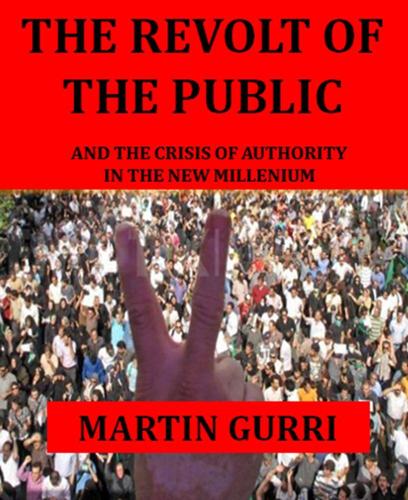
The Revolt of the Public and the Crisis of Authority in the New Millennium
by
Martin Gurri
Published 13 Nov 2018
On the front page of the gray old Times, I’m liable to encounter a chatty article about frying with propane gas. CNN lavished hours of airtime on a runaway bride. The magisterial tones of Walter Cronkite, America’s rich uncle, are lost to history, replaced by the ex-cheerleader mom style of Katie Couric. One reason the notion of “citizen journalism” never got off the ground was the fundamental confusion about what the professional journalist is expected to do, other than squeeze out content like a milk cow. 1.2 No part of the news business endured a more humiliating thrashing from the tsunami than the daily newspaper, which a century before had been the original format to make a profit by selling news to the public.

The Impossible City: A Hong Kong Memoir
by
Karen Cheung
Published 15 Feb 2022
In October, the police sprayed a mosque in Tsim Sha Tsui with blue dye, angering the ethnic minority and Muslim communities. A day later, outside the Chungking Mansions, members of the ethnic minority community handed out bottles of water to protesters, and later organized cultural nights. Toward the end of the movement, the Hong Kong government deported an Indonesian migrant worker, Yuli Riswati, over her citizen journalism on the protests. At a rally my partner and I attended, Yuli addressed the crowd in Cantonese through a long-distance call, and told Hong Kong people to fight on. Domestic workers could never gain legal residency here because of discriminatory laws, and the ethnic minority community has long felt excluded from the rest of the population.
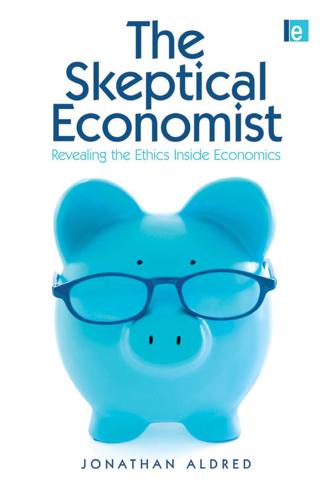
The Skeptical Economist: Revealing the Ethics Inside Economics
by
Jonathan Aldred
Published 1 Jan 2009
Posner (eds) Chicago, Chicago University Press Frank, R. (2004) ‘How not to buy happiness.’ Daedalus Spring: 69-79 Frank, R., T. Gilovich and D. Regan (1993) ‘Does studying economics inhibit cooperation?’ Journal ofEconomic Perspectives 7(2): 159-171 Frank, R., T. Gilovich and D. Regan (1996) ‘Do economists make bad citizens?’ Journal of Economic Perspectives 10(1): 187-192 Frederick, S. and G. Loewenstein (1999) ‘Hedonic adaptation’ in Well-Being: The Foundations ofHedonic Psychology. D. Kahneman, E. Diener and N. Schwarz (eds) New York, Russell Sage Frederick, S., G. Loewenstein and T. O’Donoghue (2002) ‘Time discounting and time preference.’
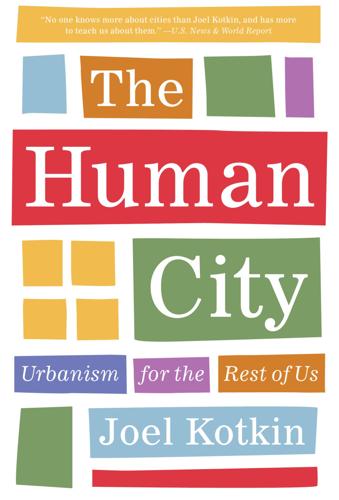
The Human City: Urbanism for the Rest of Us
by
Joel Kotkin
Published 11 Apr 2016
“Home Buyers Are Scarce, So Renters Take Their Place,” New York Times, http://www.nytimes.com/2013/12/05/business/first-time-buyers-are-scarce-so-in-some-cities-renters-move-in.html. DILLON, Sam. (2009, April 22). “Large Urban-Suburban Gap Seen in Graduation Rates,” New York Times, http://www.nytimes.com/2009/04/22/education/22dropout.html. diPASQUALE, D. and GLAESER, E. (1998). “Incentives and Social Capital: Are Homeowners Better Citizens?,” Journal of Urban Economics, vol. 45. DIVERSITY OFFICER MAGAZINE. (2008, November 3). “Higher birthrates among Sweden’s foreign-born,” http://diversityofficermagazine.com/diversity-news/hot-diversity-news/. DOBBS, Richard. (2010, August 16). “Megacities,” Foreign Policy, http://foreignpolicy.com/2010/08/16/megacities/.
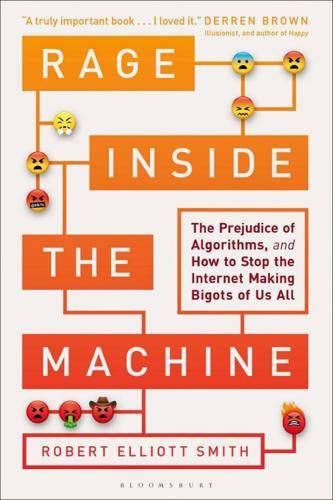
Rage Inside the Machine: The Prejudice of Algorithms, and How to Stop the Internet Making Bigots of Us All
by
Robert Elliott Smith
Published 26 Jun 2019
To be fair, Gove was specifically talking about experts ‘from organisations with acronyms saying that they know what is best’, his point being that many economic experts had failed to accurately predict the financial crisis of 2008 and, therefore, couldn’t possibly pronounce on the impending impact of Brexit. Journalists seized on the abbreviated form of his comment, because it reflects the increasingly populist spirit of today. Gove has a point, in that statistically averaged ‘user-generated’ content and ‘citizen journalism’ has now gained greater acceptance than the opinions of ‘so-called’ experts. One could argue that the joint opinion of the masses has taken the place of experts, government officials and the defamed mainstream media. This point of view is highlighted by Gove’s concluding comment: ‘I’m not asking the public to trust me.
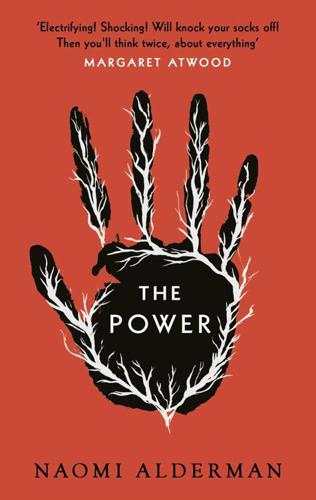
The Power
by
Naomi Alderman
Published 9 Oct 2017
Perhaps it is because he has played the tape of that afternoon over so often in his mind, because he has longed for some forensic evidence, a photograph, or a video, or a sound recording, perhaps that is the reason that he thinks of reaching for his phone first, in the supermarket. Or perhaps some of the things they have been trying to teach them in college – about citizen journalism, about the ‘nose for the story’ – have been sinking in. He is in Goodies with his friend Isaac a few months after that day with Enuma. They are in the fruit aisle, inhaling the sweet fug of ripe guava, drawn to them from across the store like the tiny flies that settle on the surface of the over-ripe, split-open fruit.
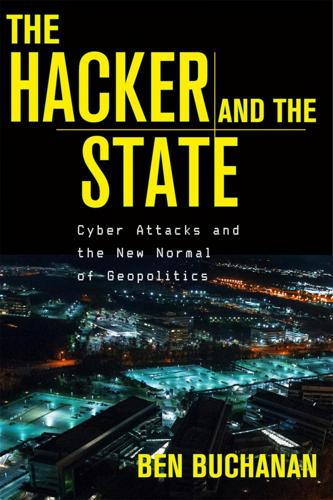
The Hacker and the State: Cyber Attacks and the New Normal of Geopolitics
by
Ben Buchanan
Published 25 Feb 2020
Callaghan, and Rudi Kauffman, “Leaving Deterrence Behind: War-Fighting and National Cybersecurity,” Journal of Homeland Security and Emergency Management 7, no. 1 (2010); Richard J. Harknett and James A. Stever, “The Cybersecurity Triad: Government, Private Sector Partners, and the Engaged Cybersecurity Citizen,” Journal of Homeland Security and Emergency Management 6, no. 1 (2009); Richard J. Harknett, “The Risks of a Networked Military,” Orbis 44, no. 1 (2000): 127–143; Richard J. Harknett, “Information Warfare and Deterrence,” Parameters 26, no. 3 (1996): 93–107. 14. Former NSA and CIA Director Michael Hayden wrote, “[T]hese weapons are not well understood by the kind of people who get to sit in on meetings in the West Wing.… I recall one cyber op, while I was in government, that went awry.… In the after-action review it was clear that no two seniors at the final approval session had left the Situation Room thinking they had approved the same operation.”

Human Frontiers: The Future of Big Ideas in an Age of Small Thinking
by
Michael Bhaskar
Published 2 Nov 2021
What now adds urgency is the existential nature of our ideas, from the Bomb to the melting Arctic ice. At one level this is systemic: about a ‘risk society’ where almost everything from CFCs to social media has the potential to cause collateral damage.43 The Internet used to be exciting because of the creative collaborations, citizen journalism and networked science it enabled. Instead it first became about time wasting, pointless rancour and advertising, and then about an exercise in monopoly capitalism and precision-guided propaganda. With technologies like AI and synthetic biology and the scale and power of super-industrialised civilisations, big ideas now have species-level consequence.
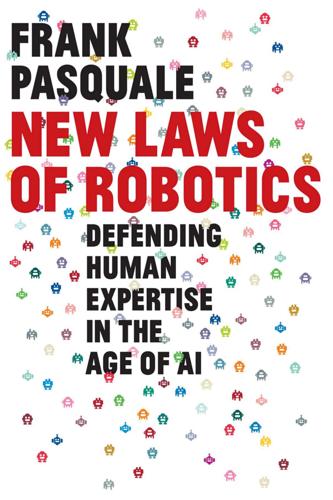
New Laws of Robotics: Defending Human Expertise in the Age of AI
by
Frank Pasquale
Published 14 May 2020
After decades of layoffs, the US had roughly eighty-eight thousand newsroom jobs at the beginning of 2020; a few months later, thirty-six thousand of those were eliminated.88 A natural economic transition would bring some of this expertise to bear on the automated public sphere. Some communication scholars have resisted the idea of professionalization of online content creation, curation, and delivery in the name of citizen journalism that would democratize the power of the press to anyone with a computer and an internet connection. While a beautiful ideal in theory, in practice it has faltered. A failure among the de facto sovereigns of the internet to distinguish between stories on the real Guardian and the “Denver Guardian” is not simply a neutral decision to level the informational playing field.
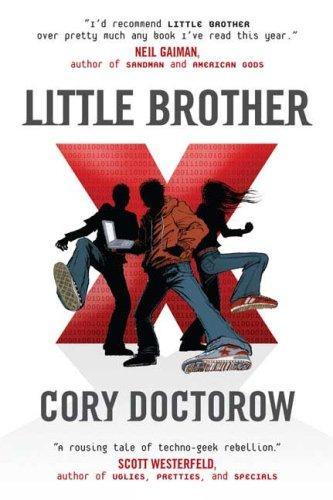
Little Brother
by
Cory Doctorow
Published 29 Apr 2008
They unleash them on public parks where big corporations have dumped their waste and demonstrate in media-friendly fashion how toxic the ground is. Like many of the hacks in this book, the tunneling-over-DNS stuff is real. Dan Kaminsky, a tunneling expert of the first water, published details in 2004 (www.doxpara.com/bo2004.ppt). The guru of "citizen journalism" is Dan Gillmor, who is presently running the Center for Citizen Media at Harvard and UC Berkeley -- he also wrote a hell of a book on the subject, "We, the Media" (O'Reilly, 2004). If you want to learn more about hacking arphids, start with Annalee Newitz's Wired Magazine article "The RFID Hacking Underground" (www.wirednews.com/wired/archive/14.05/rfid.html).
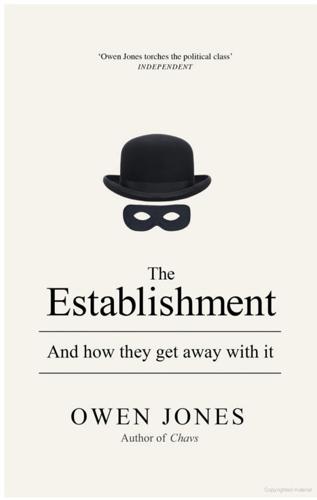
The Establishment: And How They Get Away With It
by
Owen Jones
Published 3 Sep 2014
Mandating all media organizations to include a ‘conscience clause’ in their contracts would allow journalists to turn down work that was either unethical or illegal. Stronger trade unions, too, would shift the balance of power away form media barong and editors to journalists. The Internet and social media offer some hope of breaking the stranglehold of the mainstream press. Citizen journalism now has an unprecedented platform, helping to scrutinize and challenge the myths, distortions and outright lies peddled by wealthy mogul-owned media outlets. Social media is already increasingly used by activists to bypass an unsympathetic Establishment media: whether that be by organizing protests, disseminating information that is otherwise ignored, providing a platform for voices that are otherwise not heard or by challenging the narratives peddled by mainstream outlets.

The One Device: The Secret History of the iPhone
by
Brian Merchant
Published 19 Jun 2017
Most of the time, people use the iSight to snap photos of their food or their babies or some striking-at-the-moment-not-so-much-at-home landscape shot. But it’s also given us all the ability to document a lot more when the need comes. The immensely portable high-quality camera has given rise to citizen journalism on an unprecedented scale. Documentation of police brutality, criminal behavior, systematic oppression, and political misconduct has ramped up in the smartphone era. Mobile video like that of Eric Garner getting choked by police, for instance, helped ignite the Black Lives Matter movement, and it has in other cases provided crucial evidence for officer wrongdoing.
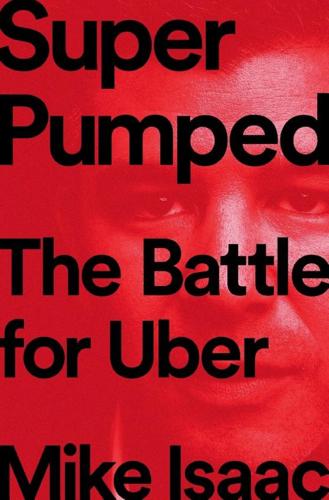
Super Pumped: The Battle for Uber
by
Mike Isaac
Published 2 Sep 2019
Bush in 2004, eventually led to Huffington’s first stab at a true online media destination, what the New Yorker called “a kind of liberal foil to the Drudge Report.” With venture funding and an old tech executive partner, in 2005 she launched the Huffington Post. The site pioneered an early form of “citizen journalism”—in reality, freelancers farmed the web for others’ articles to summarize, aggregate, and repost on the Huffington Post’s website. Mainstream journalists pilloried the idea. Huffington and her partners laughed all the way to the bank; she sold the Huffington Post to AOL in 2011 for $315 million, personally netting more than $20 million.
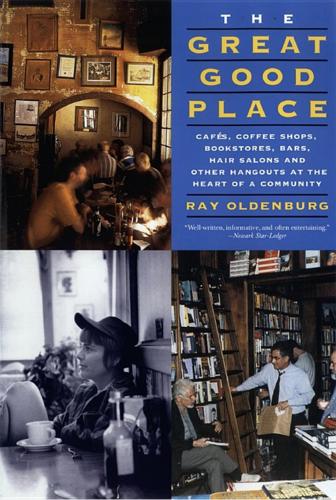
The Great Good Place: Cafes, Coffee Shops, Bookstores, Bars, Hair Salons, and Other Hangouts at the Heart of a Community
by
Ray Oldenburg
Published 17 Aug 1999
Michael Ignatieff’s The Needs of Strangers is thought-provoking, and Parker Palmer ’s The Company of Strangers is a pleasure to read. Before moving to the second part of this preface, there is another kind of reading, just now gathering momentum, that will be of special interest to those concerned with public life. I refer to “civic journalism,” or “community journalism,” or “citizen journalism,” as it is variously called. Though its precise goals and modus operandi are still being debated, there is a general consensus that greater citizen involvment is the desideratum. Readers may expect that newspapers will encourage citizen participation in most aspects of community development; that more “level” heads will be invited to present more rational and moderate discussion; that reporting will go beyond mere events and present developments against a background of trends and patterns.
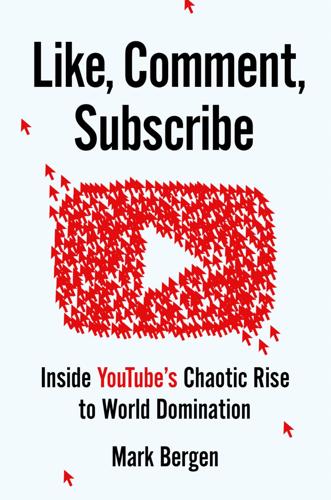
Like, Comment, Subscribe: Inside YouTube's Chaotic Rise to World Domination
by
Mark Bergen
Published 5 Sep 2022
More editors joined, each handling a select vertical on the site. A radio programmer came to curate music. Mark Day, the Scottish stand-up who found an audience on YouTube, was hired to handle comedy. Steve Grove, a young, earnest journalist from Minnesota, joined for “news and politics.” Blogging had resurrected noble ideals of citizen journalism—everyday people who could use the internet to document their communities, check facts, hold power to account. Grove started a channel, CitizenTube, spotlighting the genre’s practitioners on YouTube. “What do you think about Iraq or Social Security or abortion or health care?” Grove, donning a white YouTube T-shirt, asked viewers.
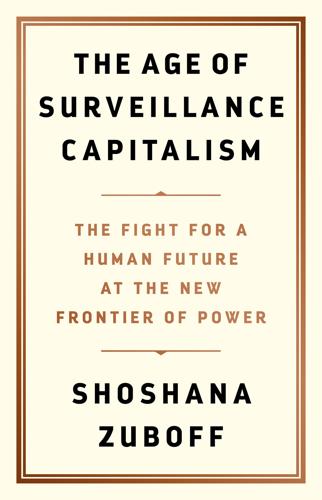
The Age of Surveillance Capitalism
by
Shoshana Zuboff
Published 15 Jan 2019
If I describe these conditions without permitting my indignation to interfere, then I have lifted this particular phenomenon out of its context in human society and have thereby robbed it of part of its nature, deprived it of one of its important inherent qualities.”76 So it is for me and perhaps for you: the bare facts of surveillance capitalism necessarily arouse my indignation because they demean human dignity. The future of this narrative will depend upon the indignant citizens, journalists, and scholars drawn to this frontier project; indignant elected officials and policy makers who understand that their authority originates in the foundational values of democratic communities; and, especially, indignant young people who act in the knowledge that effectiveness without autonomy is not effective, dependency-induced compliance is no social contract, a hive with no exit can never be a home, experience without sanctuary is but a shadow, a life that requires hiding is no life, touch without feel reveals no truth, and freedom from uncertainty is no freedom.
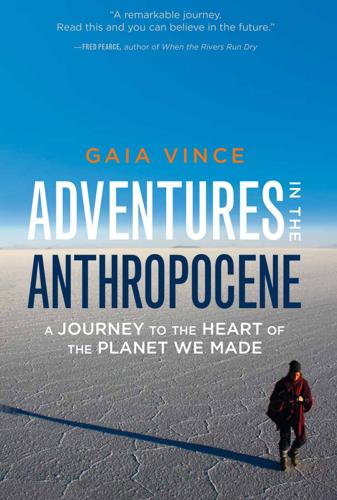
Adventures in the Anthropocene: A Journey to the Heart of the Planet We Made
by
Gaia Vince
Published 19 Oct 2014
A Nepali peasant with a smartphone on Google, now has more access to information than the president of the United States did fifteen years ago.3 In the Philippines most communications between the government and citizens take place by SMS texting. In Malaysia, flood warnings are sent by text message, and across the world, from quake-struck Haiti to the famines of East Africa, evacuations and relief for natural disasters are coordinated by SMS. In India, tribal groups are using mobile phones for ‘citizen journalism’, spreading information and giving voice to disenfranchised groups. During the Arab Spring of 2011, citizens organised themselves to fight oppressive regimes using mobile phones, even bypassing government Internet and network clampdowns by accessing social media sites such as Twitter and Facebook through apps and proxy servers.

Dirty Wars: The World Is a Battlefield
by
Jeremy Scahill
Published 22 Apr 2013
Although part of the point was to push back against claims that al Shabab was responsible for the humanitarian disaster and had prevented aid from reaching Somalia, a special guest was also there. Introduced as the al Qaeda envoy to the humanitarian crisis in Somalia, a white man with a keffiyeh wrapped around his face was identified as Abu Abdullah al Muhajir. Local al Shabab leaders said he was an American citizen. Journalists watched as Muhajir and his allies distributed food, Islamic books and clothes at the camp, which housed more than 4,000 people. The al Qaeda delegation also brought an ambulance. “To our beloved brothers and sisters in Somalia, we are following your situation on a daily basis,” Muhajir declared in English.
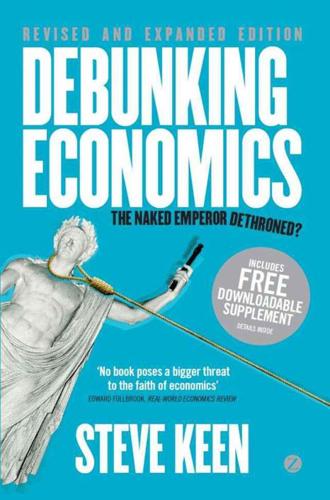
Debunking Economics - Revised, Expanded and Integrated Edition: The Naked Emperor Dethroned?
by
Steve Keen
Published 21 Sep 2011
Fisher, I. (1933) ‘The debt-deflation theory of great depressions,’ Econometrica, 1: 337–55. Frank, R. H., T. Gilovich and D. T. Regan (1993) ‘Does studying economics inhibit cooperation?’ Journal of Economic Perspectives, 7(2): 159–71. Frank, R. H., T. Gilovich and D. T. Regan (1996) ‘Do economists make bad citizens?’ Journal of Economic Perspectives, 10(1): 187–92. Franklin, J. and A. Daoud (1988) Introduction to Proofs in Mathematics, New York: Prentice-Hall. Freeman, A. and G. Carchedi (1996) Marx and Non-Equilibrium Economics, Cheltenham: Edward Elgar. Freeman, S. and F. E. Kydland (2000) ‘Monetary aggregates and output,’ American Economic Review, 90(5): 1125–35.
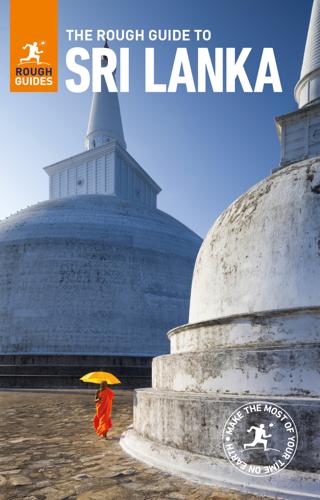
The Rough Guide to Sri Lanka
by
Rough Guides
Published 21 Sep 2018
The Daily News and Sunday Observer, by contrast, are both owned by the government and tend to toe the party line of whoever is currently in power. There are also several good, independent online resources for Sri Lankan news. The Colombo Telegraph (colombotelegraph.com), run by a group of expatriate journalists, and the “citizens journalism” website groundviews.org are both particularly good, while theacademic.org has comprehensive links to Sri Lanka-related news stories across the web. There are also a fair number of English-language magazines available. The long-running Explore Sri Lanka has decent, tourist-oriented articles about all aspects of the island, while the business-focused Lanka Monthly Digest (lmd.lk) also sometimes runs interesting general features on the island.
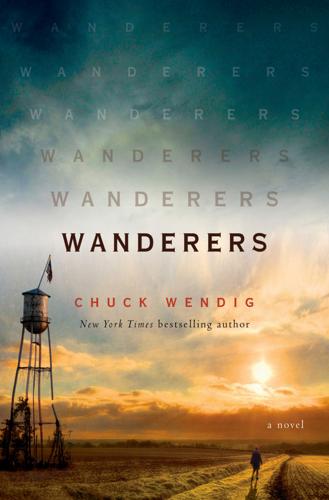
Wanderers: A Novel
by
Chuck Wendig
Published 1 Jul 2019
About the farm, which—you know, I have no idea if we even have a farm anymore. He won’t talk about it, not any of it. And I don’t want to talk to him anyway.” “At least you got a new camera.” “I did. And I’ve got a little money in my pocket since the newspeople are buying my photos, now.” “Citizen journalism is the future, they say.” “Is it?” Shana shrugged. “I dunno. I hope I get to be a part of it, because I think I’ve found what I want to do with my life.” “Most people never find that.” “Did you?” “I did.” Marcy shrugged. “And then I took a bat to the head.” But maybe, just maybe, she’d found something new.